Albums of the week – music reviews
Including new releases from Emerson String Quartet, Olivia Rodrigo, and The Chemical Brothers
- Emerson String Quartet: Infinite Voyage
- Olivia Rodrigo: Guts
- The Chemical Brothers: For That Beautiful Feeling
- Róisín Murphy: Hit Parade
- Slowdive: Everything Is Alive
- Rachmaninoff: The Piano Concertos & Paganini Rhapsody (Yuja Wang)
- Hozier: Unreal Unearth
- Vaughan Williams, Tavener & MacMillan: Choral Works
- Victoria Monét: Jaguar II
- Mozart: The Piano Quartets
- Public Image Ltd: End of World
- The Hives: The Death of Randy Fitzsimmons
- Handel: Serse (The English Concert, Harry Bicket, conductor)
- Jessy Lanza: Love Hallucination
- Johnathan Blake: Passage
- Joni Mitchell: At Newport
- Mahalia: IRL
- Blur: The Ballad of Darren
- Julie Byrne: The Greater Wings
- Anohni and the Johnsons: My Back Was a Bridge for You to Cross
- Forbidden Fruit: Benjamin Appl (baritone), James Baillieu (piano)
- The Endless Coloured Ways: The Songs of Nick Drake
- Britten & Bruch: Violin Concertos (Kerson Leong, violin)
- The Japanese House: In the End It Always Does
- Geese: 3D Country
- PJ Harvey: I Inside the Old Year Dying
- Orchestral Anthems
- Cuarteto Casals: J.S. Bach – The Art of Fugue
- Christine and the Queens: Paranoïa, Angels, True Love
- Amaarae: Fountain Baby
- Bob Dylan: Shadow Kingdom
- Michael Spyres: Contra-Tenor (Il Pomo d'Oro, cond. Francesco Corti)
- Noel Gallagher's High Flying Birds: Council Skies
- Paul Simon: Seven Psalms
- Schreker: Der ferne Klang (Orchestral Works & Songs)
- Foo Fighters: But Here We Are
- Fantasie: Seven Composers, Seven Keyboards
- The Lemon Twigs: Everything Harmony
- Ed Sheeran: Subtract
- Everything But The Girl: Fuse
- Mary Bevan: Visions illuminées
- Jessie Ware: That! Feels Good!
- Messiaen: Des canyons aux étoiles
- Boygenius: The Record
- Metallica: 72 Seasons
- Carl Nielsen: Symphonies Nos. 2 and 6
- Lankum: False Lankum
- Babymetal: The Other One
- Depeche Mode: Memento Mori
- Compositrices: New Light on French Romantic Women Composers
- Lana Del Rey: Did You Know That There’s a Tunnel Under Ocean Blvd
- Miley Cyrus: Endless Summer Vacation
- Puccini: Turandot (cond. Antonio Pappano)
- Sleaford Mods: UK Grim
- Stravinsky: Violin Concerto & Chamber Works (Isabelle Faust/Les Siècles)
- Kali Uchis: Red Moon in Venus
- Slowthai: Ugly
- Clara and Robert Schumann: Piano Concertos
- Kelela: Raven
- Yo La Tengo: This Stupid World
- S.G. Lewis: AudioLust & HigherLove
- Raye: My 21st Century Blues
- Janácek – Brahms – Bartók: Patricia Kopatchinskaja (violin), Fazıl Say (piano)
- Stile Antico: William Byrd
- Billy Nomates: Cacti
- Ryuichi Sakamoto: 12
- Margo Price: Strays
- Gaz Coombes: Turn the Car Around
- Emanuel Ax, Leonidas Kavakos and Yo-Yo Ma: Beethoven for Three
- Iggy Pop: Every Loser
- Renaud Capuçon & Martha Argerich: Violin Sonatas
- Monteverdi: Seventh Book of Madrigals
- Sophie Jamieson: Choosing
- Rebecca Saunders: Skin; Void; Unbreathed
- Little Simz: No Thank You
A free daily email with the biggest news stories of the day – and the best features from TheWeek.com
You are now subscribed
Your newsletter sign-up was successful
Sign up to the Arts & Life newsletter for reviews and recommendations
Emerson String Quartet: Infinite Voyage
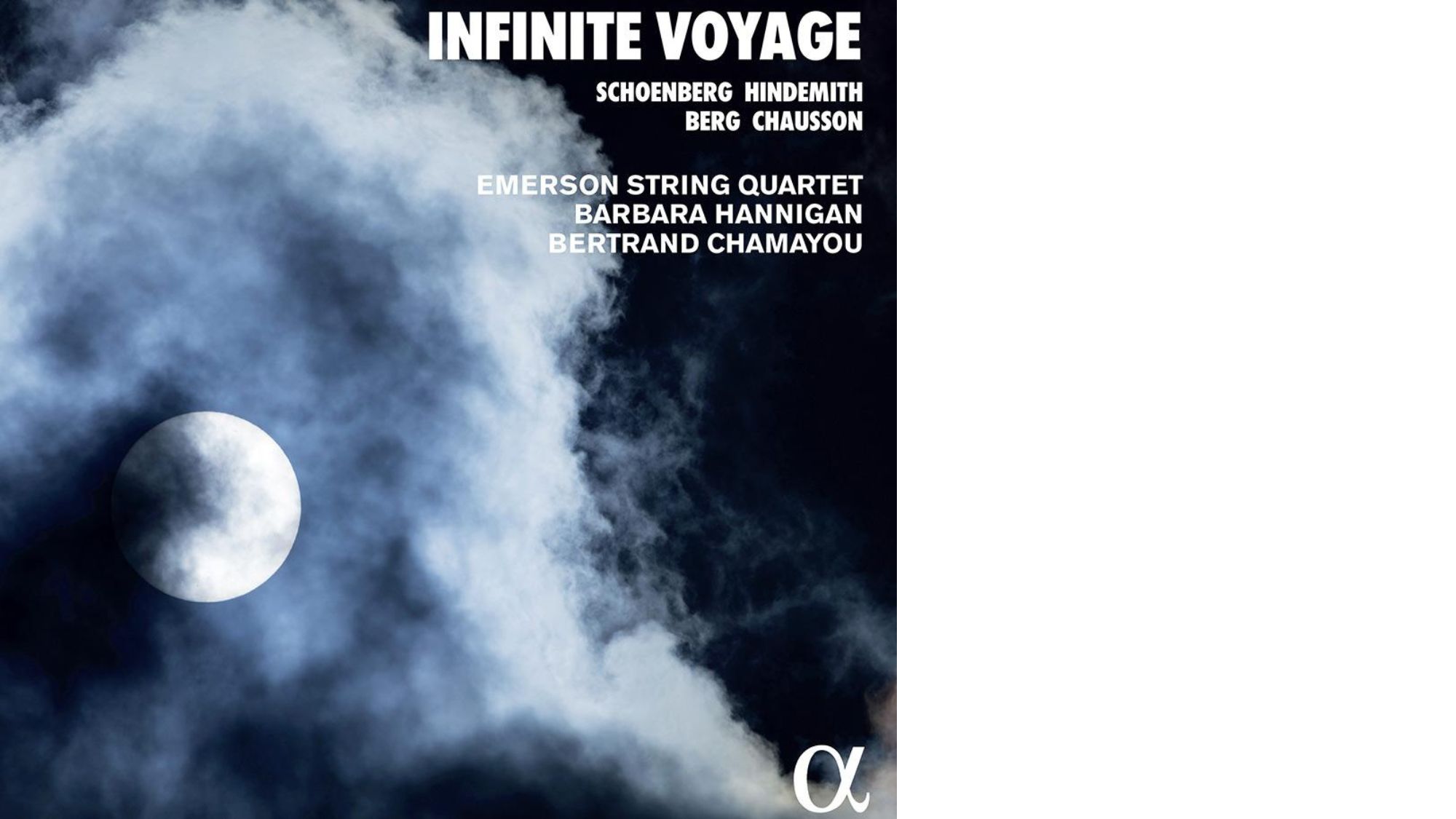
Alas, the members of the Emerson String Quartet are going their separate ways after "47 years of crisply tailored but impassioned music-making", said Geoff Brown in The Times. For this, their excellent final album, they've joined forces with "that febrile and piercing" Canadian soprano, Barbara Hannigan. On Arnold Schoenberg's "String Quartet No. 2", their polish and Hannigan's "penetrating beam" emphasise the "more beguiling aspects of a work" that is not usually considered easy listening. And on Alban Berg's "emotionally hectic" "String Quartet", the quartet's "nuances and range of colours" are really formidable. As a bonus, there are two "beautifully rendered rarities, both unearthed by Hannigan", said Andrew Clements in The Guardian. Paul Hindemith's "Melancholie" sets four poems by Christian Morgenstern for soprano and quartet. But the real find is Ernest Chausson's "Chanson perpétuelle", a setting of a love poem by Charles Cros that has operatic intensity. With its "warm, lustrous and generous" performances, this disc is a "wonderful parting gift". Alpha Classic; £13
Olivia Rodrigo: Guts
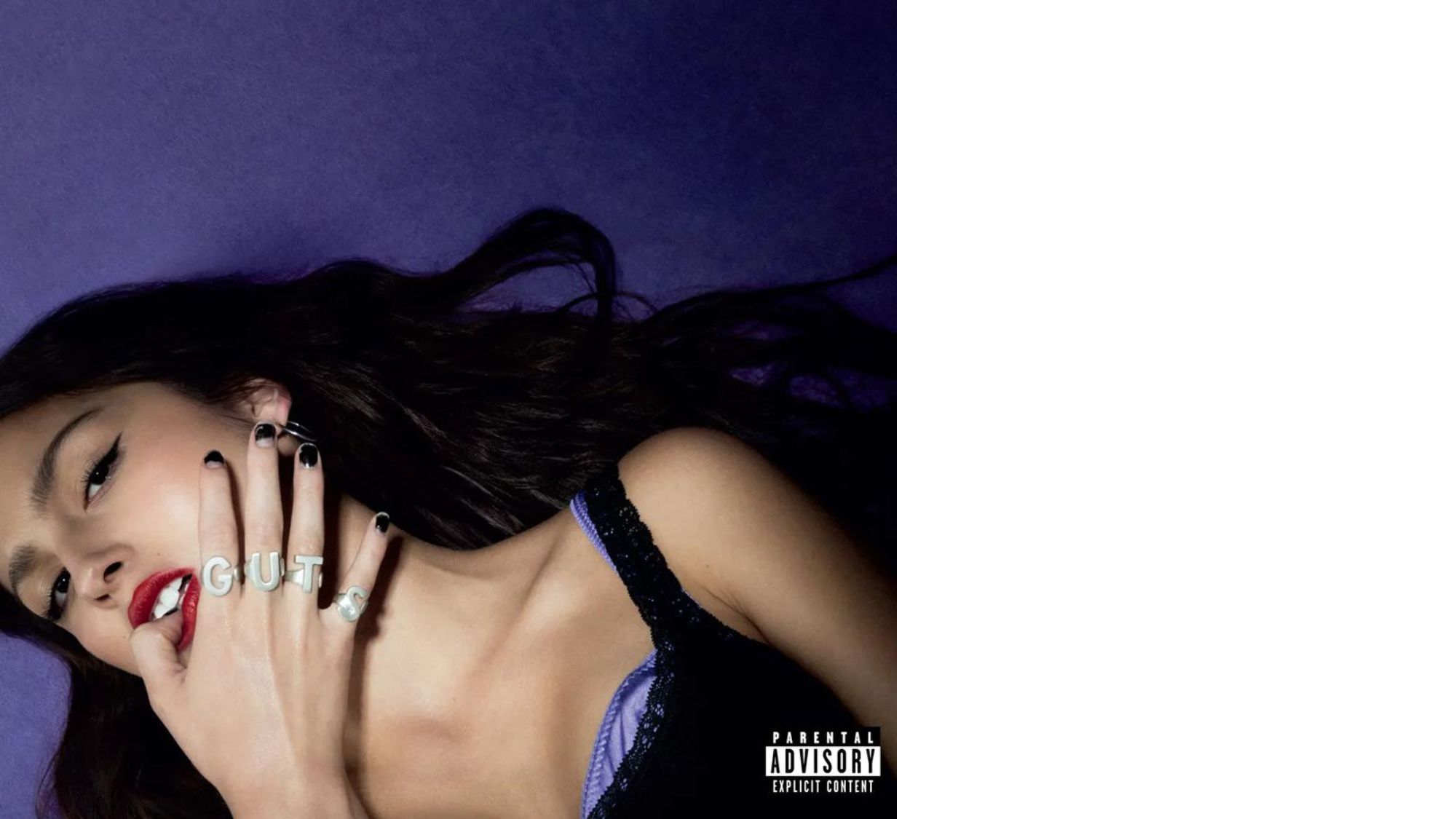
Two years ago, the American singer-songwriter Olivia Rodrigo – then just 18 – became a pop phenomenon overnight with her "instant classic of a debut", "Sour", said Rob Sheffield in Rolling Stone. So, difficult-second-album syndrome? Not here. "Guts" is "another instant classic", with songs that are even more "ambitious, intimate and messy". Refreshingly, it features no tracks about "how fame is stressful, no songs about social media". Rather, Rodrigo focuses on the "gawky, insecure, ordinary American Every-Girl" persona we met in her breakthrough smash hit "Drivers License", and she once again "shows off her amazing flair for detailed storytelling". The sound of Guts is "noticeably tougher than its predecessor, as if taking Sour's Elvis Costello-indebted opener "Brutal" as its starting point", said Alexis Petridis in The Guardian. There are more distorted guitars, hints of grunge-era alt-rock and "a sprinkling of Sprechgesang vocals" that recall the British indie darlings Wet Leg, and also the spectre of "early 00s rap-rock". It's a heady mix – and a triumphant return. Geffen; £13
The Week
Escape your echo chamber. Get the facts behind the news, plus analysis from multiple perspectives.

Sign up for The Week's Free Newsletters
From our morning news briefing to a weekly Good News Newsletter, get the best of The Week delivered directly to your inbox.
From our morning news briefing to a weekly Good News Newsletter, get the best of The Week delivered directly to your inbox.
The Chemical Brothers: For That Beautiful Feeling
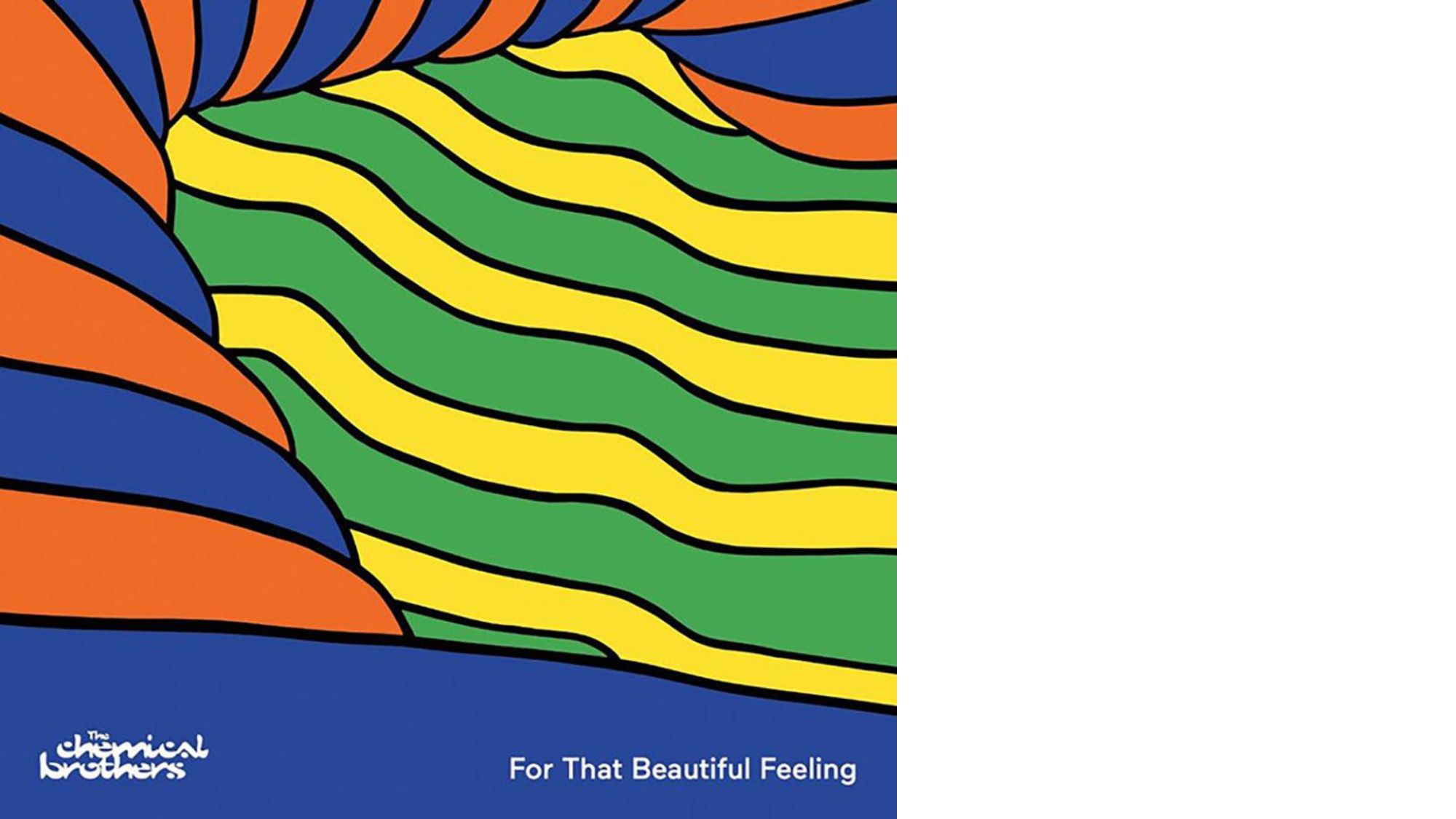
The Chemical Brothers' tenth album picks up where 2019's "No Geography" left off, said Damien Morris in The Observer, "with a nonsense-free reaffirmation of the dance duo's greatest strength – making largely instrumental psychedelic house and techno somehow sound like pop music". Fans of "vertigo-inducing drops and synths buzzing like bees trapped in a jar" will especially relish "No Reason" and "Goodbye", both of which have the "ludic restlessness of the Chemicals' best efforts". But there are plenty of moments here that will "claw into your lizard brain and refuse to leave, whether you last went clubbing yesterday or three decades ago". The Chemical Brothers "remain the best in the business", said Ben Jolley on NME. This superb record – one of their best yet – is full of "psychedelic experimentation" and sonic innovation. But there's also more radio-friendly, mainstream fare: "Skipping Like a Stone" (featuring Beck) "seamlessly fuses elements of pop, indie, rock and dance", and with a "huge singalong chorus, it's a stadium-sized anthem". EMI; £12
Róisín Murphy: Hit Parade
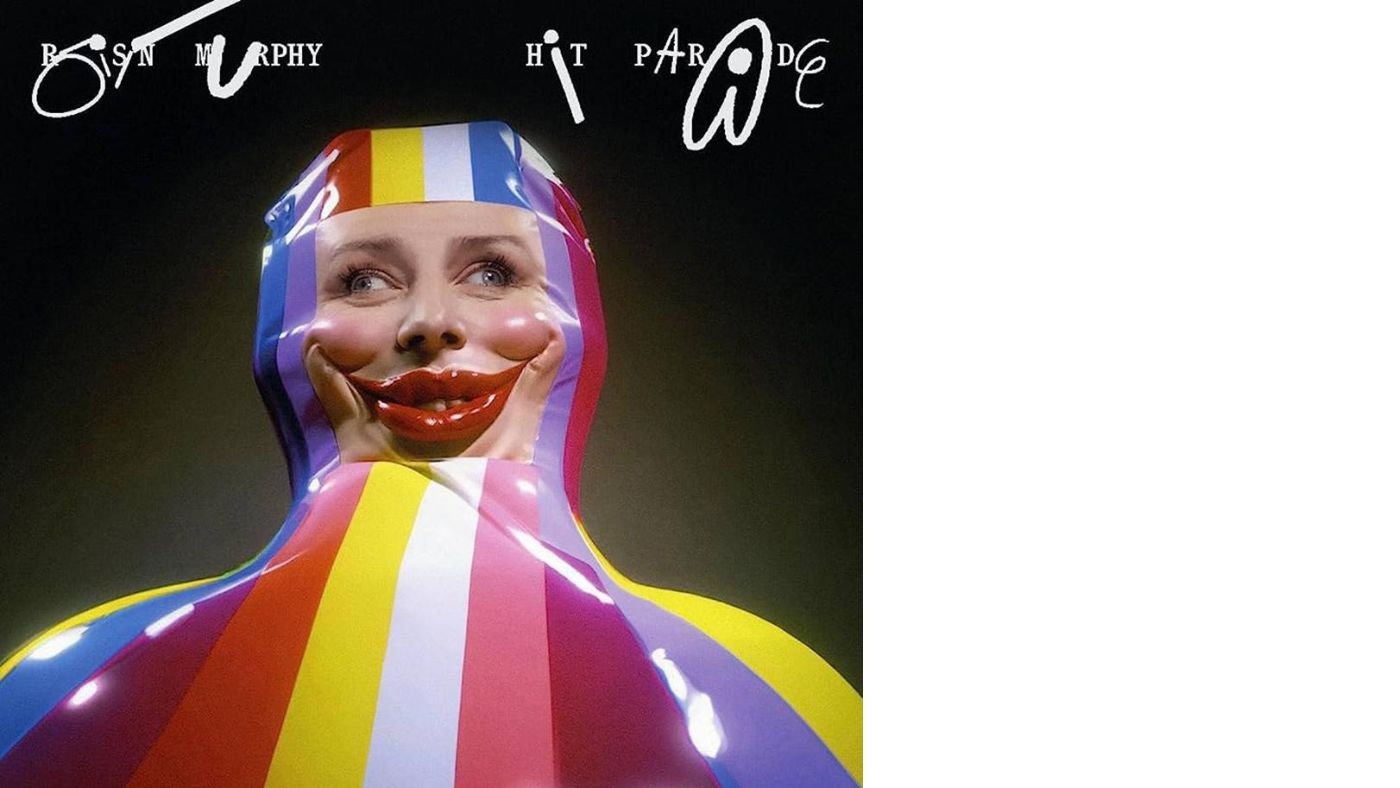
This terrific album contains “some of the most euphorically danceable” music Róisín Murphy has yet made, said Helen Brown in The Independent. But it arrives amid a very modern controversy. A screenshot of comments that she had made on her private Facebook page, about the wisdom of giving puberty blockers to children (“big pharma laughing all the way to the bank”; vulnerable kids “need to be protected”) was widely shared on social media last month, and led to accusations that the Irish musician was transphobic. Concerts were scrapped, and PR events for this album were cancelled. Yet it would be a “huge shame” if Murphy herself was cancelled: hers is a “unique, brave voice in music”. “Hit Parade” is a “chilled-out yet quirky dancefloor display peppered with witty vocal samples”, said Fiona Shepherd in The Scotsman. While the vibe is relatively subtle and laid-back, the “beats are compelling, not least on the low-slung hip-hop/R&B-flavoured” track “Two Ways”, and the “ecstatic, trippy” “Eureka”. Ninja Tune; £11.99
Slowdive: Everything Is Alive
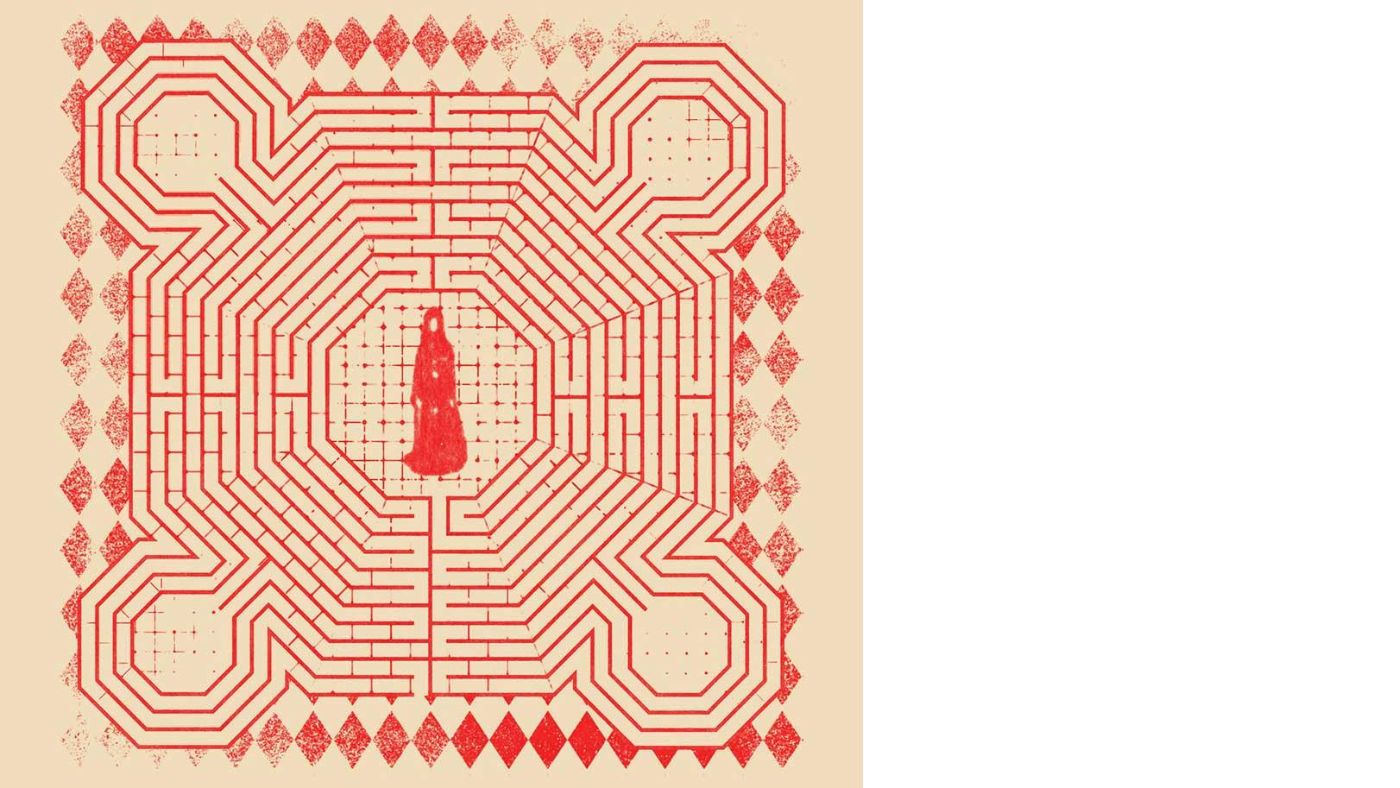
If you’d suggested in the early 1990s that Slowdive “would become one of the most influential and enduring bands of their generation”, you’d have been laughed out of the “student union disco”, said Will Hodgkinson in The Times. Yet the Reading band have done exactly that. Having reformed in 2014, they are now celebrated as pioneers of “shoegazing” – a once derogatory term used to describe “making dreamlike music with guitar effects pedals and singing in a breathy mumble while hiding behind your overgrown fringe”. This fifth album sticks to familiar ground, and what it “lacks in catchy hooks and beery singalongs” it makes up for in “transporting atmosphere and ambient beauty”. The album is a “lovely reminder of the alchemy” this band can create, agreed Dan Cairns in The Sunday Times. The opening tracks “Shanty” and “Prayer Remembered” are like “freshly unearthed missives from the past, the former combining hints of Giorgio Moroder with washes of hypnotic textures”, the latter a hazily beautiful instrumental. Dead Oceans; £12.99
Rachmaninoff: The Piano Concertos & Paganini Rhapsody (Yuja Wang)
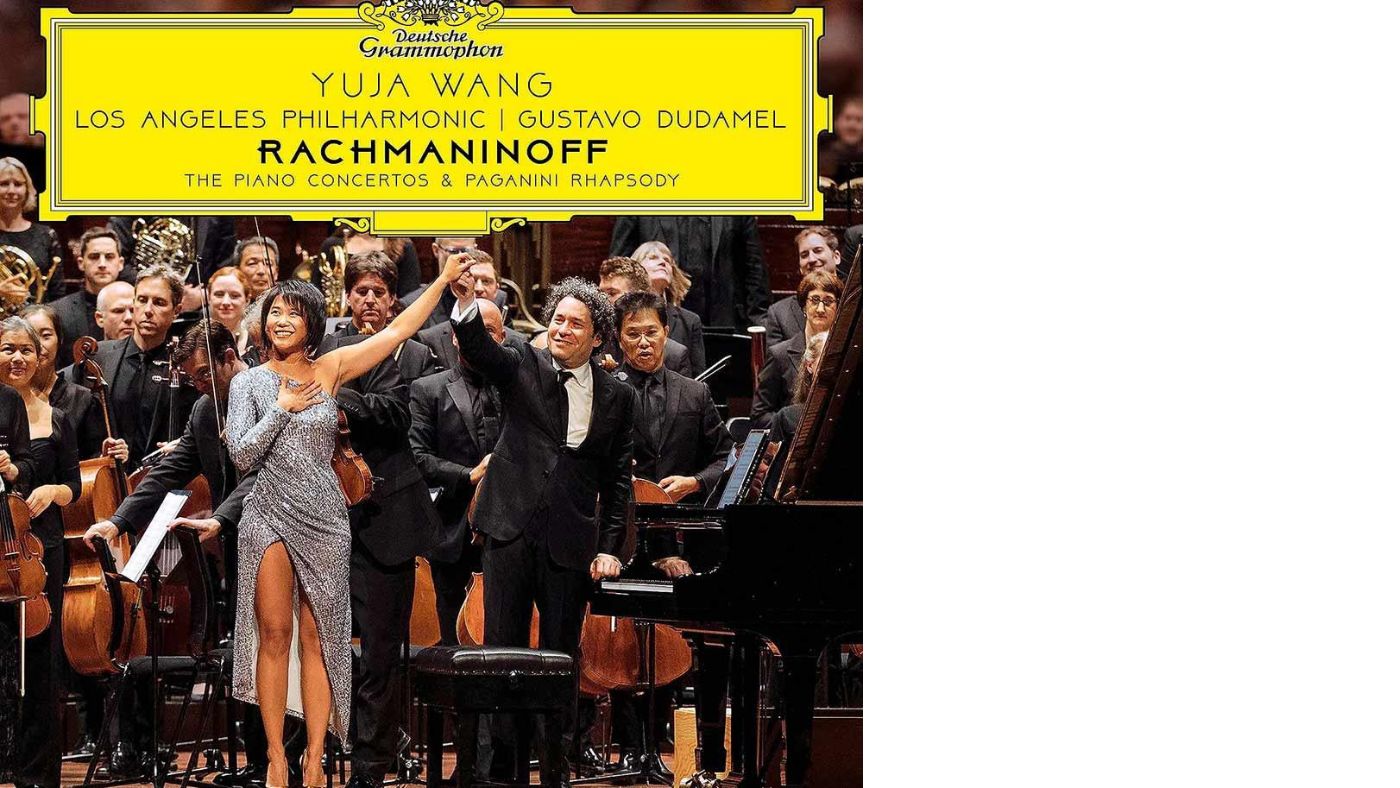
It’s 150 years since he was born, but we still haven’t agreed how to spell his name, said Geoff Brown in The Times. The BBC Proms goes for Rachmaninov, whereas this “luxurious” new recording of his four piano concertos plumps for Rachmaninoff. Either way, we know who we’re listening to as the Chinese virtuoso Yuja Wang tears into the tumultuous opening of “No. 1”. This heralds “a 148-minute sonic bombardment of rippling flourishes, long-breathed melodies” and the sweetest of harmonies – and Wang’s playing is “so effortlessly crisp and lithe that tingles might creep up your spine”. Her playing is especially suited to the “flashy exuberance of the ‘First Concerto’ and its quicksilver changes of mood”, said Andrew Clements in The Guardian – and few rivals can have dispatched the “Second” finale with such élan. By contrast, I felt the opening theme of the “Third” lacked the “mystery and inwardness” that some bring to it, while the “Fourth” I found uneven, the “rapport between orchestra and soloist not as convincing as elsewhere”. Deutsche Grammophon; £23
A free daily email with the biggest news stories of the day – and the best features from TheWeek.com
Hozier: Unreal Unearth
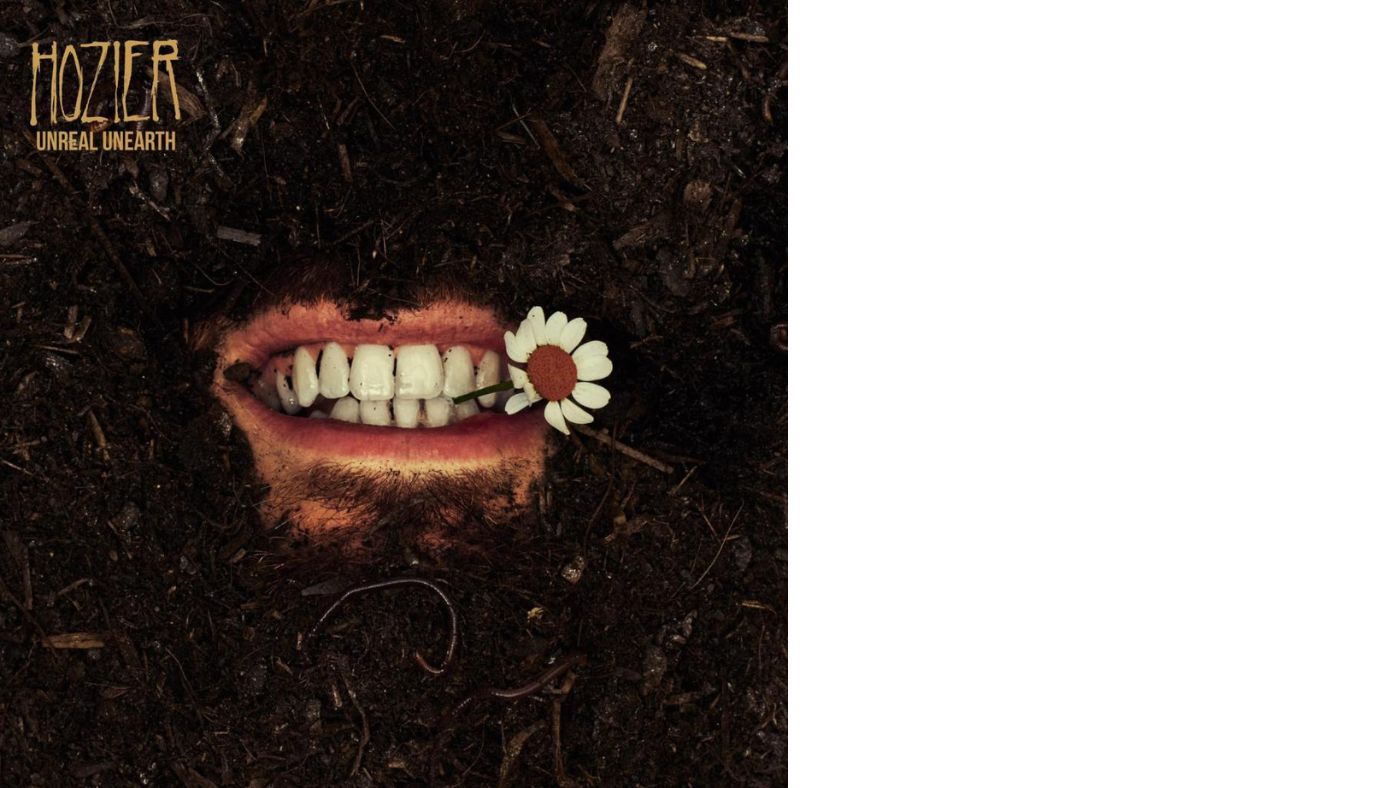
If “the late, lamented Jeff Buckley had thrown his lot in with Radiohead” to write folk music, the result might be something like this, said Neil McCormick in The Daily Telegraph. Andrew Hozier-Byrne is a serious-minded and extremely talented Irish songwriter who draws on folk, blues and roots forms as he marries “flowing melodies to meaningful lyrics”. Yet he “sounds utterly contemporary, a 33-year-old raised on post-rock and hip hop”. “Unreal Unearth”, his third album, is a set of “deeply romantic songs of love and loss”. Their lyrics are filled with allusions to Ovid’s “Metamorphosis” and Dante’s “Inferno”, yet you are “never too far from a singalong chorus”. “Like Ovid, Hozier lacks concision,” said Damien Morris in The Observer. Several of the songs on this sprawling 16-track collection are “too self-consciously poetic to deliver real poetry”. Yet there’s a “great album” hiding within. Highlights include the “supple funk” of “Eat Your Young” and the “chilling, unforgettable beauty” of closing pair “Unknown/Nth” and “First Light”. Island; £11.99
Vaughan Williams, Tavener & MacMillan: Choral Works
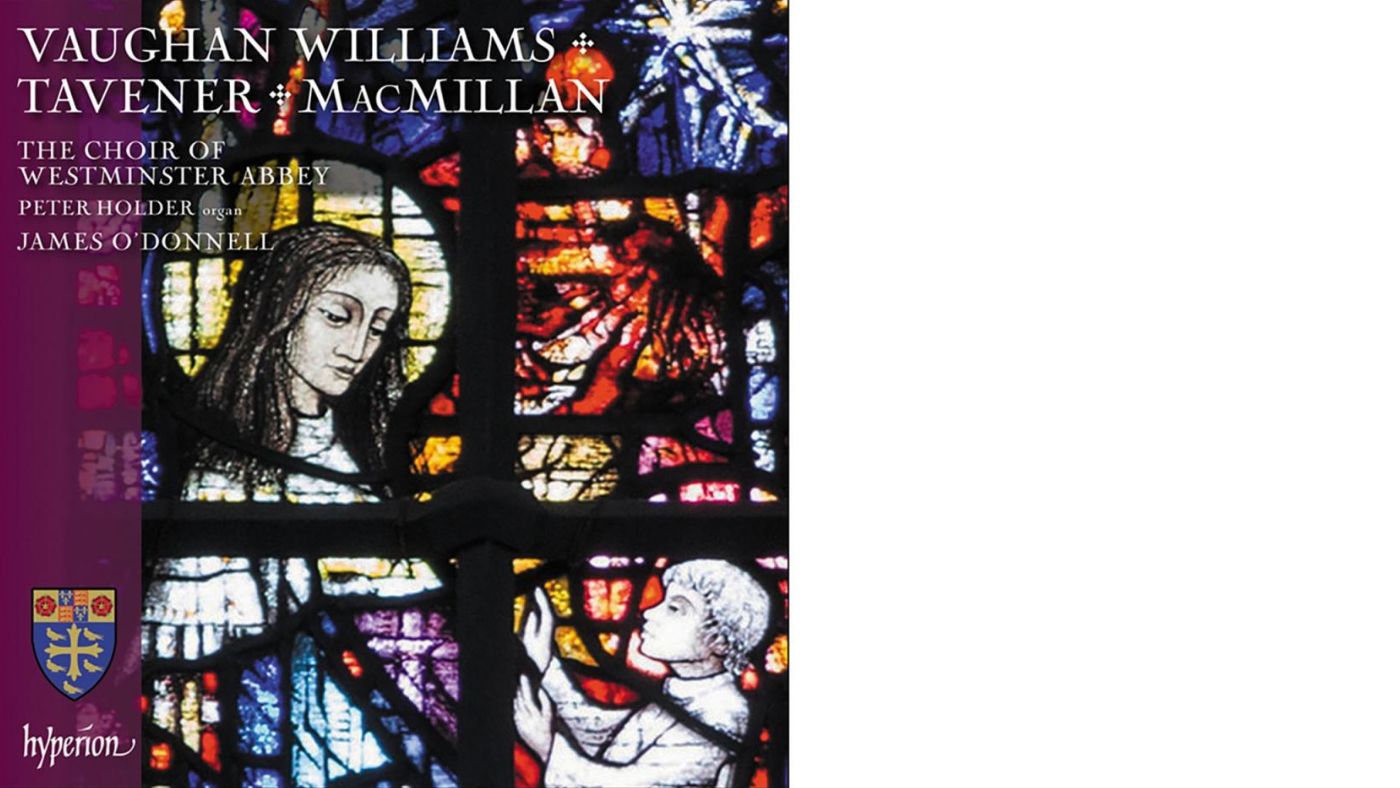
Ralph Vaughan Williams’s “Mass in G minor” (1921) is one of the “great choral works of the 20th century”, said Dan Cairns in The Sunday Times, and is well paired here with liturgical pieces by James MacMillan and John Tavener. The Westminster Abbey Choir, conducted by James O’Donnell, is “thrillingly alive” to the “soaring heights and despairing depths” of the Vaughan Williams piece – and “their relish in performing the work is profoundly moving”. They excel, too, with MacMillan’s “wonderfully sinuous and inventive” “Mass of St Edward the Confessor”, and Tavener’s “Magnificat and Nunc Dimittis” and “freight-heavy” “Song for Athene”. O’Donnell left the Abbey last year after 22 years as director of music, said Terry Blain in BBC Music Magazine. This fine disc serves as an “unmissable farewell”. Of the three shorter MacMillan pieces, “A Special Appeal”, commemorating Óscar Romero, the Catholic prelate murdered in San Salvador in 1980, deserves particular mention. It “elicits outstandingly empathetic singing”. Hyperion; £8
Victoria Monét: Jaguar II
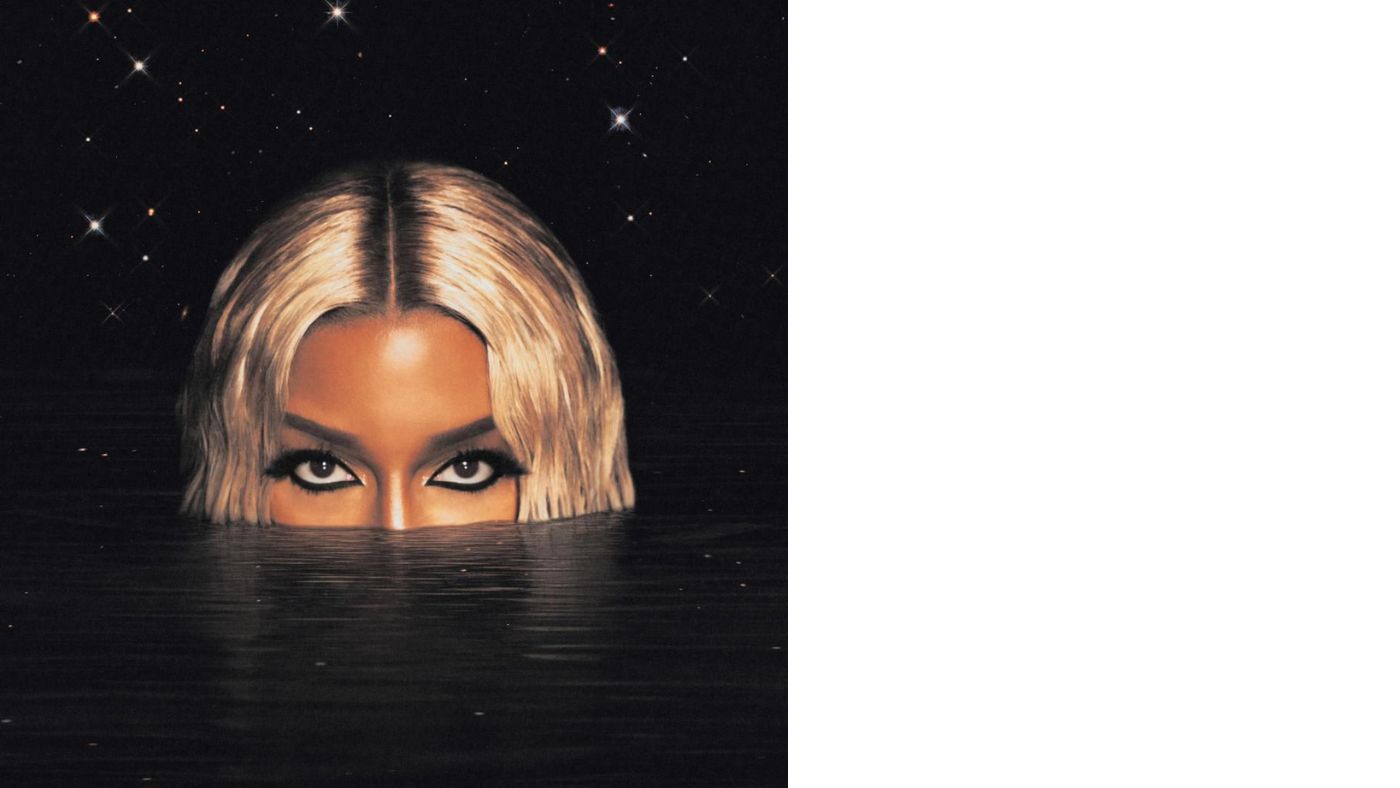
The Atlanta-born musician Victoria Monét is a well regarded songwriting talent who earned two Grammy nominations for her work with Ariana Grande. She has released recordings of her own before, said Arwa Haider in the FT – but only now, on this full-length album, has her “star quality” been given ”a full chance to shine”. Monét’s music takes its cues “from the golden age of ‘90s and early-’00s R&B”, and ’70s disco classics, but contains a personal touch, with aspects of “Deep-South hip hop and west-coast soul”. The album’s 11 tracks “flow like warm molasses”, and whether they are “party bangers” or “amorous serenades”, she sounds “entirely in her element”. Monét’s confident mixing of genres – pop, R&B, dancehall, disco, funk – results in “a shimmering sound that feels authentically exploratory”, said Kadish Morris in The Observer. And the lush production by regular collaborator D’Mile – “overflowing with euphoric horns and silky melodies” – fits the singer’s “soft cadence and carefree lyrics like a bespoke suit”. Lovett Music/RCA; £10
Mozart: The Piano Quartets
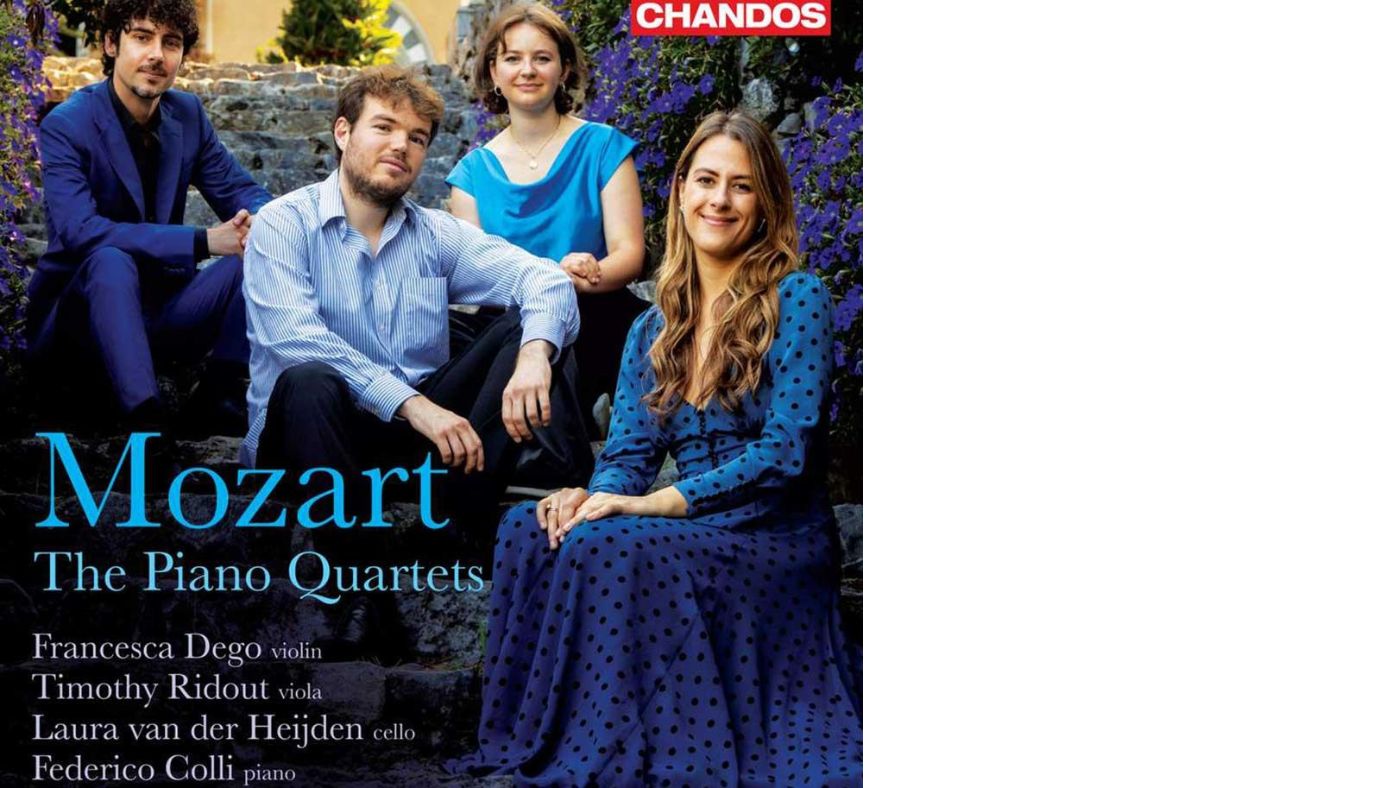
The two piano quartets on this new Chandos recording were composed in the mid-1780s, when Mozart was at his peak, said Richard Fairman in the FT. They have “the scale and tone” of his piano concertos of the time – yet they also have a “chamber music intimacy, sensitive or lightly playful as the music demands”. The darker G Minor is “brooding rather than passionate”, with viola and cello lending a “touch of chromatic angst”. The E Flat Major is “less outgoing than usual; gentle and thoughtful” instead of ebullient. The performances are “sparkling group achievements”, said Geoff Brown in The Times. On piano, Federico Colli is thoughtful, probing, crisp and inquisitive. He grabs the listener’s attention, while still leaving space for the other musicians to “spread delight”. Violinist Francesca Dego is “sprightly and elegant, while darker hues with a lyrical throb sing out from Timothy Ridout’s viola and the cello of Laura van der Heijden”. This is a “splendid showcase for the musicians’ substantial gifts, and for Mozart’s never-ending genius”. Chandos; £9.99
Public Image Ltd: End of World
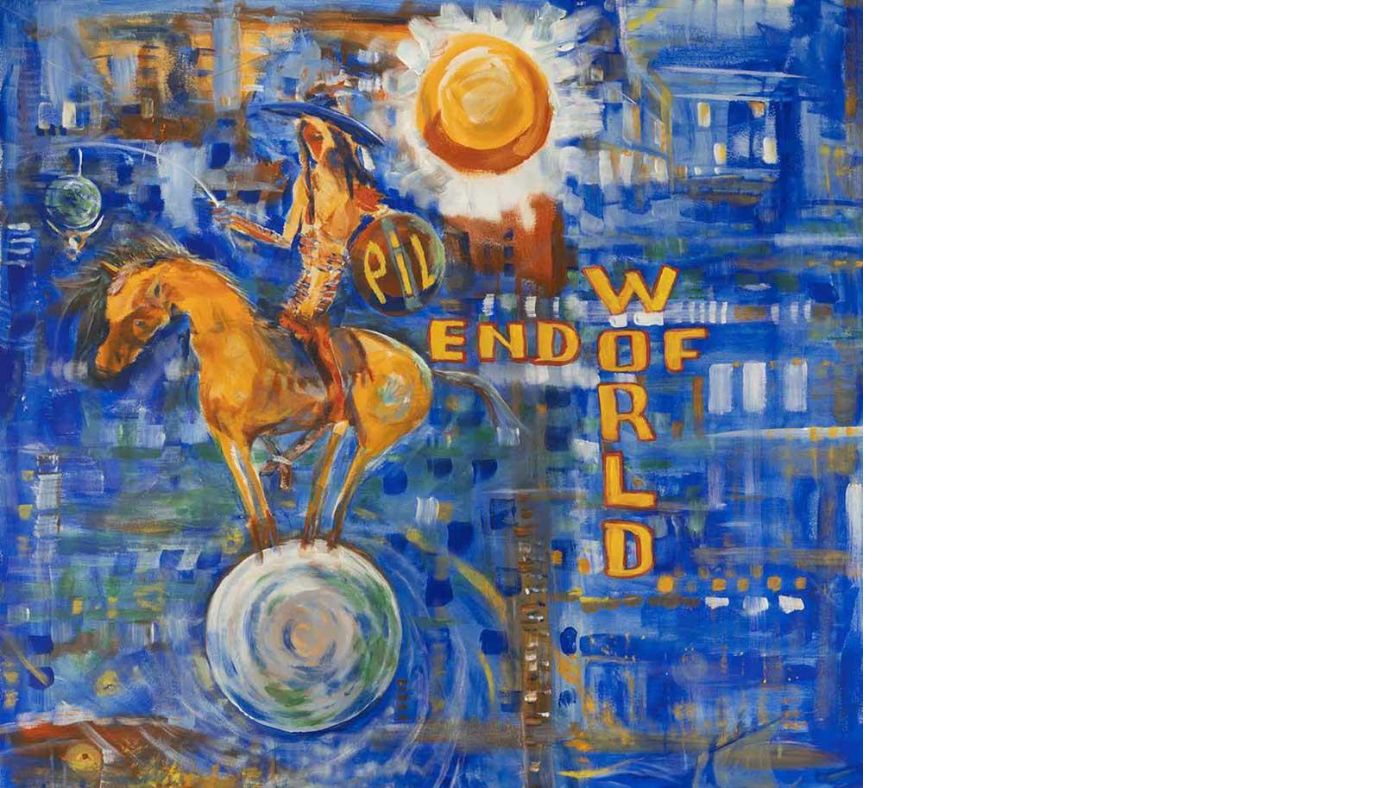
The latest album from Public Image Ltd, John Lydon’s post-Sex Pistols vehicle, provides what we have come to expect from him over the last four decades, said Will Hodgkinson in The Times. It is “angry, abrasive, defiant and exciting”. “L F C F” takes aim at old colleagues from the Pistols (it stands for “liars, fakes, cheats and frauds”), while “Being Stupid Again” rails at the online tendency for “shutting down alternative ways of thinking”. Even so, this is probably Lydon’s “most approachable” album ever, said Andrew Perry in The Daily Telegraph. On some songs, a “rather mellow, spacious groove sets in” – a shock to listeners expecting “sonic abrasion”. One track, “Hawaii”, is a “moving ballad” for his beloved late wife Nora, who died this year after a five-year struggle with Alzheimer’s disease. The song offers “support and the promise of togetherness in the afterlife, to the strains of idyllic twangs and uncharacteristically smooth crooning – an extraordinary moment of tenderness from punk’s bilious firebrand”. £12.99; pilofficial.com
The Hives: The Death of Randy Fitzsimmons
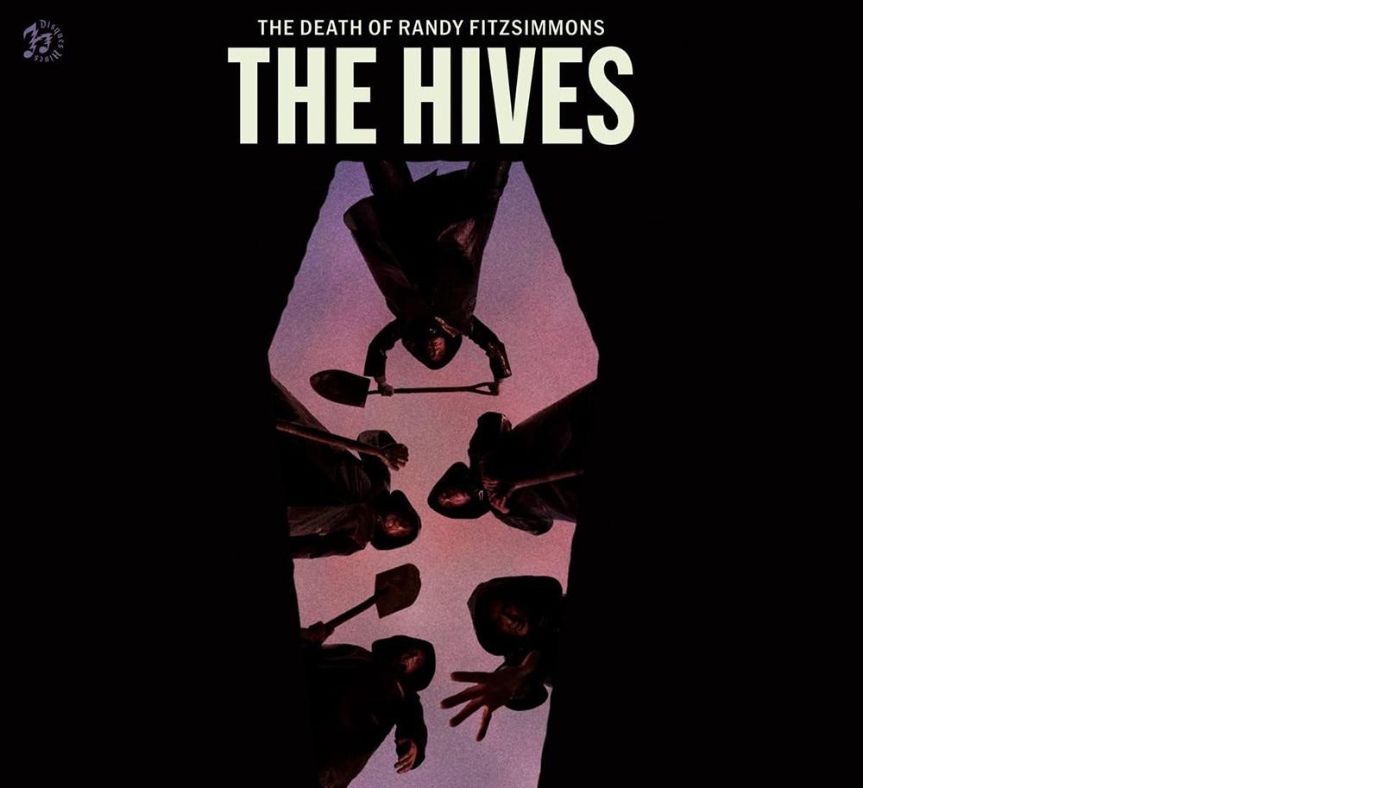
Swedish rockers The Hives are back with their first album for a decade – and it’s “riotously good”, said Katie Hawthorne in The Guardian. The band’s familiar “electrified vocals, staccato guitar and relentless pace” remain in place, but the new collection “finds the band heavier, louder and faster than ever: tyres screech on “Trapdoor Solution”, a 64-second Looney Tunes sprint”. “Two Kinds of Trouble” is “vintage Hives, with a riff like a thunderbolt and a broken-down third act that will whip crowds into chaos”. The album’s strange title, said Rishi Shah on NME, refers to an enigmatic fictional character who was supposedly recruited by The Hives and wrote all their music. “As with most statements made by the band, it’s crucial to the enjoyment of their work to not take things too seriously or literally.” In any event, this is a cracking return, full of raucous “pandemonium” and energy. “It’s about time new generations received this healthy dose of old-school Hives, packed with the same intensity, goofiness and, of course, the matching black and white suits”. Fuga; £11.99
Handel: Serse (The English Concert, Harry Bicket, conductor)
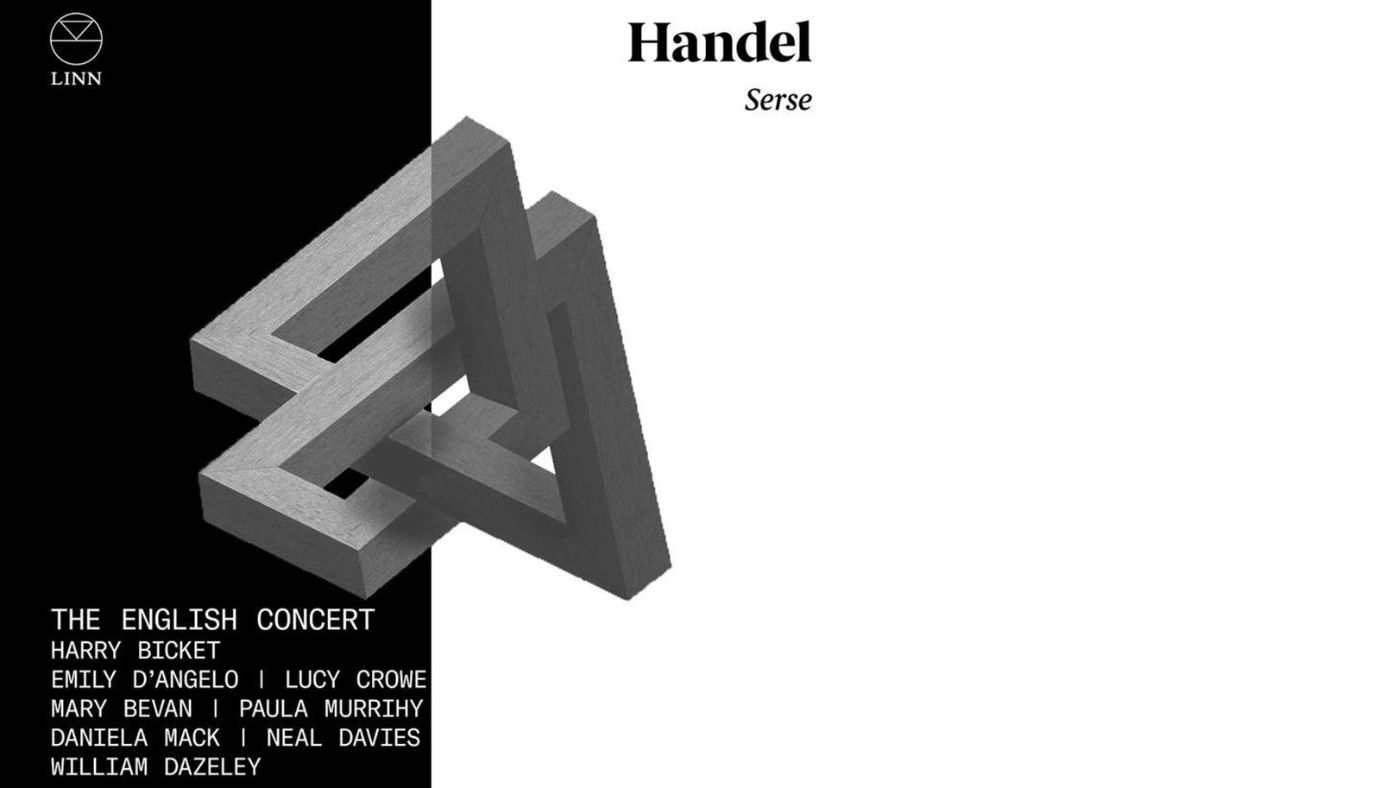
This new recording of Handel’s 1738 opera “Serse” by the period-instrument orchestra The English Concert is “surely one of the most charismatic now available”, said Edward Breen on Gramophone. A tale of political intrigue and romance set in ancient Persia, Serse includes some of Handel’s most “ingenious musical architecture”: he gently but persistently disrupts formal conventions to aid “both comedic flow and character development”. On this “engaging” recording, the crack cast handle the comedy well, and their “quick-fire recitative allows many emotions to sparkle between the famous arias”. There have been other notable recordings of “Serse”, said Richard Fairman in the FT – but this one “more than holds its own”. It features no countertenors: the five main characters are all taken by female voices, and “the leading pair especially are outstanding”. In the title role, Emily d’Angelo has “tremendous panache and a firm, arresting mezzo-soprano”, while the “beauty and individuality” of Lucy Crowe’s singing as Romilda “would melt any heart”. Linn Records; £23
Jessy Lanza: Love Hallucination
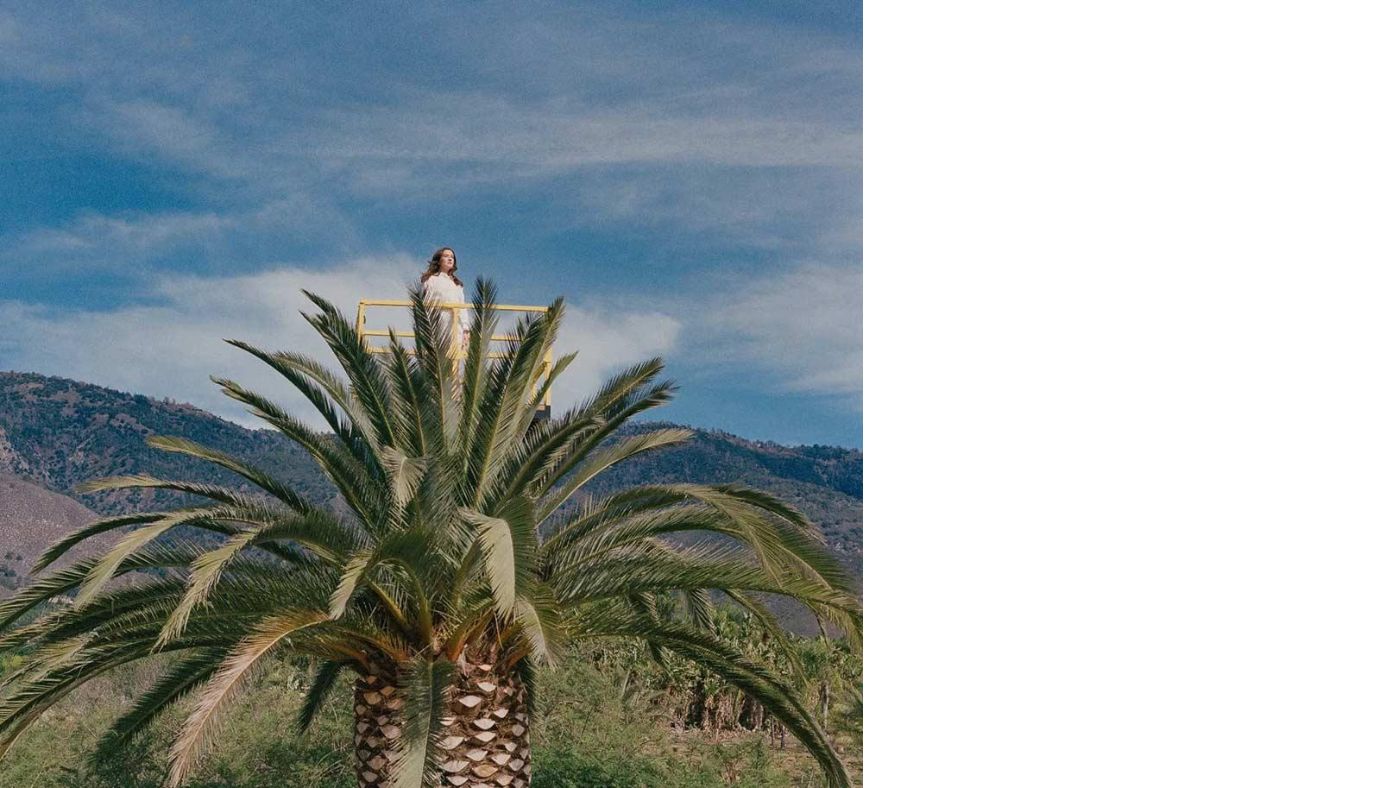
The Canadian electronic artist Jessy Lanza has long been a “cult favourite in the underground scene”, said Ben Jolley on NME. But her “understated electro-R&B fusion” has over the years gradually become more marketable, with “nuggets of pop potential” indicating that mainstream success was coming. “Now, with her fourth album, the sensually shimmering “Love Hallucination”, that time has come.” It’s her best collection yet: a record that “boldly soars towards synth-pop ecstasy while retaining its experimental desire”. If her previous album, 2020’s “All the Time”, “traded in suggestion”, then this new one is more bold and upfront – while also leavened with humour, said Laura Snapes in The Guardian. The tracks here find Lanza no longer requesting sexual satisfaction and devotion from the object of her desires, but demanding it. “Show me you can run it like a marathon,” she challenges a lover on “Marathon”, a song that “breaks for a lavish sax solo that embodies her demands for slowness”. This is a career high from a “uniquely puckish” artist. Hyperdub; £14
Johnathan Blake: Passage
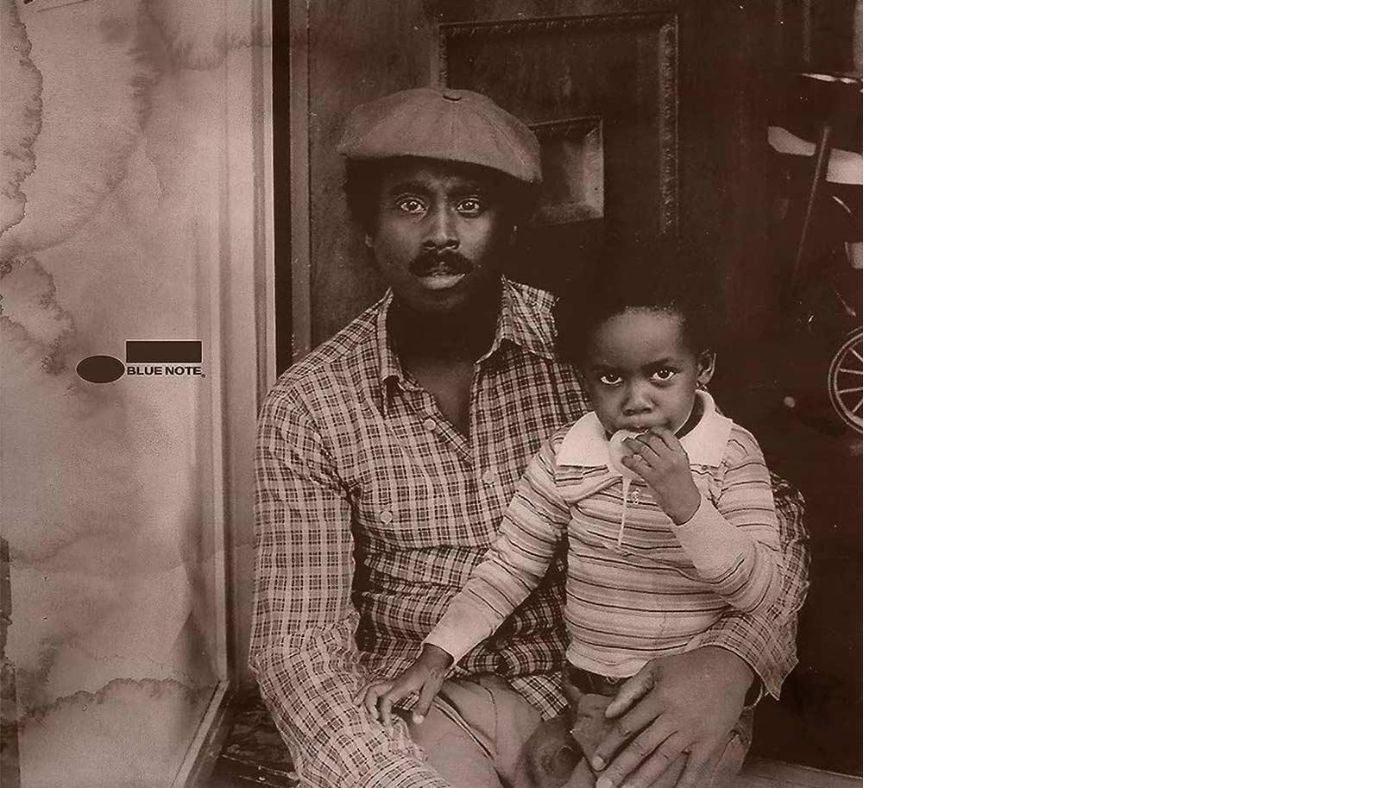
On his “moving and poetic” second album for Blue Note, the New York drummer-composer Johnathan Blake – whose work has ranged across cutting-edge modern jazz and R&B – has reconvened the “dynamic and intergenerational Pentad quintet” he put together for 2021’s “Homeward Bound”, said Matt Micucci in Jazziz magazine. On ten original tracks, five of them Blake’s own composition, the artist “pays tribute to those who have touched his life and shaped his music”, and captures the “arc of personal and collective evolution”. The album is a triumph, said Mike Hobart in the FT. Blake’s sensitivity and creativity continue to shine. And two years on from their last collaboration, the band’s “intensity is a fraction higher, and the soloists dig even deeper into the music’s core”. Alto saxophonist Immanuel Wilkins plays with “fire and focus”. Cuban pianist David Virelles combines “scintillating speed with downbeat left-hand vamps”. And Joel Ross – regarded as the US’s most exciting young vibraphonist – “unerringly finds the right lines to weave into an already heady mix”. Blue Note Records; £15
Joni Mitchell: At Newport
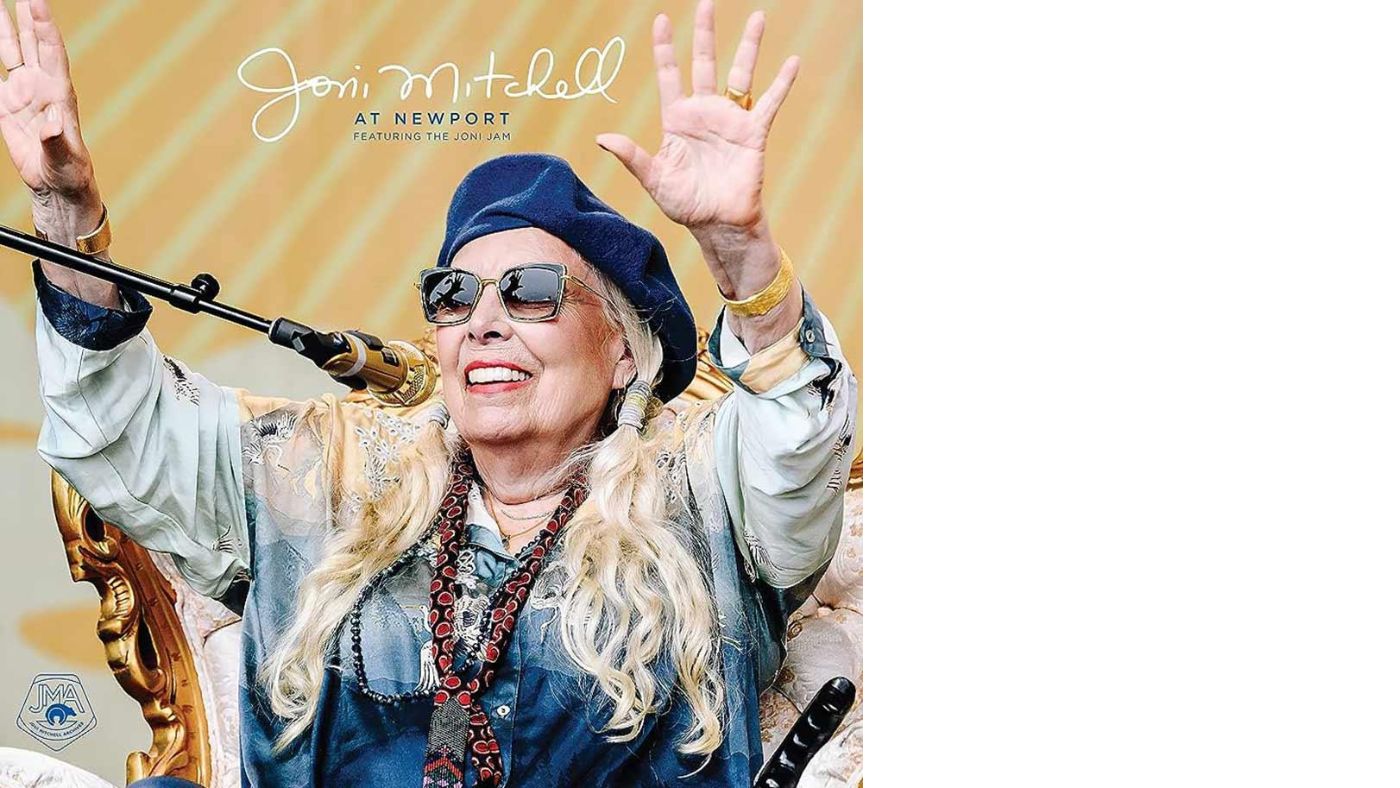
Joni Mitchell’s surprise appearance at last year’s Newport Folk Festival marked the singer-songwriter’s first time at the festival in 53 years, and her first full-length show anywhere since 2000. It was also her first public performance since suffering a near-fatal brain aneurysm in 2015, which had left her unable, for a time, to talk or walk, said Ludovic Hunter-Tilney in the FT. This “bittersweet” live concert album captures all the giddy excitement of the audience that night, as well as the infectiously “gleeful” nature of the 11-song set. It’s a magical and moving album, said Will Hodgkinson in The Times, on which Mitchell shares the stage with collaborators including Brandi Carlile, Wynonna Judd, Shooter Jennings and Marcus Mumford. Her “voice, deepened and weathered by age”, brings new perspectives to her youthful lyrics “about love, sex, growing up, finding your purpose”. What makes the set feel “really special”, though, is that “there is no preciousness here, just a celebration of great songs and the value they have for people”. Rhino; £11
Mahalia: IRL
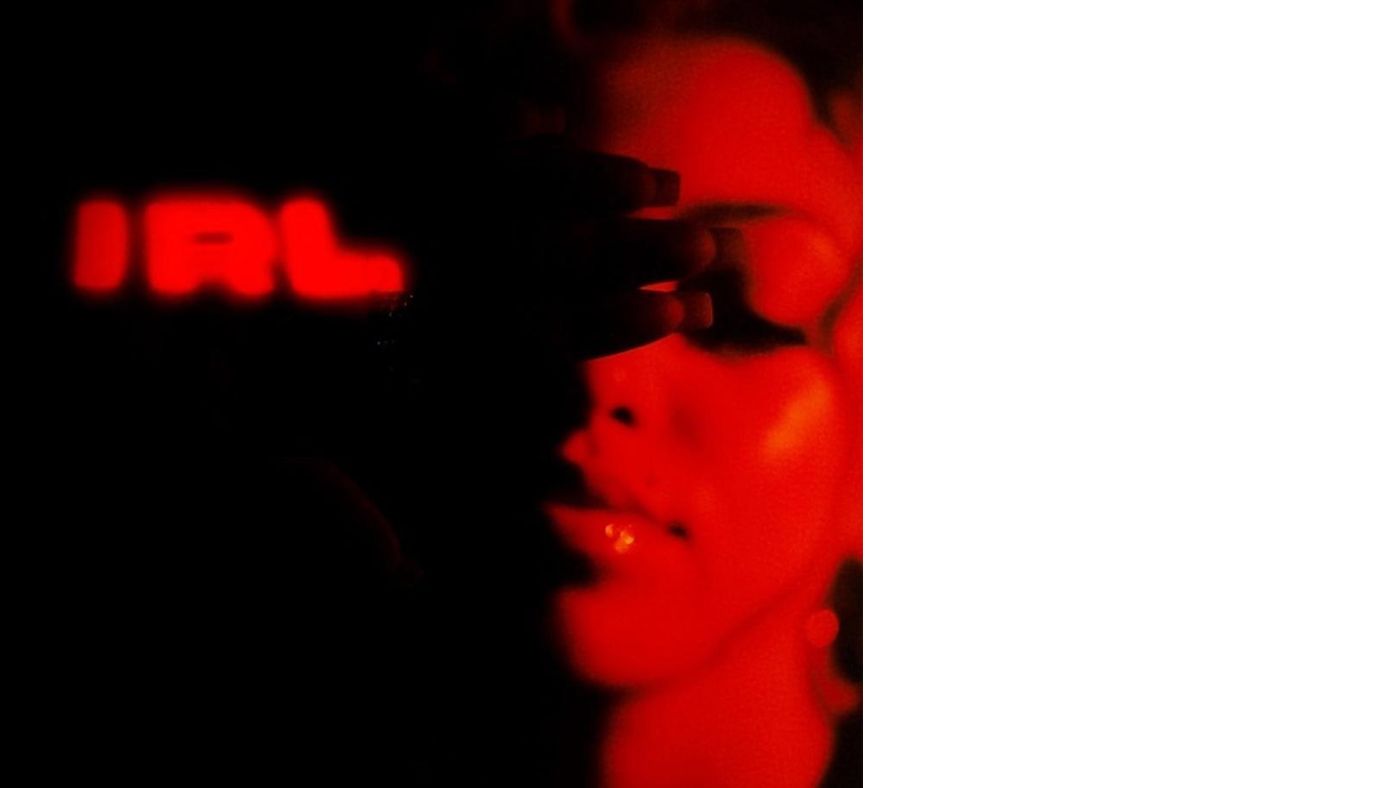
Mahalia’s 2019 debut album, “Love and Compromise”, was a “soulful meditation on the drama of romance”; this follow-up, “IRL” (“in real life”), is “decidedly glossier”, said L.A. Robinson in The Daily Telegraph. It’s packed with “shimmering beats”, sensual vocals, and “earworms sure to top summer playlists”. But for all the smoothness, Mahalia’s “pen is sharp, and her raw take on relationships and self-development is delivered with the diva attitude of Mariah Carey and the raspy cool of Erykah Badu”. “The UK R&B scene is in good hands with Mahalia at the helm. Expect to be hearing a lot more of her name.” It’s a slick and self-assured second album, said Ammar Kalia in The Observer. To my mind the tracks featuring “starry” guests – Jojo and Stormzy – are less successful. But when she is unaccompanied, Mahalia’s gorgeous voice shines. Highlights include the yearning “Ready”; the warm melody and infectious syncopated hook of “In My Bag”, the radio-friendly singalong of “Terms and Conditions”; and the guitar-strumming funk of “Lose Lose”. Atlantic; £11
Blur: The Ballad of Darren
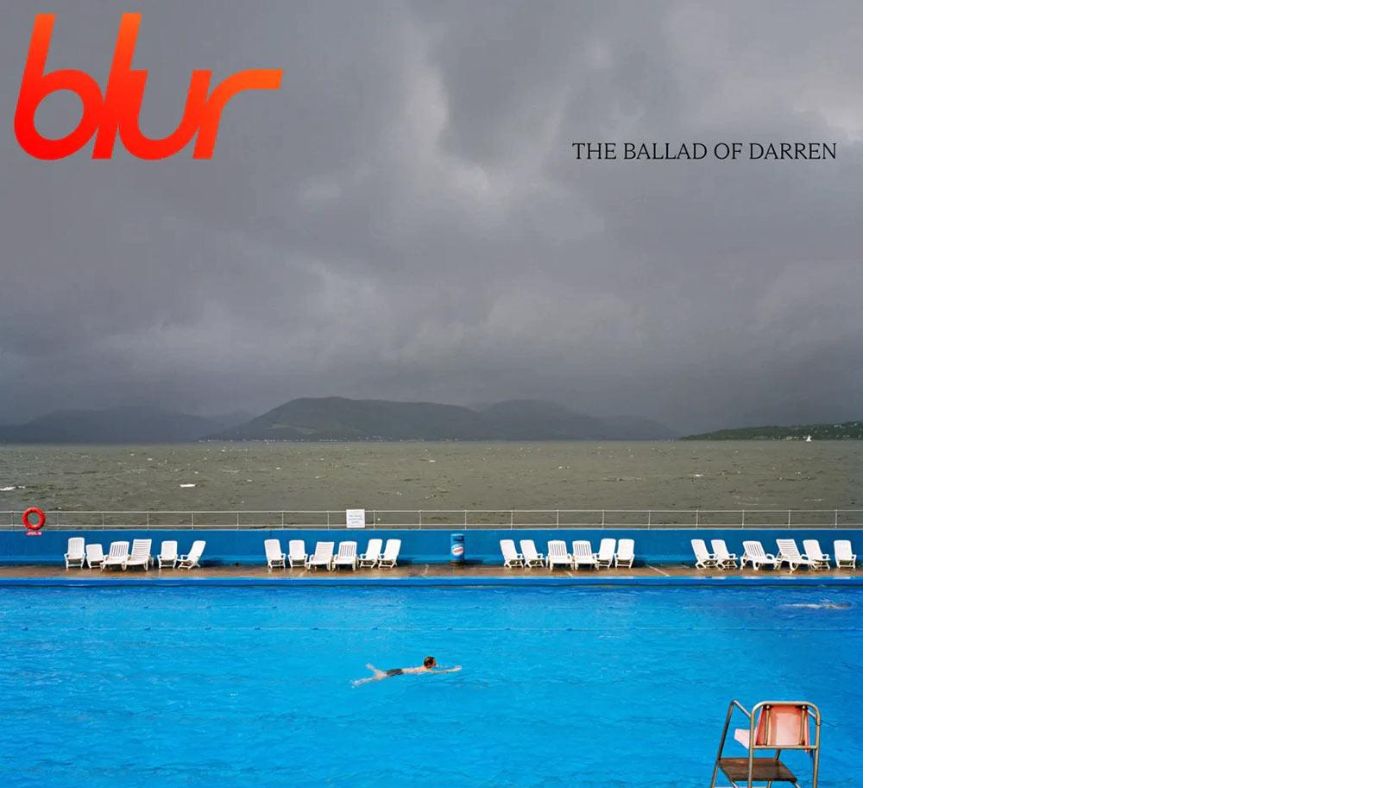
Nostalgic, ruminative and almost “painfully self-aware”, “The Ballad of Darren” (the name refers to a longstanding Blur crew member, but also represents an “everyman of a certain age”) is the band’s best record since 1999’s “13”, said Helen Brown in The Independent. If this bittersweet writing were channelled into a Damon Albarn solo release, it would “probably be set to sorrowful, detached, acousto-electronic sounds”. But here, the old team – Graham Coxon on guitar, David Rowntree on drums and Alex James on bass – have “alchemised those sentiments” into songs that elevate Albarn’s “suburban tristesse into moments of sheer ecstasy”. “Releasing an album that depicts middle age as a minefield of remorse, broken relationships and existential dread” could be seen as a “ballsy” move for “a band with a middle-aged fanbase”, said Alexis Petridis in The Guardian. But the “tunes are uniformly gorgeous”, which sugars the pill. This is the sound of musicians who are “not content to rest on their back catalogue” and who still have plenty to say. Parlophone; £11
Julie Byrne: The Greater Wings
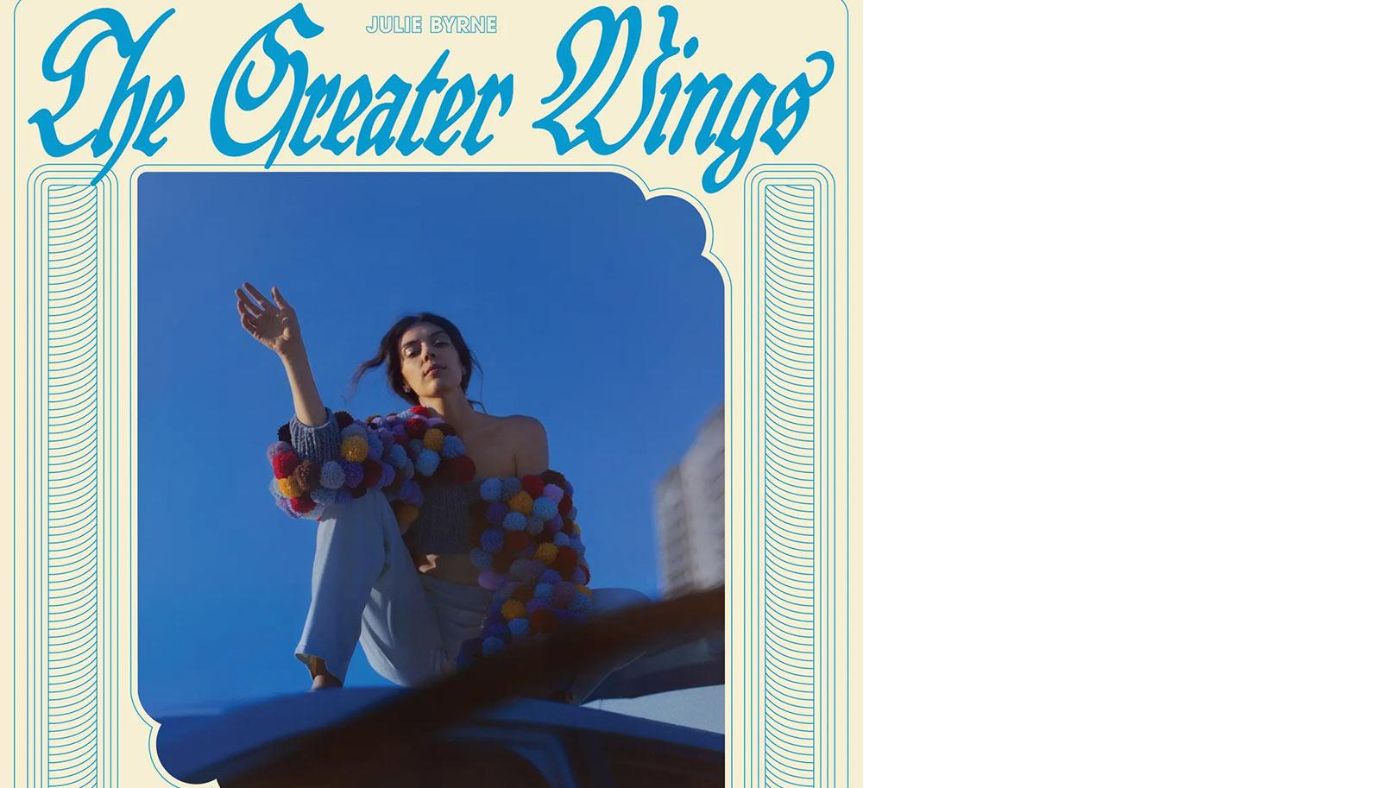
Over the past decade, the American musician Julie Byrne has established herself as a “folk-inclined singer-songwriter of rare intensity”, said Kieron Tyler on The Arts Desk. And her “deeply affecting” new album is “even more potent than what came before”. Work on “The Greater Wings” was suspended in mid-2021 owing to the sudden death, aged 31, of Eric Littmann, Byrne’s close musical collaborator and one-time partner. His playing is heard on this “elegiac, raw and reflective” record, which is “about him and the reaction to his death, and what lingers”. “Lightning Comes Up from the Ground” and “Summer Glass” create that “sense of sitting outside time through the very timelessness of their robust melodies”, said Ben Beaumont-Thomas in The Guardian. Even better is “Hope’s Return” – a “modern classic”. In terms of its musical and emotional register, “The Greater Wings” recalls Sufjan Stevens’s masterpiece “Carrie & Lowell”. But Byrne’s album is “ultimately as singular as the woman singing it, and as unforgettable as a departed friend.” Ghostly International; £11
Anohni and the Johnsons: My Back Was a Bridge for You to Cross
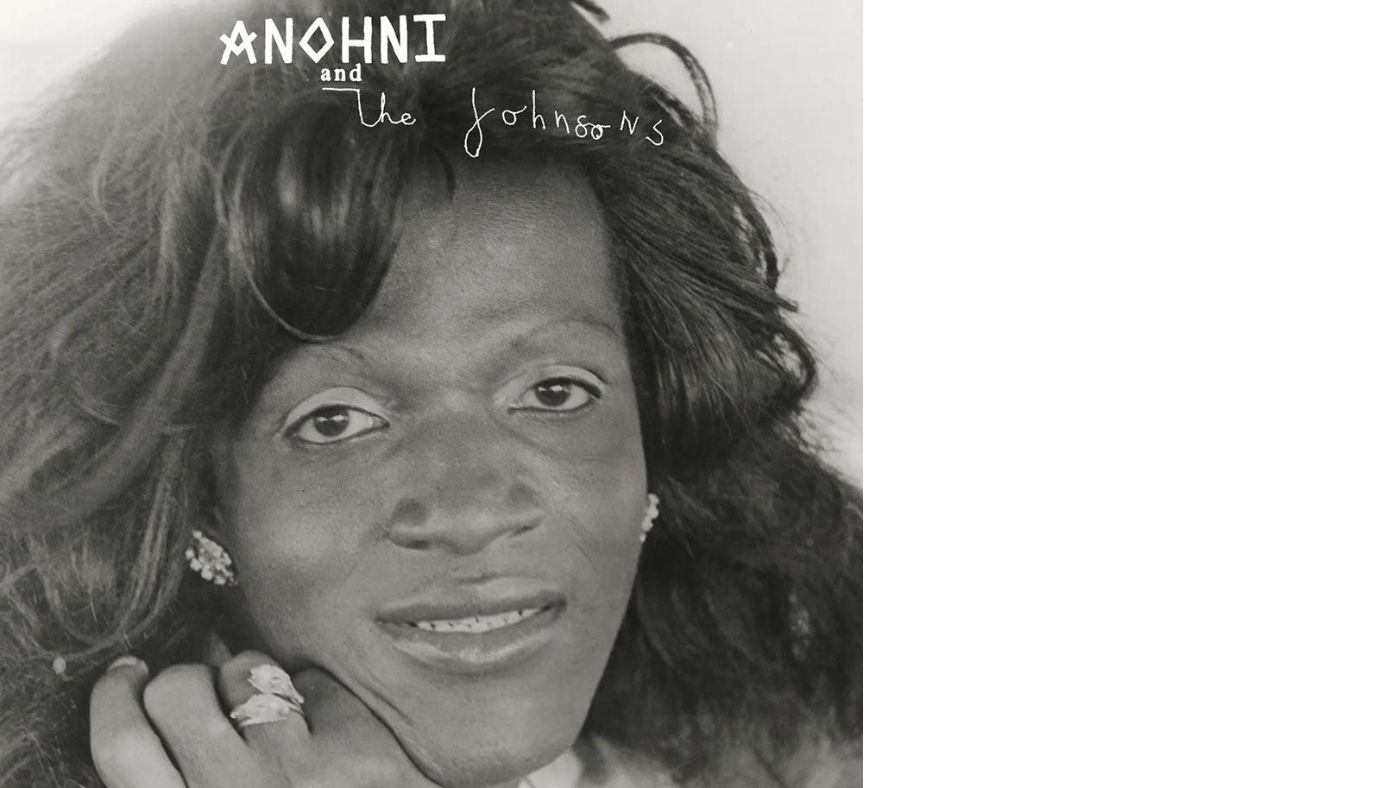
As she is famed for her restless experimentation, it’s “hardly surprising that Anohni’s latest release is another left turn”, said David Smyth in the Evening Standard. The Johnsons are credited as the backing band for the first time since 2010’s “Swanlights”, but her main collaborator here is Scottish producer Jimmy Hogarth, who is known for his work in the soul-pop world with Amy Winehouse, Corinne Bailey Rae and Duffy. “Anohni’s voice is so grand and strange that she doesn’t need much in the way of instrumentation for a song to sound special.” But here the sound is dominated by Hogarth’s “casually strummed electric guitar”, and there is an “improvised feel” to the often one-take vocals. This outstanding album – Anohni’s first under any name since 2016 – adds a “soulful swagger” to her “poetic, cathartic rock”, said Michael Cragg in The Observer. She continues to “soundtrack oppression, loss and alienation with heart-aching precision”, but this terrific collection “wears its heaviness lightly, and quickly buries its way under your skin”. Rough Trade; £11
Forbidden Fruit: Benjamin Appl (baritone), James Baillieu (piano)
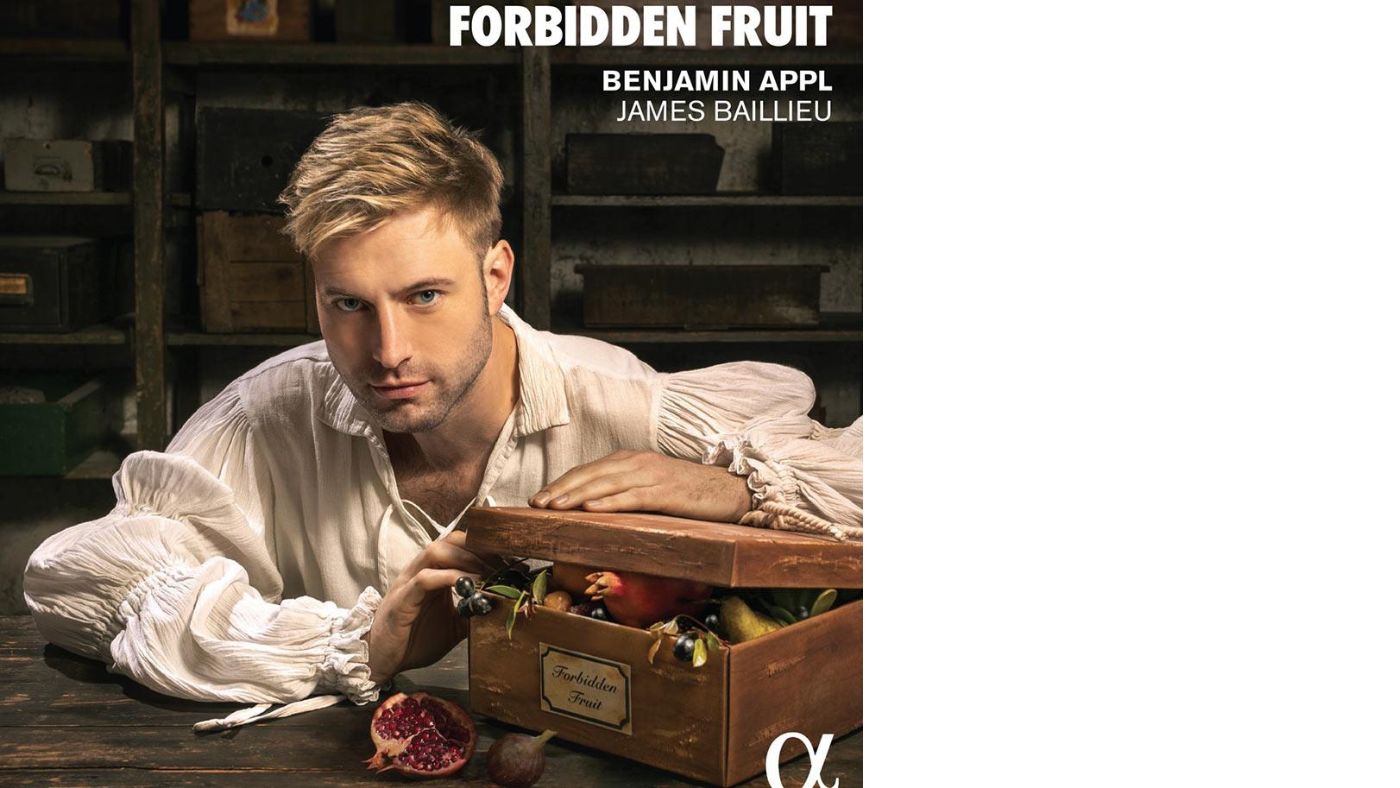
The latest album from the German-born, UK-based baritone Benjamin Appl is a somewhat “strange” but appealing kind of concept album, said Dan Cairns in The Sunday Times – a diverse collection of songs about temptation and its consequences, kicking off with the folk song “I Will Give My Love an Apple”. Pieces by Schubert, Weill, Hahn, Fanny Mendelssohn and others are navigated by Appl with ease, while his pianist James Baillieu is “crystal clear and light of touch”. The “tasty” delights here are certainly wide-ranging, said Erica Jeal in The Guardian. Well supported by Baillieu’s “responsive piano”, they range from 19th century Lieder to the modern US composer Jake Heggie; from Poulenc and Mahler to Marlene Dietrich’s “Just a Gigolo” – and are “bookended by two iterations of a gossamer piano solo version” of “In Paradisum” from Fauré’s “Requiem”. It is performing the “gentler” numbers that Appl is at his “considerable best, sustaining intensity even when spinning the tiniest thread of sound, his voice all velvet smoothness”. Alpha; £14
The Endless Coloured Ways: The Songs of Nick Drake
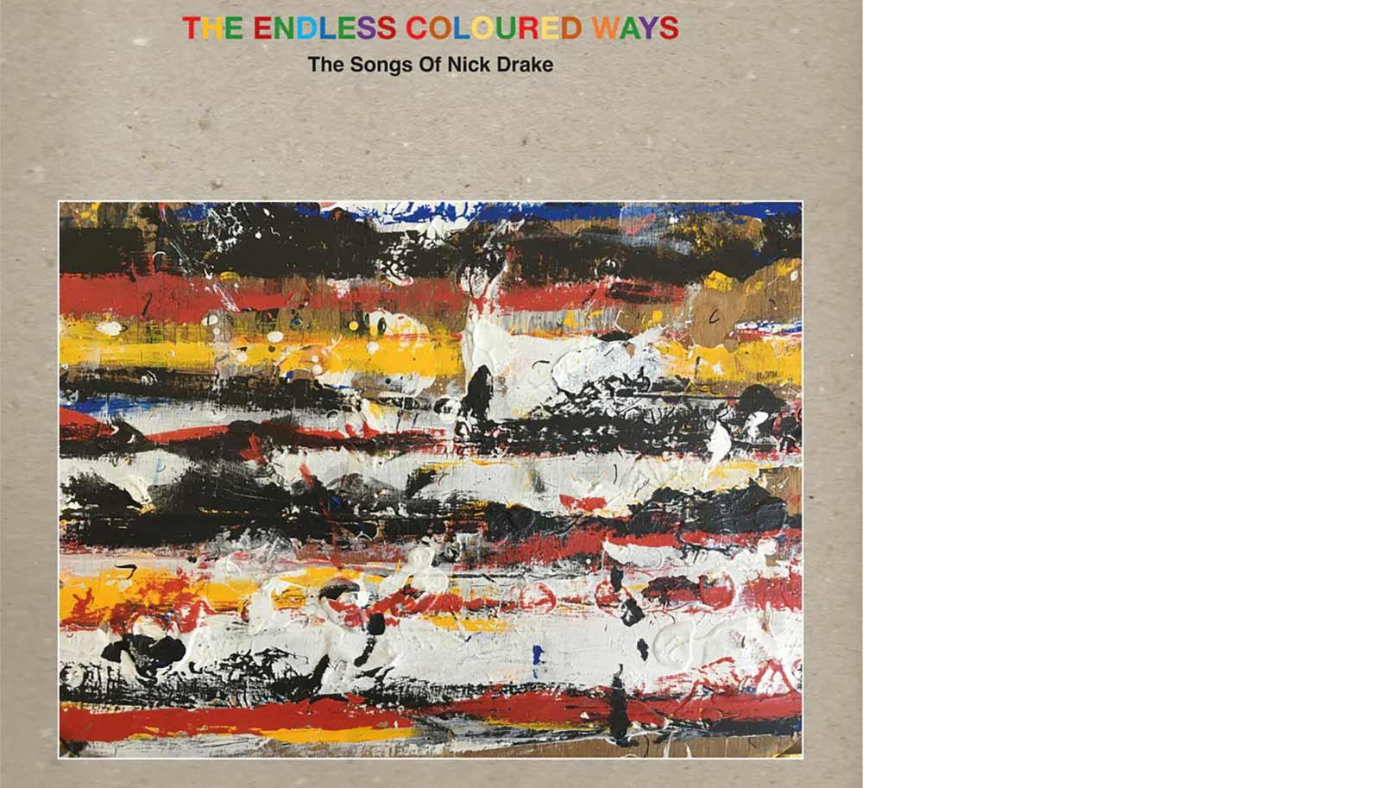
This 23-track tribute to Nick Drake, featuring cover versions of his songs by a range of artists, is a triumph – and “an essential manual on the art of songwriting”, said James Hall in The Daily Telegraph. The tracks are “exciting, revealing and inventive”, and showcase the “timeless songcraft” of the English musician, who died in 1974 aged just 26. The covers that work best are those that sound nothing like the originals: Fontaines D.C.’s “fantastic” cover of “Cello Song”, for example, sounds like a “doom-laden Stone Roses”; Let’s Eat Grandma turn “From the Morning” into “dreamy electropop”; and Bombay Bicycle Club and The Staves “sing ‘Road’ as a round, giving it a hypnotic quality”. It’s frankly impossible to improve on the “delicate beauty” and “quiet devastation” of Nick Drake, said Will Hodgkinson in The Times – so it makes sense to take his songs in another direction entirely. “These open-ended interpretations are for the most part brave and interesting, but they do have the effect of driving you back to the originals.” Chrysalis; £15
Britten & Bruch: Violin Concertos (Kerson Leong, violin)
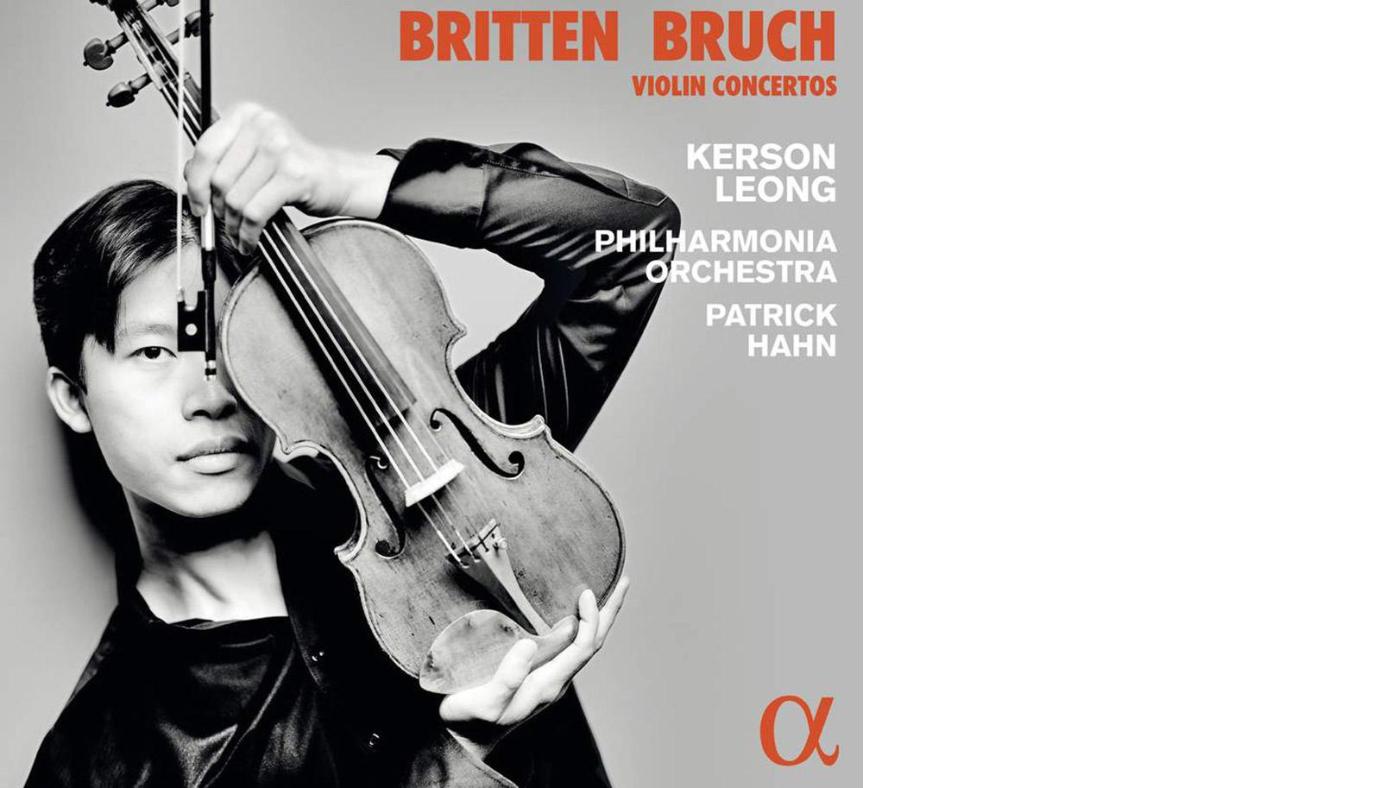
It’s admittedly hard to go wrong with such a “banker” as Bruch’s “First Violin Concerto”, said Dan Cairns in The Sunday Times – but “it’s a struggle to think of a lovelier and more romanticised reading of the slow movement” than this one, by the Canadian virtuoso Kerson Leong. As a Bruch bonus, the composer’s “In Memoriam” draws “similar richness and beauty” from both Leong and the Philharmonia Orchestra, under the sure baton of Patrick Hahn. Leong’s phrasing in the high passages is a “miracle of control and feeling”. It’s a splendidly expressive and committed recording of the Bruch, notable for its “generosity of phrase and tone”, said Edward Seckerson in Gramophone. But it’s the pairing of the Bruch with Britten’s “Violin Concerto” that really sets this collection apart. This is Britten at his “most elegiac and unsettled”, and Leong is “clearly at one with its inner tussles” and torment – really making his mark with the shattering Passacaglia. “I can’t recall a better account of the piece than this.” Alpha; £14
The Japanese House: In the End It Always Does
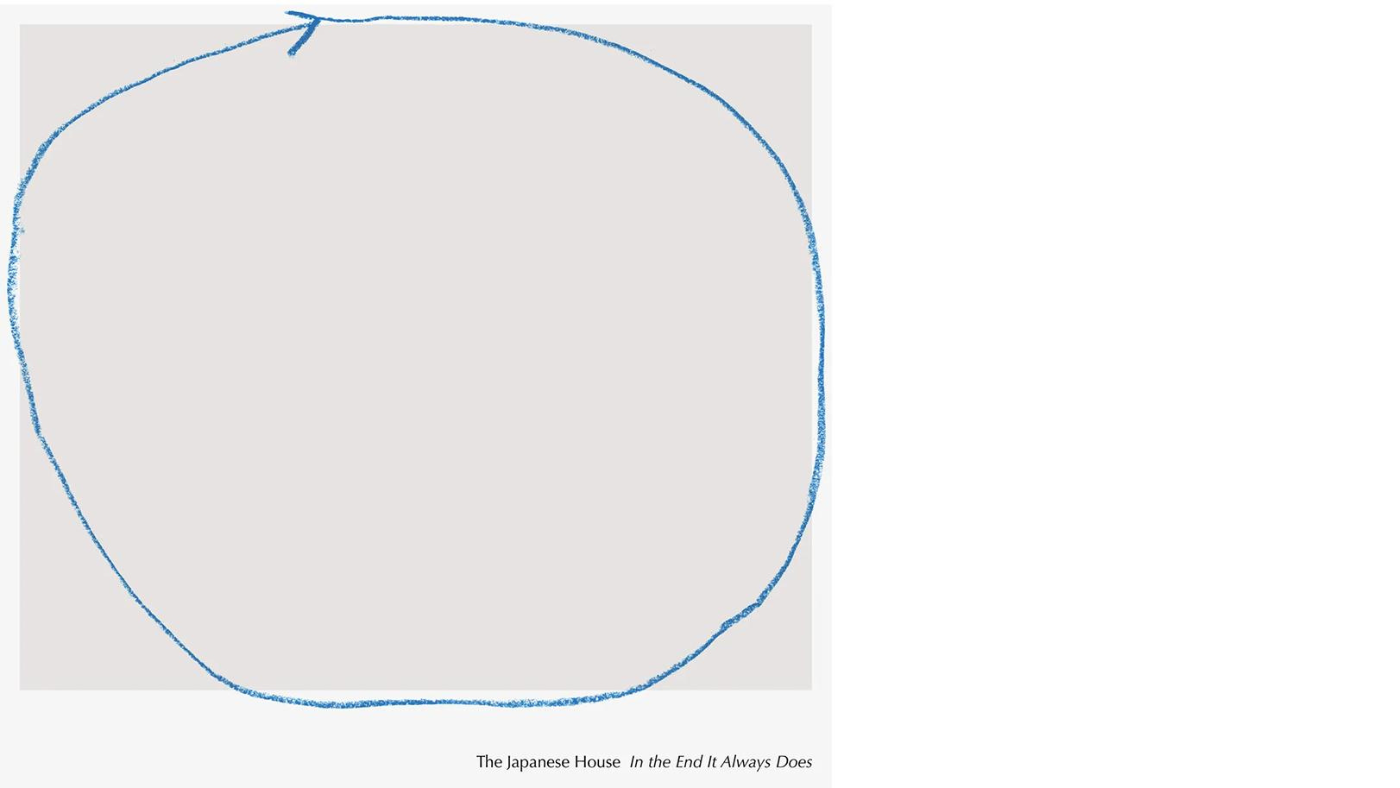
This second album from English singer-producer Amber Bain (recording as The Japanese House) is a “deliciously fragrant” affair, said Helen Brown in The Independent. The songs are mostly “diaristic meditations” on love affairs, friendships, and the places in between, “backed by soft sprinkles of guitar” and “suffused with hazy poetry”. And you can hear in them echoes of great female singer-songwriters: a “drizzle of detached Suzanne Vega”, a “puddle of swooning Sarah McLachlan”, and in the sharpness of the lyrical observations, a large dose of Joni Mitchell. It is an album that “cools and shimmers its way through a delicious range of nuanced moods and subtly layered musical ideas”. The sound is brighter than on Bain’s 2019 debut, “Good at Falling”, said Hollie Geraghty on NME. Tracks such as “Boyhood” and “Touching Yourself” swap the “oppressive reverb that trembled through her debut” for “spry melodies” and a more “lucid” vocal, with fewer post-production effects. This is an “intoxicating” work from a major talent. Dirty Hit; £12
Geese: 3D Country
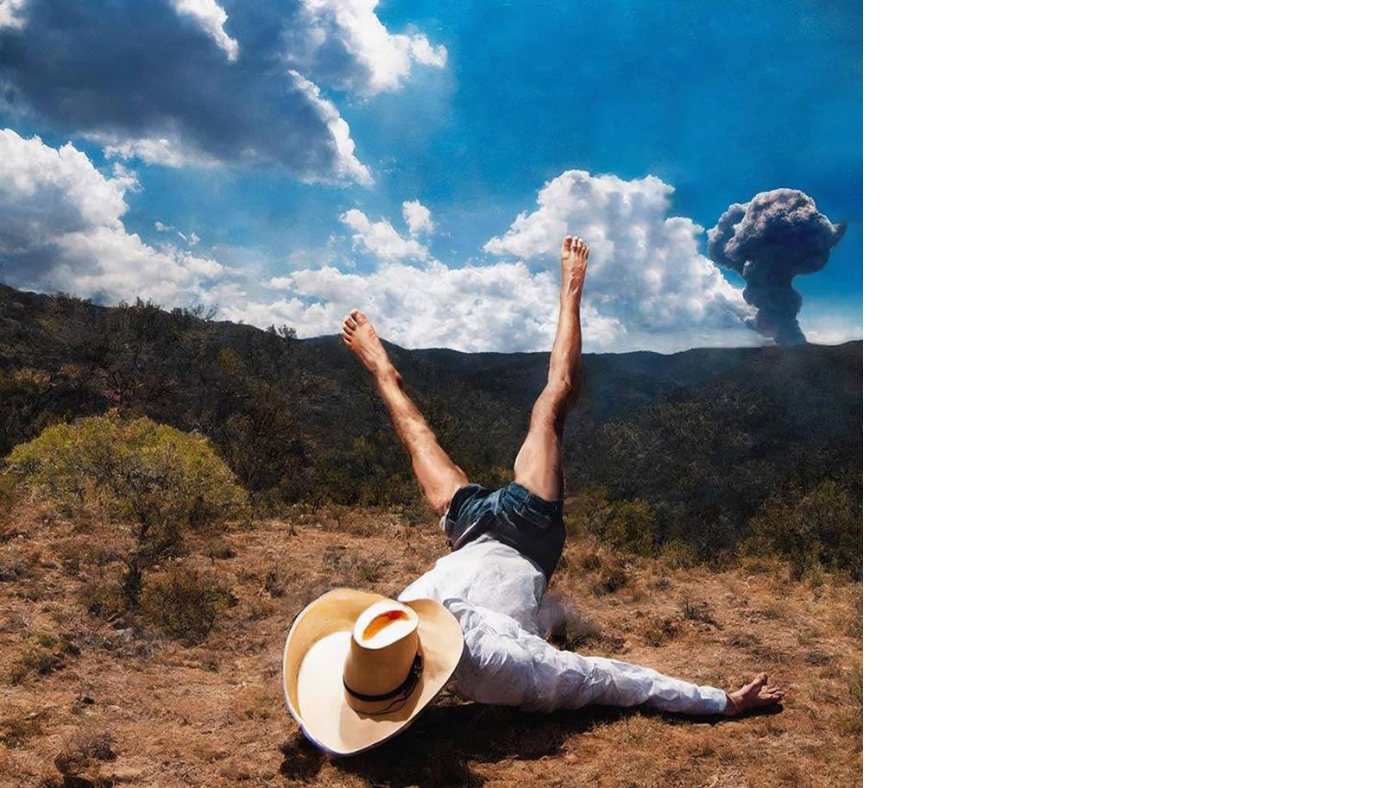
The days are long gone when New York indie guitar bands were guaranteed acres of coverage in the music press, said Ludovic Hunter-Tilney in the Financial Times – even if “relics of those days” remain in the form of “superannuated Strokes tours”. Two years ago, however, a young Brooklyn five-piece were hailed as potential saviours of the ebbing indie scene. With their debut, “Projector”, Geese “raced out the blocks with nervously jangling riffs, a New-York-minute tempo and brashly drawled vocals”. Now their follow-up’s here, and it’s even more full of “brio and adventure” – and “closer in spirit to current London bands such as Black Midi than the dinosaurs of New York rock”. “3D Country” is “bluesier, proggier, dancier, slicker, rougher, weirder” and just “better” than its impressive predecessor, said Ian Blau in Rolling Stone. Lead singer Cameron Winter is astonishingly versatile and charismatic. Here, in collaboration with their British producer James Ford (Arctic Monkeys, Depeche Mode), pretty much “every detour” the band takes “leads somewhere interesting”. Partisan Records; £10
PJ Harvey: I Inside the Old Year Dying
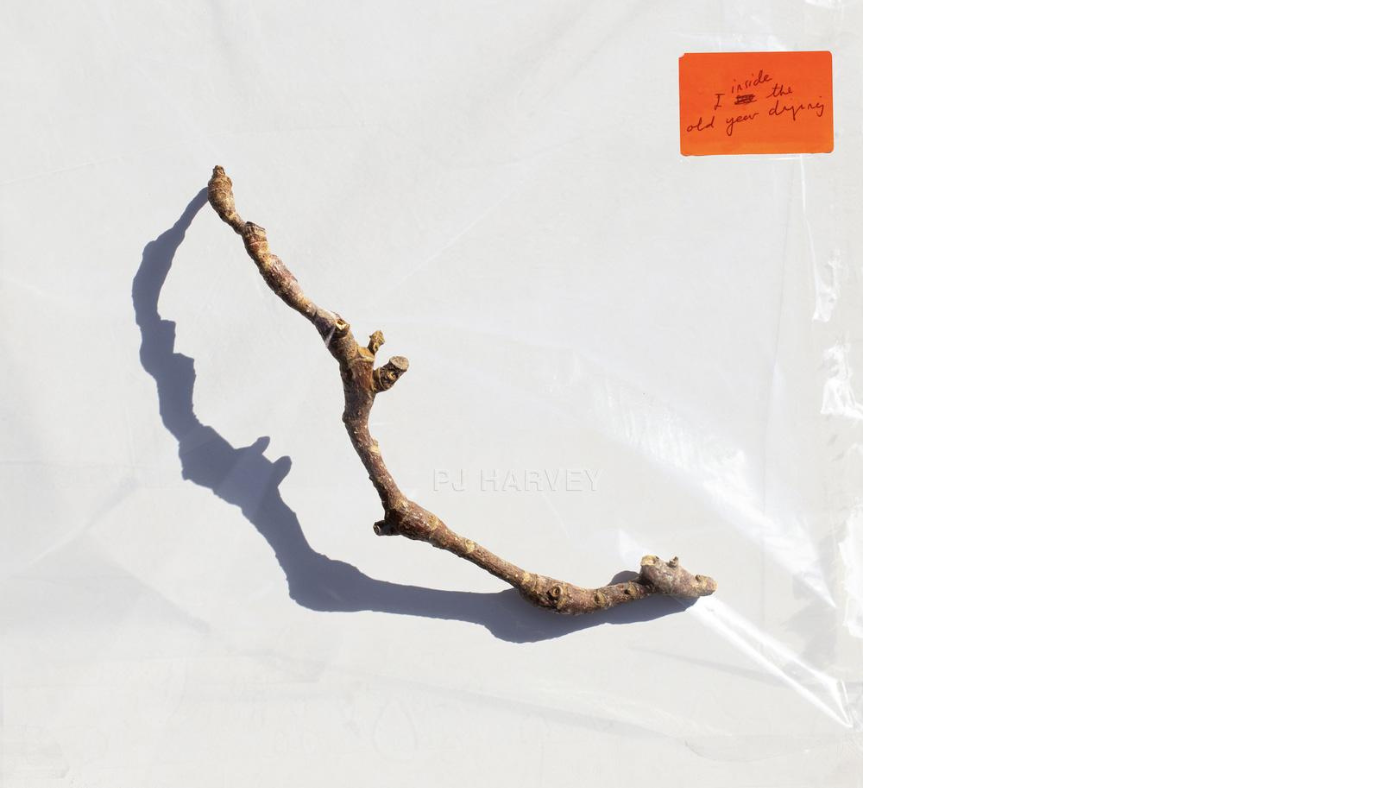
It’s seven long years since Polly Harvey’s last album, “The Hope Six Demolition Project”, which amounted to a documentary-style “travelogue of ravaged locations around the globe”, including Afghanistan and Kosovo, said Alexis Petridis in The Guardian. It was an album marked by “muscular garage rock and massed backing vocals”; this one is at “the opposite end of Harvey’s musical spectrum”. The sound is enigmatic and atmospheric; the keening vocals lending a “disturbing, fever-dream edge” to even the “prettiest melodies”. And the music is overlaid with “field recordings of children playing, power lines humming, rivers rushing and wind rattling fences”. It’s “eerily forbidding but intoxicating, and easy to lose yourself in”. The songs are adapted from Harvey’s own dream-like poems, and draw on the folklore – and sometimes archaic dialect – of her native Dorset, said Fiona Shepherd in The Scotsman. She uses the extremes of her vocal range – her “haunting higher register and an androgynous alto” – to unsettling effect. It’s an “intoxicating” comeback. Partisan Records; £13
Orchestral Anthems
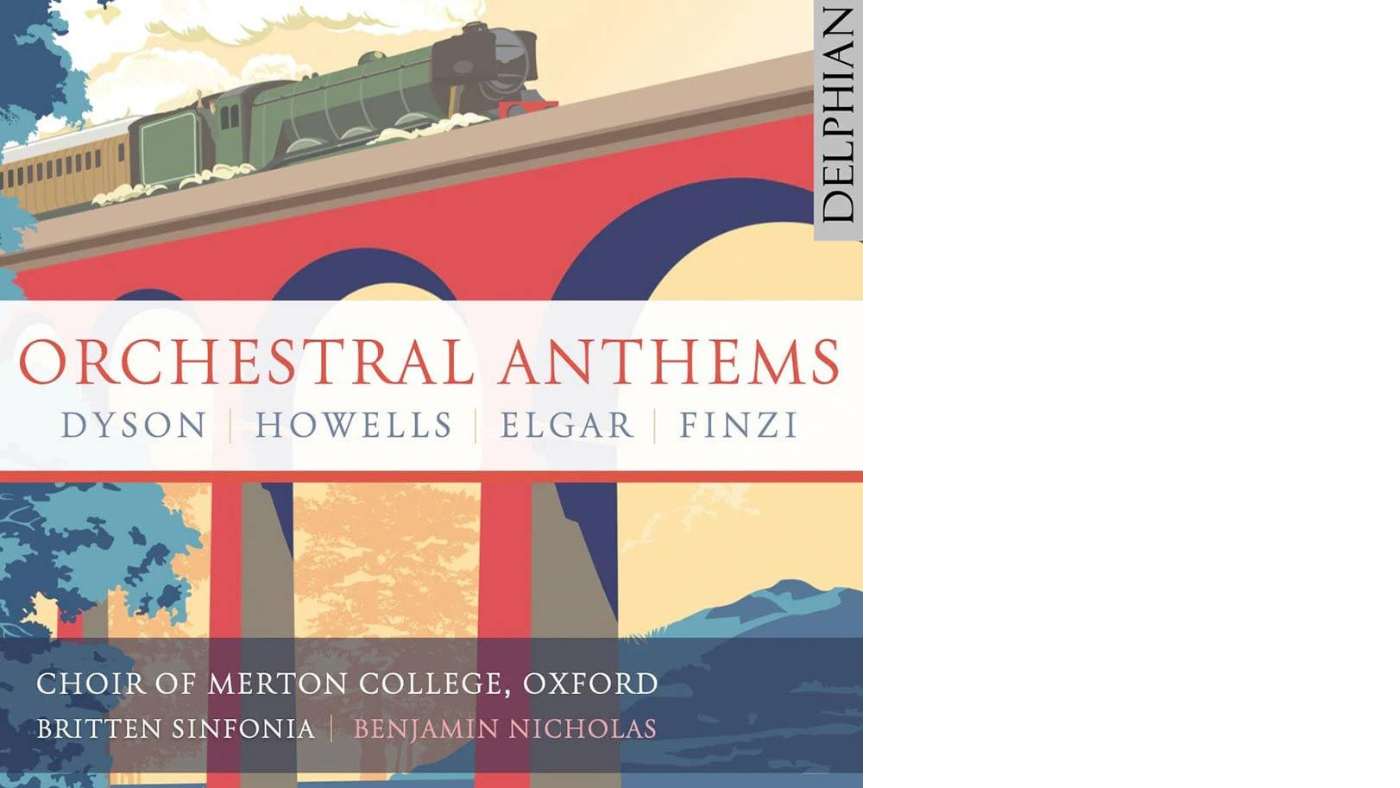
This splendid album from the “stylish” Britten Sinfonia and the “beautifully drilled” Choir of Merton College, Oxford, is “one for fans of English choral music – but not as you expect to hear it”, said Fiona Maddocks in The Guardian. It’s a collection of English anthems and service settings chiefly from the first half of the 20th century: the composers represented are Edward Elgar, George Dyson, Edward Bairstow, Herbert Howells, Ralph Vaughan Williams and Gerald Finzi. But on this “grand-scale” recording they are given full orchestral arrangements, to impressive effect. The Anglican choral favourite, Finzi’s “Lo, the Full, Final Sacrifice”, full of subtle woodwind detail, stands out. And Dyson’s “Magnificat and Nunc Dimittis” are “notably rousing”. The church acoustic occasionally muffles words, said Geoff Brown in The Times. But you “can’t deny the fervour” of the choir and their director Benjamin Nicholas, or the “extra splendour radiating from the musicians” of the chamber orchestra. “For as long as the recording lasted, all was right with the world.” Delphian; £15.99
Cuarteto Casals: J.S. Bach – The Art of Fugue
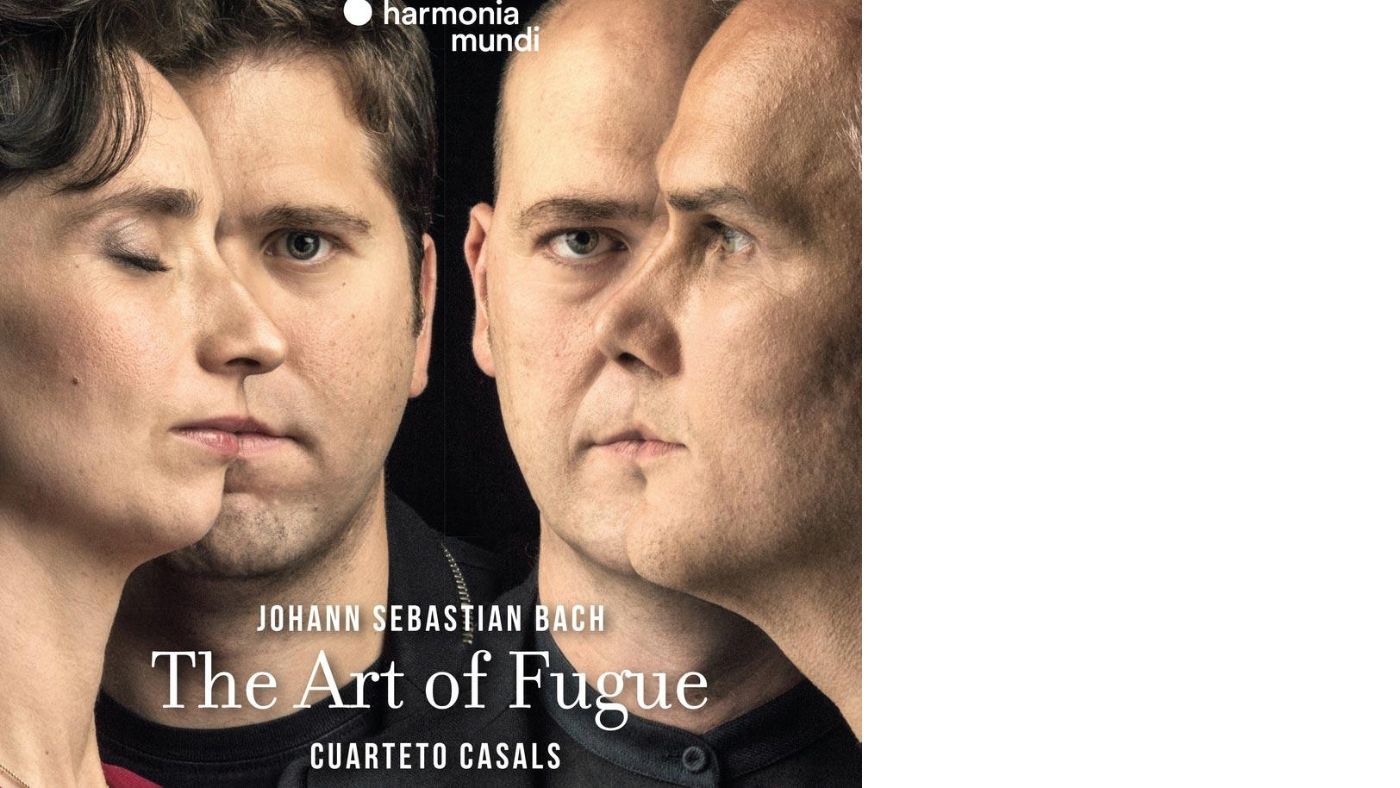
Bach’s “The Art of Fugue” is “one of the musical world’s most striking wonders”, said Geoff Brown in The Times. A “pinnacle of the contrapuntal art”, it is usually performed by keyboard players, but string quartets, chamber ensembles – even a quartet of saxophones – have all had a go. This latest interpretation is by the Barcelona-based string quartet Cuarteto Casals, and it is “gripping”. Performing on period instruments, with period bows, the musicians “inject passion and warmth into everything they touch”, and the “conversations and arguments built into Bach’s textures” shine through brilliantly. There is no definitive version of “The Art of Fugue”, said Andrew Clements in The Guardian. Bach seems to have written it to “satisfy himself”; he added pieces and reordered the sequences before it was published, and did not specify what instruments it should be played by. The Cuarteto performances are “cooler and more austere” than the Richter Ensemble’s excellent recent version, “but they unfold each movement with marvellous clarity”. Harmonia Mundi; £14
Christine and the Queens: Paranoïa, Angels, True Love
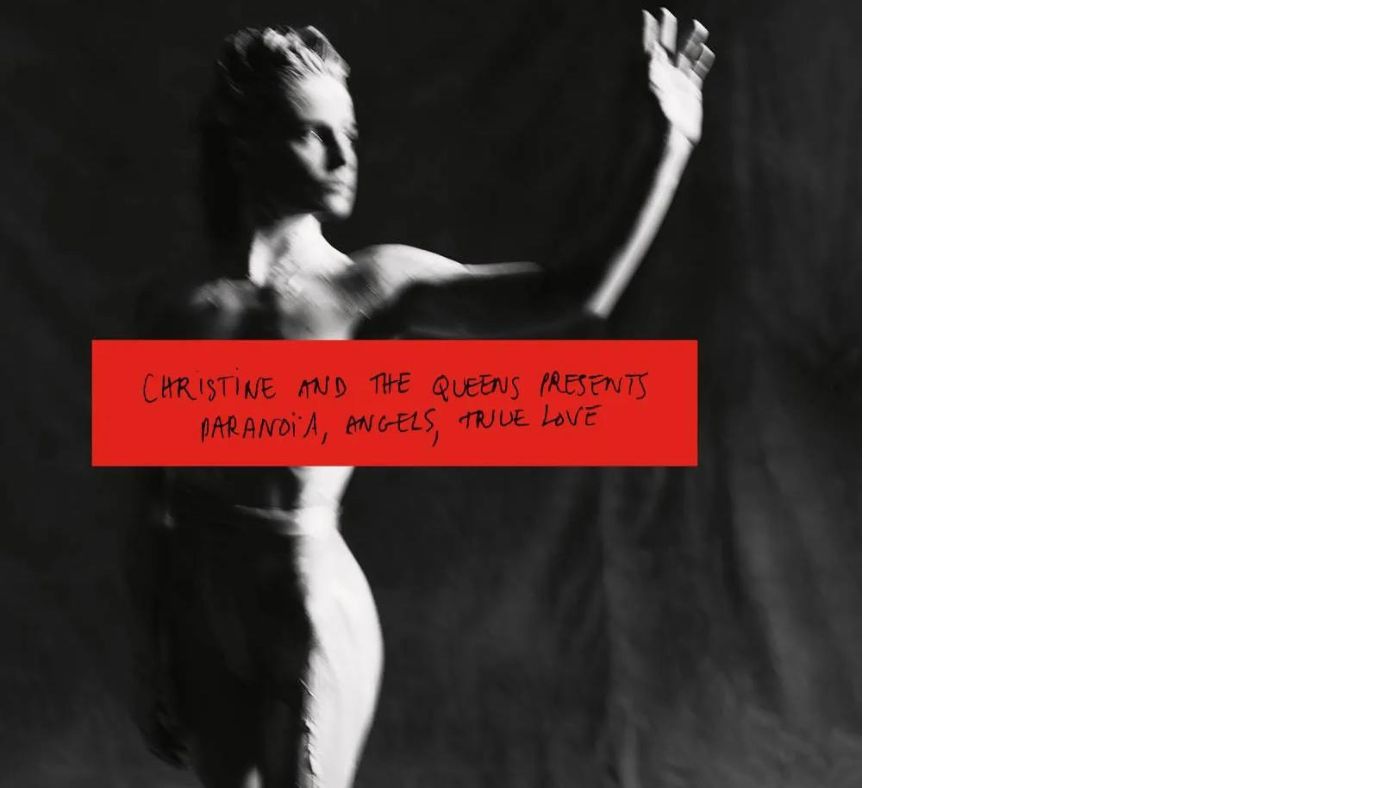
The new album from Christine and the Queens (an alias for the French musician born Héloïse Letissier, now known as Chris) is a “howl of despair sublimated into astonishingly beautiful experimental pop, drenched in warm celestial light, punctured by spikes of confused pain”, said Rachel Aroesti in The Guardian. Chris, who last year began using male pronouns, has long specialised in “immaculately cool, obliquely catchy, 1980s-flavoured synthpop” that muses on queer identities. But this may be his “masterpiece”. “Hypnotically melodic, clever, stylish, serious, fun, addictively unexpected and euphorically danceable, it’s the kind of pop they don’t make any more.” I found it “sometimes heavenly, sometimes testing”, said Helen Brown in The Independent. Featuring Madonna as a “sexy-sage” narrator, and taking inspiration from the Aids drama “Angels in America”, the album is sprawling and “occasionally self-indulgent”. But even if it’s too “rambling” to win many new fans, it is the sound of a singular talent. “Give it time to grow its wings”, and it “can really lift you up”. Because Music; £13
Amaarae: Fountain Baby
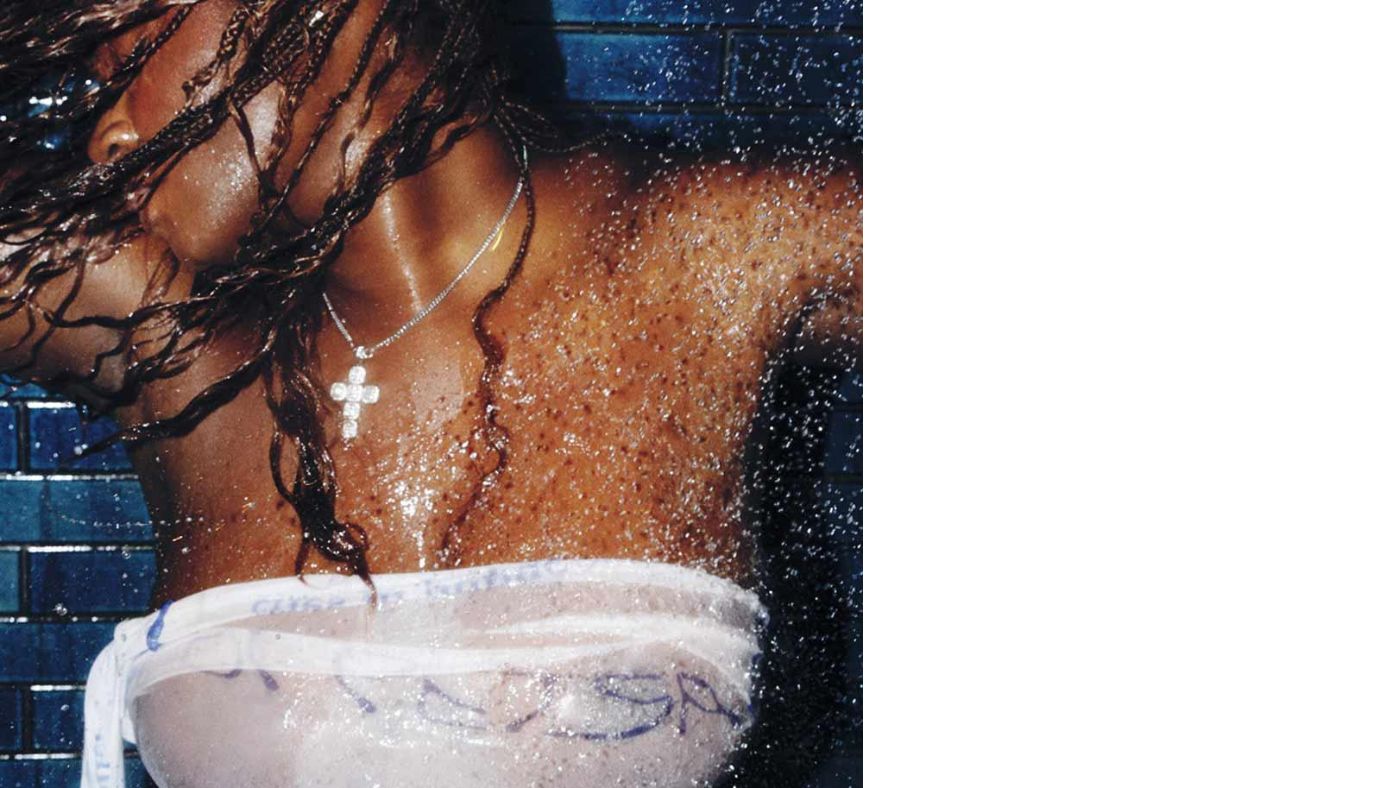
When Ghanaian-American singer Amaarae (Ama Serwah Genfi) released her superb 2020 debut album “The Angel You Don’t Know”, she was “immediately dubbed an alté-pop pioneer” – a fusion genre that combines elements of afrobeats, dancehall, reggae, hip hop and alternative R&B, said Christine Yemi on NME. On this “thrilling” follow-up, the 28-year-old “pushes the boundaries of African music to new, glorious highs”, with a sensational collection of “electric anthems”, and a sound that takes in orchestral strings, melodic rap and experimental pop. If Amaarae’s debut was “blissful”, this album feels both more ambitious and more confident, said Tara Joshi in The Observer. And the sonic palette is even broader than before: there are flashes of humid dancehall, flamenco, breathy dream pop, Japanese folk, sultry highlife and heady trap. There’s even, on “Sex, Violence, Suicide”, “riot grrrl-adjacent punk and scuzzy surfer guitars”. With Amaarae’s sultry vocals completing the mix, this is a “sparkling snapshot of borderless youth in 2023”. Interscope Records; £22
Bob Dylan: Shadow Kingdom
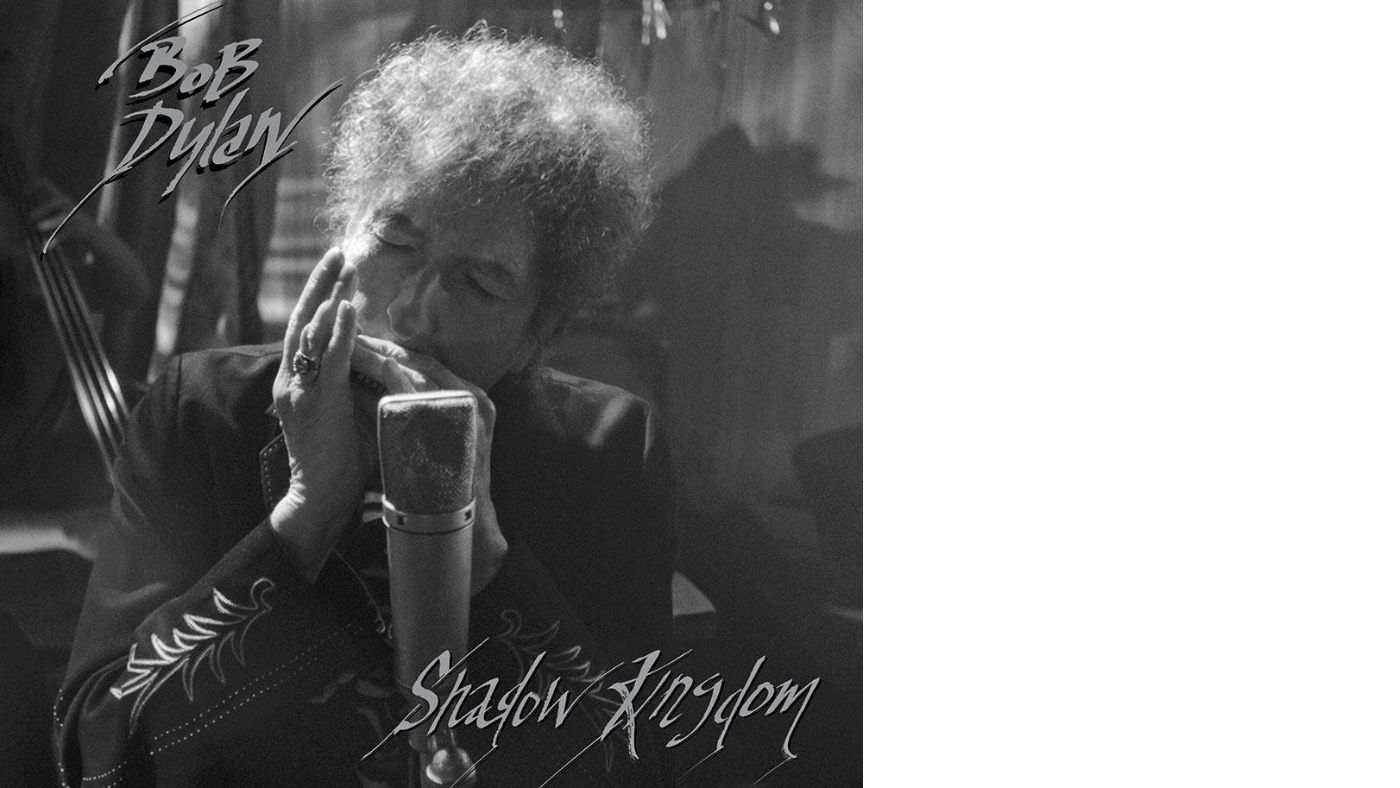
Two years ago, with his “Never Ending Tour” paused by the pandemic, Bob Dylan recorded some favourite songs from his back catalogue, and shared them – for one week – as a streamed concert. Now they’ve been given a “long overdue” release as an album, said Neil McCormick in The Daily Telegraph – and “what an absolute joy it is”. “Shadow Kingdom”, which is skewed towards the 1960s, but also features a handful of songs from the 1970s and 1980s, is the sound of a master revisiting “cherished texts and discovering new meanings alive in them”. In concert, Dylan’s “improvisational spontaneity” makes him the “opposite of an oldies act”, said Michaelangelo Matos in Rolling Stone. That constant, questing experimentation is given free rein here, as he “brilliantly reinvents” some of his best-known songs. On “Tombstone Blues”, for example, the giddy pace is slowed to an irresistible “wry crawl”. The recording “stands totally on its own, and so does the album it’s on”; it’s a “triumph”. Columbia; £12
Michael Spyres: Contra-Tenor (Il Pomo d'Oro, cond. Francesco Corti)
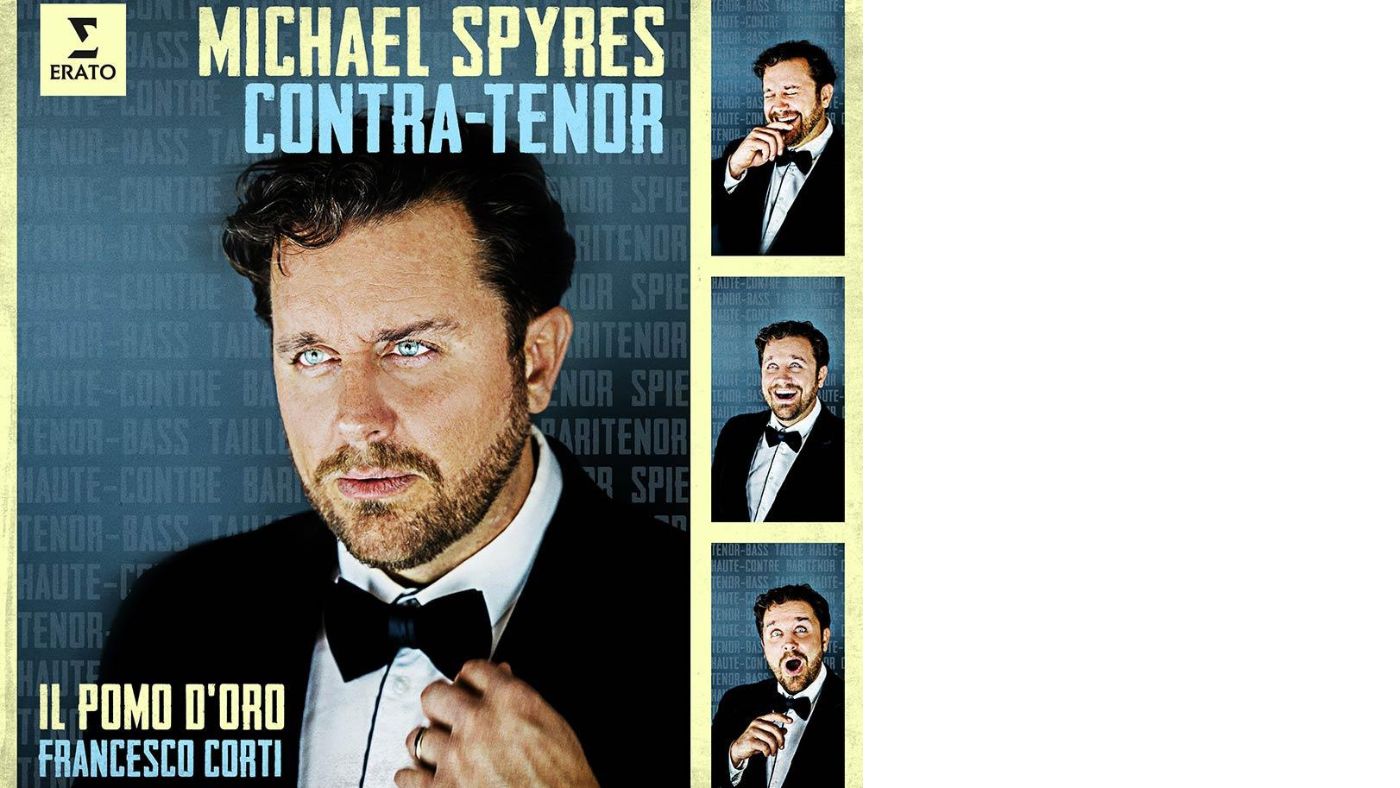
Michael Spyres’s “Baritenor”, a collection of arias of all shapes and sizes, was our classical record of the year in 2021, said Dan Cairns in The Sunday Times. With his “revelatory and remarkable” new album, the American opera star has struck gold once again. “Contra-Tenor” is a veritable “banquet of baroque staples and rarities”, from Lully, Handel, Mozart, Vivaldi and Gluck, among others, which shows off his “extraordinary range and agility” to glorious effect. At times, his singing is “literally breathtaking” – so breakneck are his runs, so “compelling his ease through repeated passages of hurtling, octave-straddling coloratura”. With its focus on the 18th century, “Contra-Tenor” is like a prequel to the earlier collection – and it is “just as spectacular, if not more so”, said Tim Ashley in Gramophone. There are “jaw-dropping” show-stoppers – such as Cosroe’s aria from Lattila’s “Siroe”, which “rears and plunges across well over two-and-a-half octaves”.But everything is “beautifully characterised”. Warner Classics/Erato; £14
Noel Gallagher's High Flying Birds: Council Skies
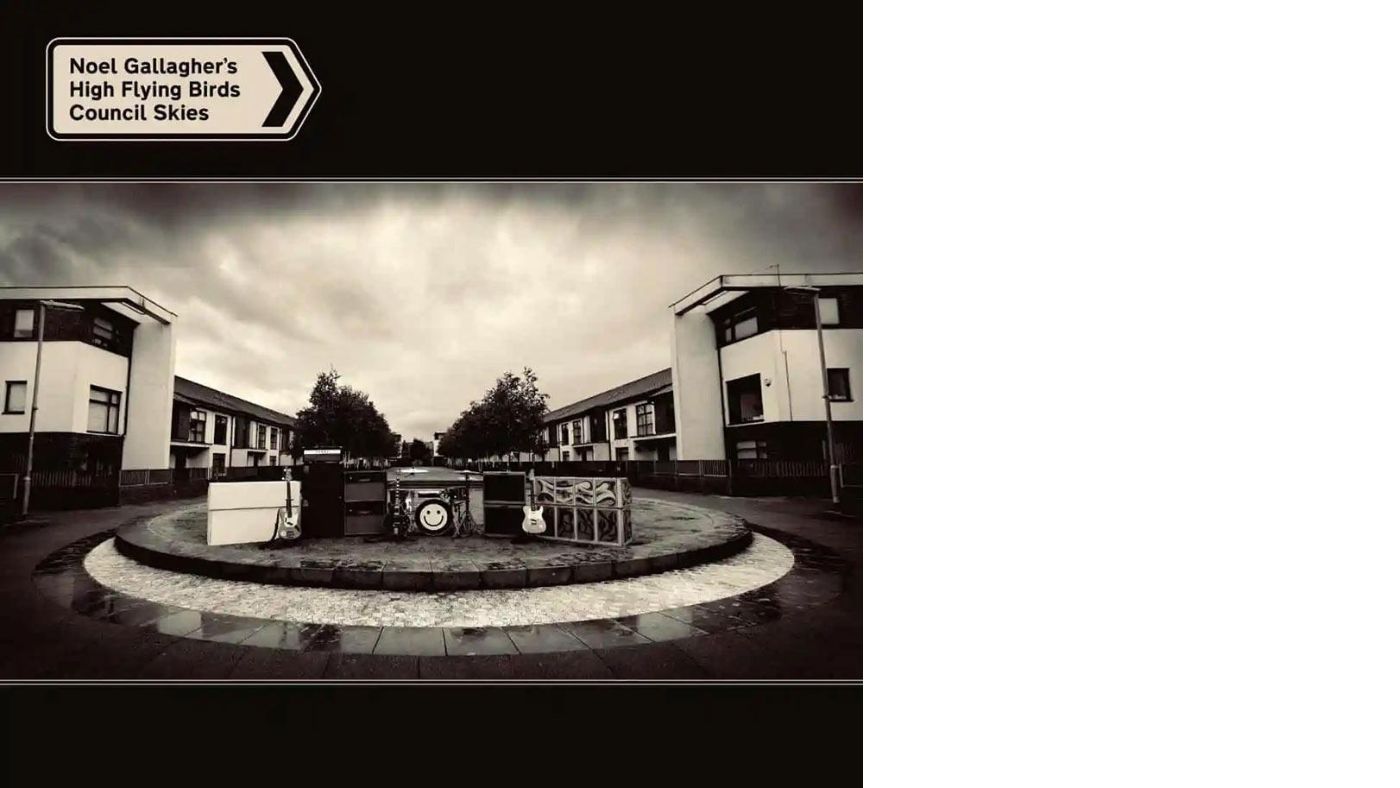
Noel Gallagher’s superb fourth album with his High Flying Birds is his most “Oasis-like yet”, said Will Hodgkinson in The Times. “Easy Now” has the “kind of rousing, melodic swell that made ‘Don’t Look Back in Anger’ such a standard”; “Dead to the World” is a beautiful, uncertain lament. There is a “sense of regret” on the album, not a quality usually associated with Gallagher; but “hope, too, albeit of a tainted sort. “We’re Gonna Get There in the End” offers a stoic, age-weathered retort to the unruliness and defiance that made the young Oasis so appealing when they started out.” With signs that he and Liam want a reunion, the album is a timely reminder of how Oasis became “the biggest band of the 1990s”. This “mature and melodic” album finds Gallagher “relaxing into his knack for big, bittersweet tunes”, said Helen Brown in The Independent. The title track is “pure summer, swung with breezy, bell-bottomed, slightly bossa nova-ed percussion”. And the whole thing is “guaranteed to make the old fans feel right at home”. Sour Mash; £11
Paul Simon: Seven Psalms
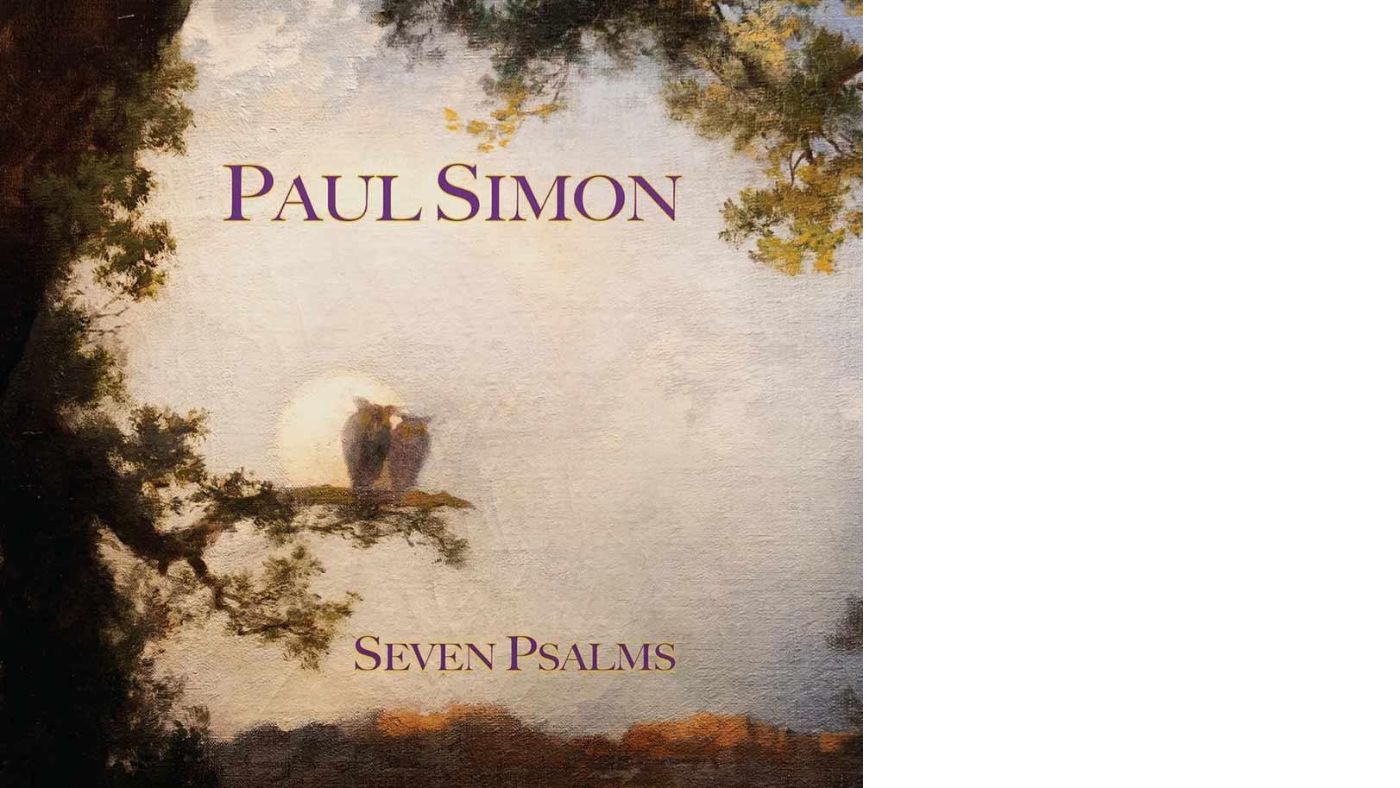
Paul Simon has produced a “gem”, said Ludovic Hunter-Tilney in the FT. A glorious 33-minute-long work consisting of seven interlinked pieces, it is the 81-year-old singer-songwriter’s first new material since 2016 – and it finds him “contemplating death and testing the possibilities of faith”. Graceful music “bridges mysticism and melodicism. Acoustic guitar chords ripen and linger, like time unspooling. Gongs and bells shimmer, a mind-expanding effect.” Simon sings “clearly but quietly”, variously imagining his Lord as “pantheistic, charitable and angry”. Agnosticism surfaces later on: “I have my reasons to doubt,” he sings. “Two billion heartbeats and out.” Simon announced his retirement from performing in 2018, said Kitty Empire in The Observer. So “Seven Psalms” arrives as “both a surprise and a revelation”. Based on voice and guitar, with “subtly dramatic instrumentation adding texture”, it is “less a record than a dream state designed to wash over the listener in one sitting”. The final song, “Wait”, on which Simon ponders his own mortality, is a “beautiful gut punch”. Sony; £12
Schreker: Der ferne Klang (Orchestral Works & Songs)
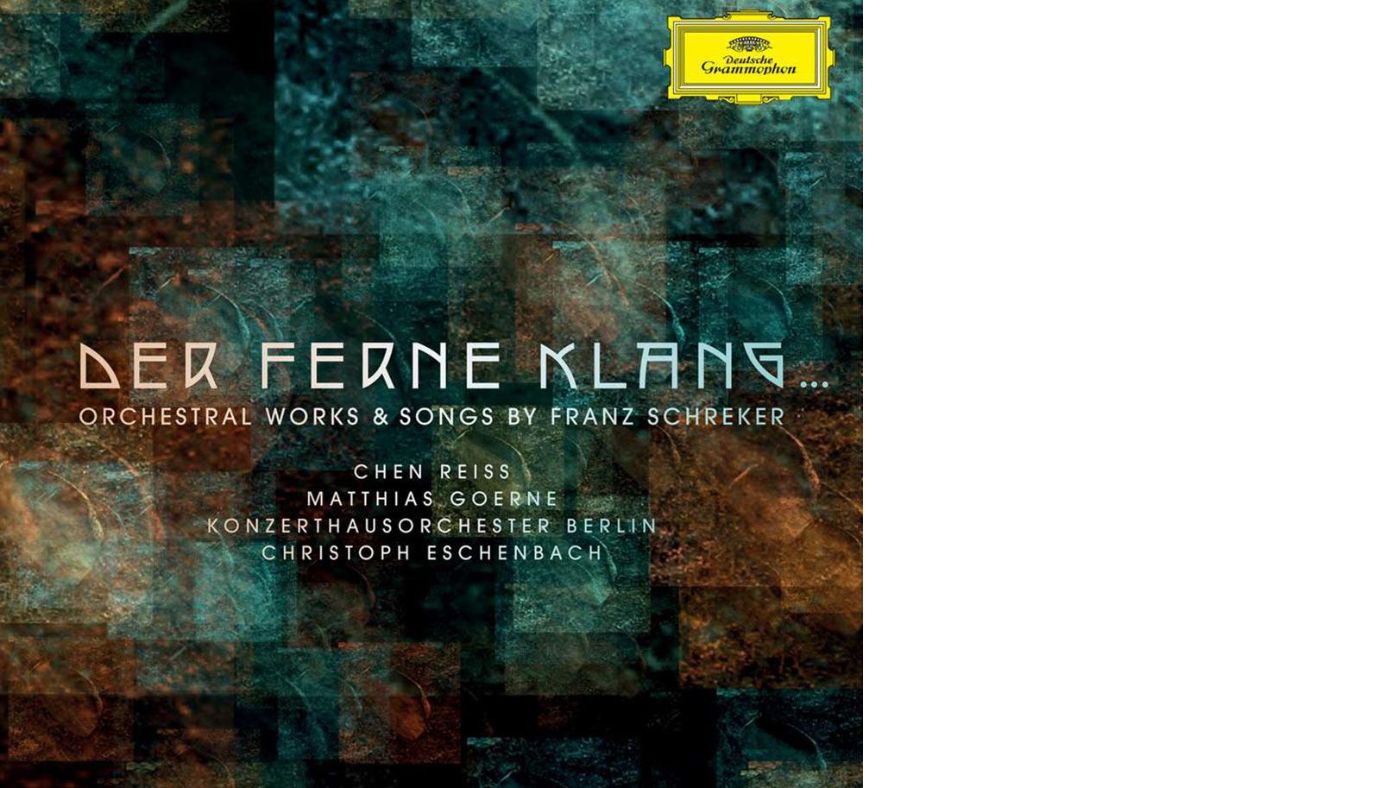
There’s something about the “iridescent chromatic spell” cast by the early 20th century Austrian composer Franz Schreker that “envelops you and lifts the spirits”, said Geoff Brown in The Times. This splendid 2-disc set, which includes a wide range of music encompassing the full extent of his career, is a “voluptuous” delight that left me “giddy” with pleasure. The “Nachtstück” (from the titular opera “Der ferne Klang”) kicks things off, its “swelling climaxes and twinkling harp and celesta” performed with “loving care”. Another highlight is the 1917 “Chamber Symphony”, a work “whose beauties invite us to curl up in ecstasy”. Schreker’s operas once rivalled those of Richard Strauss in popularity in the German-speaking world, said Christian Hoskins in Gramophone. This “excellent” collection is a welcome reminder of why that was. The performance of the “Romantic Suite” is the “finest I’ve heard”. And throughout, the playing of the Berlin Konzerthaus Orchestra under conductor Christoph Eschenbach is “both meticulously prepared and wonderfully idiomatic”. Deutsche Grammophon; £22
Foo Fighters: But Here We Are
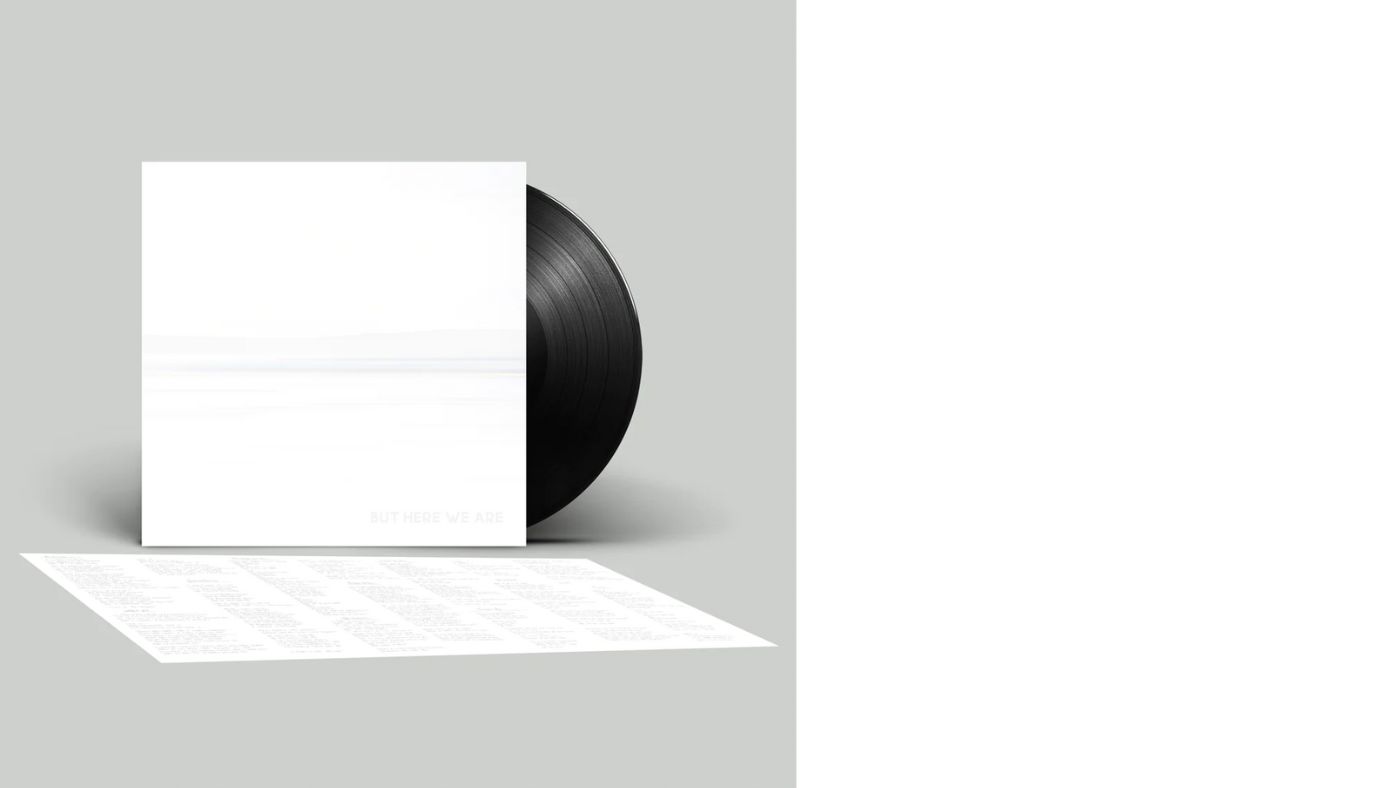
Foo Fighters’ superb new album marks their first return to the recording studio since the death of their drummer, Taylor Hawkins, aged 50, last year – and that of frontman Dave Grohl’s mother, Virginia, a few months later. It’s the US rockers’ most “succinct and intense” collection to date, said Neil McCormick in The Daily Telegraph, and unsurprisingly, “loss and grief” are at its core. Yet rarely can the remembrance of loved ones have sounded quite so “uproarious”. “But Here We Are” is a triumph: “imbued with a hard-rocking spirit that pushes right through bewilderment and sadness until it comes out the other side, defiantly alive”. It’s almost uplifting. The album is “messy, gut-wrenching, ambitious and gorgeous”, said Ali Shutler on NME. There is heartbreak. The album is a stark, painful exploration of loss; but it is also a “beautiful, noisy celebration of brotherhood” and of family (it’s notable that Grohl’s 17-year-old daughter, Violet, features as a backing vocalist). Above all, it’s a heartening “reminder of the healing, unifying power of music”. Roswell/RCA; £14
Fantasie: Seven Composers, Seven Keyboards
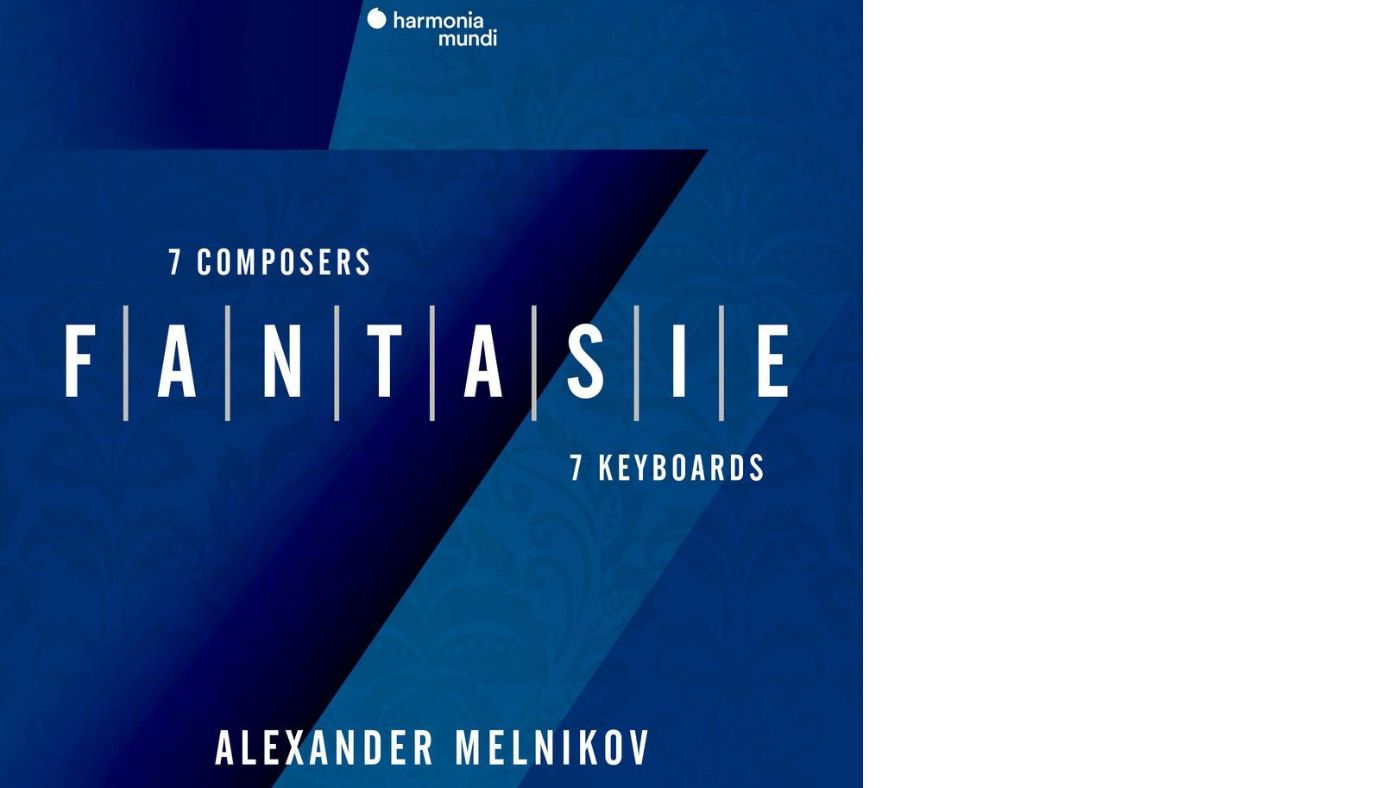
On this “fascinating” album, the Russian virtuoso Alexander Melnikov performs seven keyboard fantasies in chronological order, and on instruments appropriate to the era in which they were written, said Gramophone. We get, for instance, Bach’s “Chromatic Fantasia and Fugue in D minor, BWV 903”, on a harpsichord, and Schnittke’s “Improvisation and Fugue” on a modern Steinway, as well as “Busoni on a Bechstein, Mozart on a fortepiano and Chopin on an Érard”. It’s a brilliant idea, superbly executed, said Ivan Hewett in The Daily Telegraph. One of the instruments was new to me: the “tangent piano”, built in 1790, on which Melnikov plays the “alternately lamenting” and restless “Fantasia” by Bach’s son Carl Philipp Emanuel. But this “wonderful” album is not just for those “nerdy” about the piano. The “combination of seven composers at their most wild and free, Melnikov’s artistry, and the immersion in seven distinct sound worlds” makes it “the most engrossing listening experience to have come my way in months”. Harmonia Mundi; £14
The Lemon Twigs: Everything Harmony
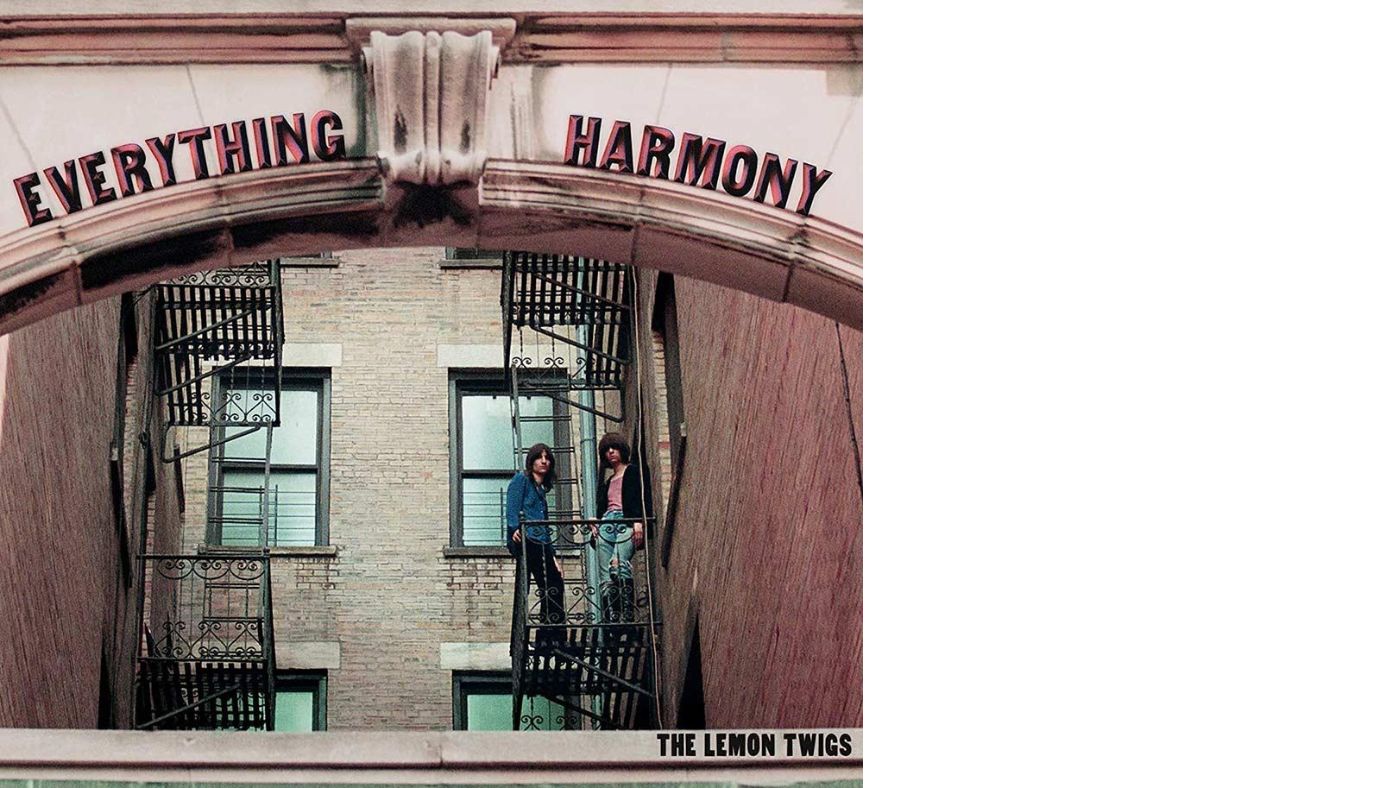
The Lemon Twigs (the American brothers Brian and Michael D’Addario) “have never mined the past more effectively” than on this, their gorgeous fourth album, said Ben Beaumont-Thomas in The Guardian. The band’s late-1960s influences are so explicit – the Beach Boys, pre-disco Bee Gees, Byrds, Simon & Garfunkel, James Taylor – that they’ve sometimes seemed “dangerously close to mere cosplay”. But here, they have the “spectacularly good songs” necessary to pull it off. “Rarely has stark despair sounded so lovely.” The Lemon Twigs don’t just “lift from the past, but transmute what inspires them into something imaginative and new”, agreed Erica Campbell on NME. The album’s first single, “Corner of My Eye”, offers “dreamlike soundscapes backed with a vibraphone and nods to Brian Wilson’s melodic prowess”. On “In My Head” they show off their vocal range with “saccharine harmonising” that masks the song’s dark subject matter. But best of all is “What Happens To a Heart”, a cinematic ballad featuring a “Phil Spector-inspired wall of sound”. Captured Tracks; £12
Ed Sheeran: Subtract
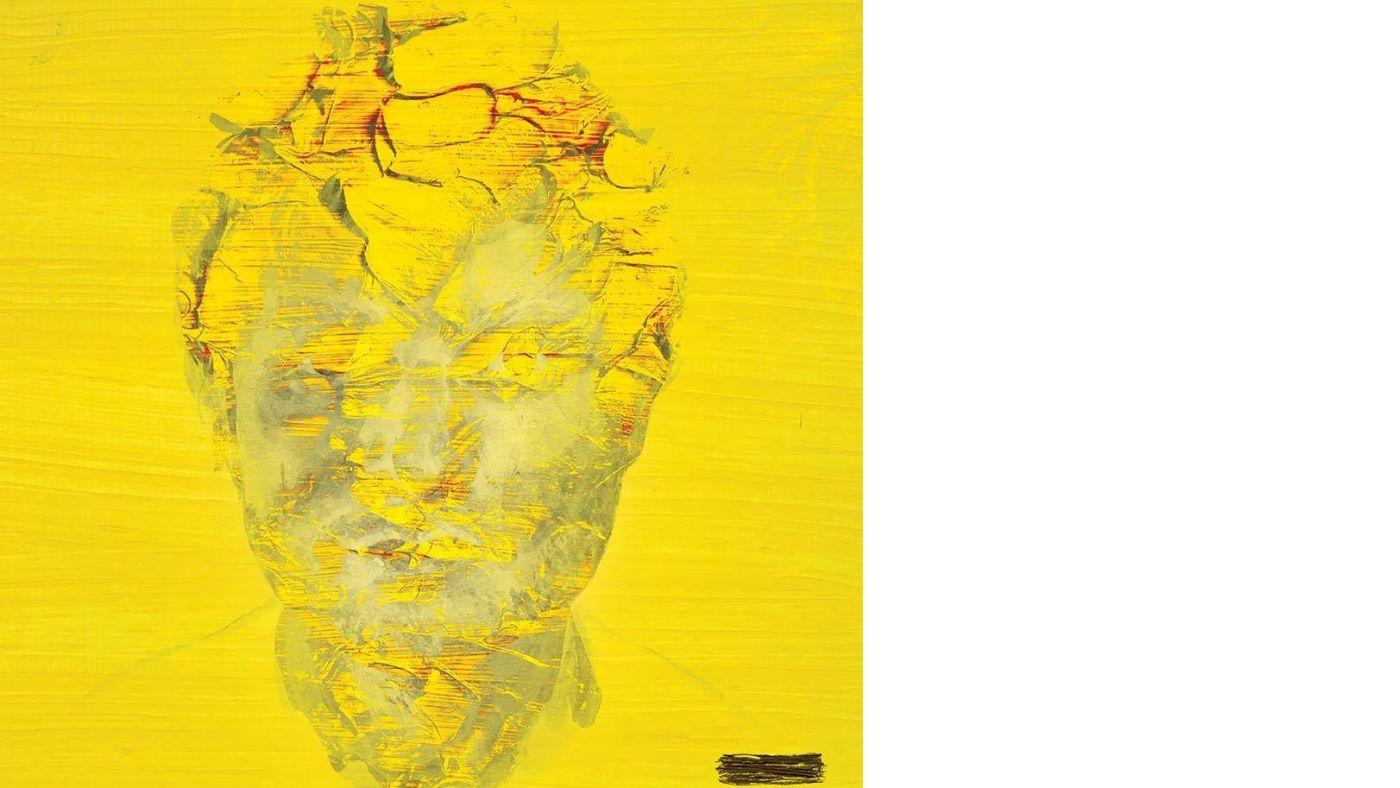
There is a fierce commercial drive lying beneath Ed Sheeran’s “boy next door” persona, and as a result his songs have mainly been designed “to be as ubiquitous as possible, with quality and meaning strictly secondary considerations”, said Will Hodgkinson in The Times. But not so on his new album, a more downbeat and personal collection than we’ve seen before. The Suffolk superstar has had a tough couple of years, during which his close friend and musical collaborator Jamal Edwards died of a heart attack aged only 31; and his wife was diagnosed with cancer while pregnant with their second child. There’s a new and deeper sense of “lived experience soaked into the songs”; Sheeran “really does seem to be working through his emotional tumult in musical form”. “Subtract” is “easily his best album” yet – and unlike anything he’s done before, said Alexis Petridis in The Guardian, which makes it an interesting gamble. This is “the first Ed Sheeran album since his debut for which you can’t confidently predict eye-watering commercial success”. Asylum/Atlantic; £11
Everything But The Girl: Fuse
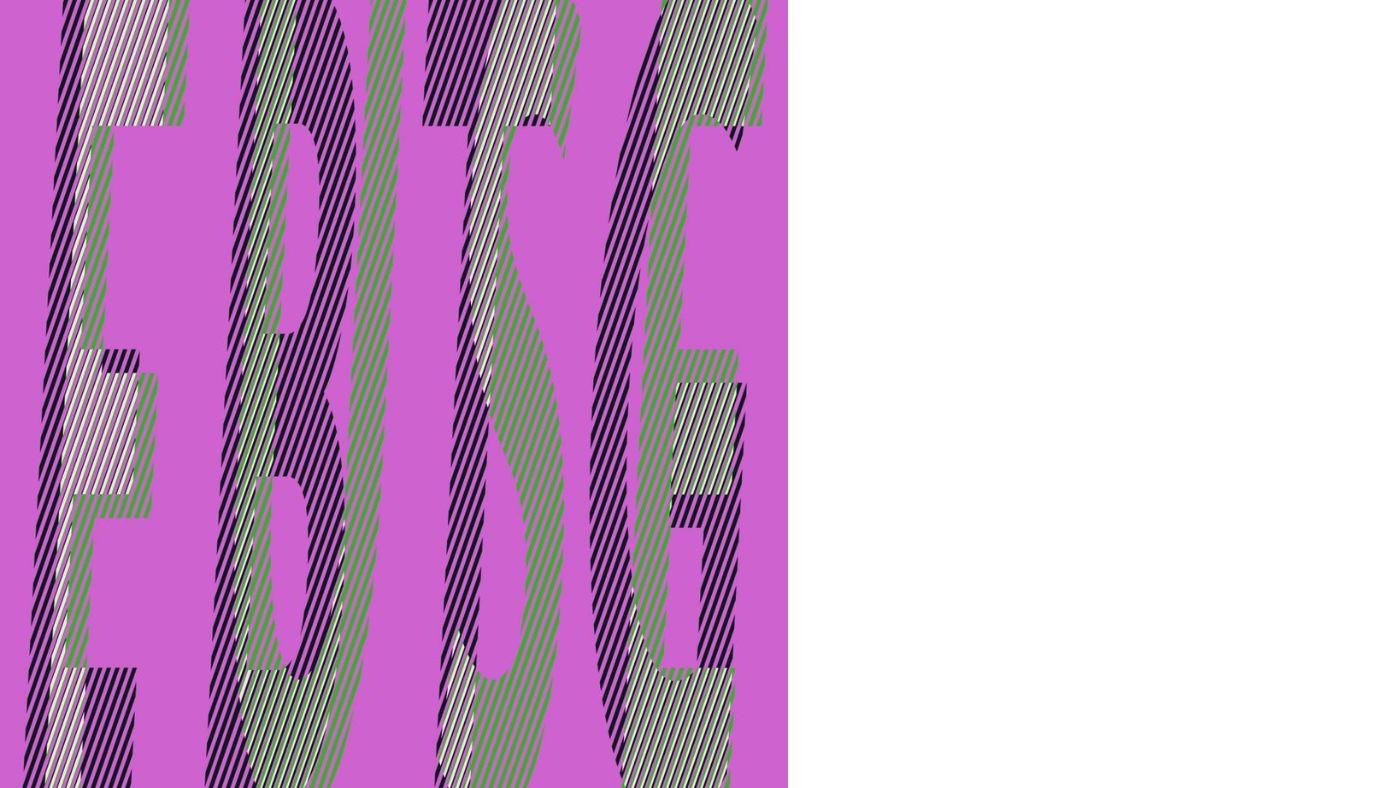
Whether they were making “jazzy café society pop” in the early 1980s or electronic dance music in the 1990s, Everything But The Girl “always seemed like sensible grown-ups, concerned with adult problems”, said Will Hodgkinson in The Times. So the fact that Ben Watt and Tracey Thorn have got “the old band together” in late middle age, 24 years since their last album – after two solo careers, and three kids together – “seems entirely natural”; and it feels as if it was no more effortful than a chat over the breakfast table. It’s a “pleasure to have them back”. Their comeback album is a triumph of elegant electronica, said Helen Brown in The Independent – “all vaulting arcs of yearning melody and glimmers of stained glass that dance upwards, to the familiar urban spire of Thorn’s beautiful, hangdog voice”. Highlights include No One Knows We’re Dancing (the album’s “biggest banger”), and Nothing Left To Lose, which marries “snappy, trappy, bass-squelching subterranean beats” to a rich soulful vocal. Don’t leave it so long next time. Virgin; £10
Mary Bevan: Visions illuminées
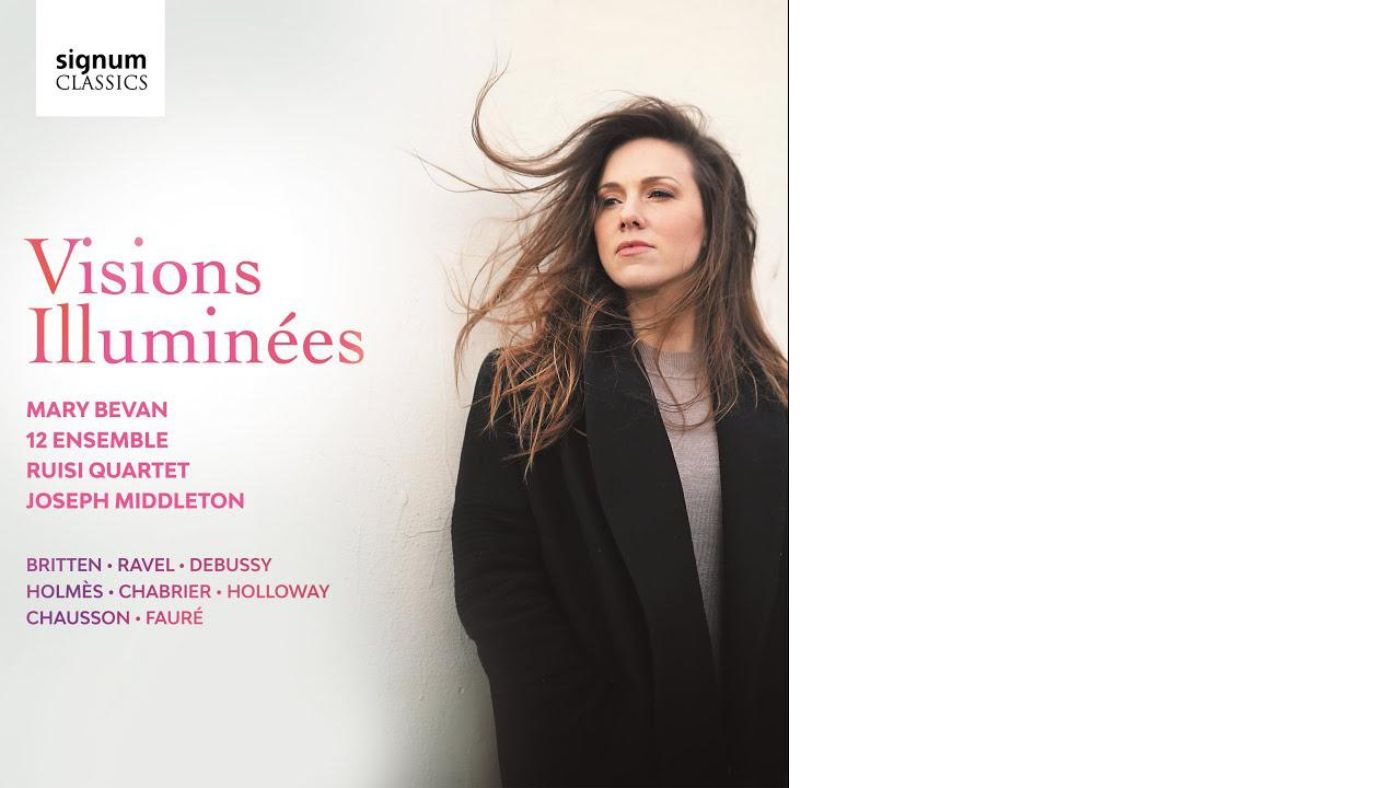
The French “mélodie or art-song of the late 19th and early 20th centuries is an immense treasury, the only serious rival to the German Lied”, said Ivan Hewett in The Daily Telegraph. On this terrific disc, the British soprano Mary Bevan provides a “wonderful introduction to the perfumed, erotically charged” genre. Bevan is a “real master of French song”, combining impeccable diction, even in the most rapid songs, with a “delicious tenderness and intimacy” in the slower ones. She is superbly supported by pianist Joseph Middleton, 12 Ensemble and the Ruisi Quartet. Bevan and Middleton, her regular piano partner, have delved into the French repertoire before, said Geoff Brown in The Times – “never, though, with the succulent instrumental colouring offered here”. A lone English composer kicks things off: Britten’s brilliant settings of Rimbaud’s poems, Les Illuminations, lead the way, followed by songs by Ravel, Chausson, Duparc and others. All are orchestrated either by their original composers or by Robin Holloway, a “master of the imaginative homage”. Signum Classics; £12
Jessie Ware: That! Feels Good!
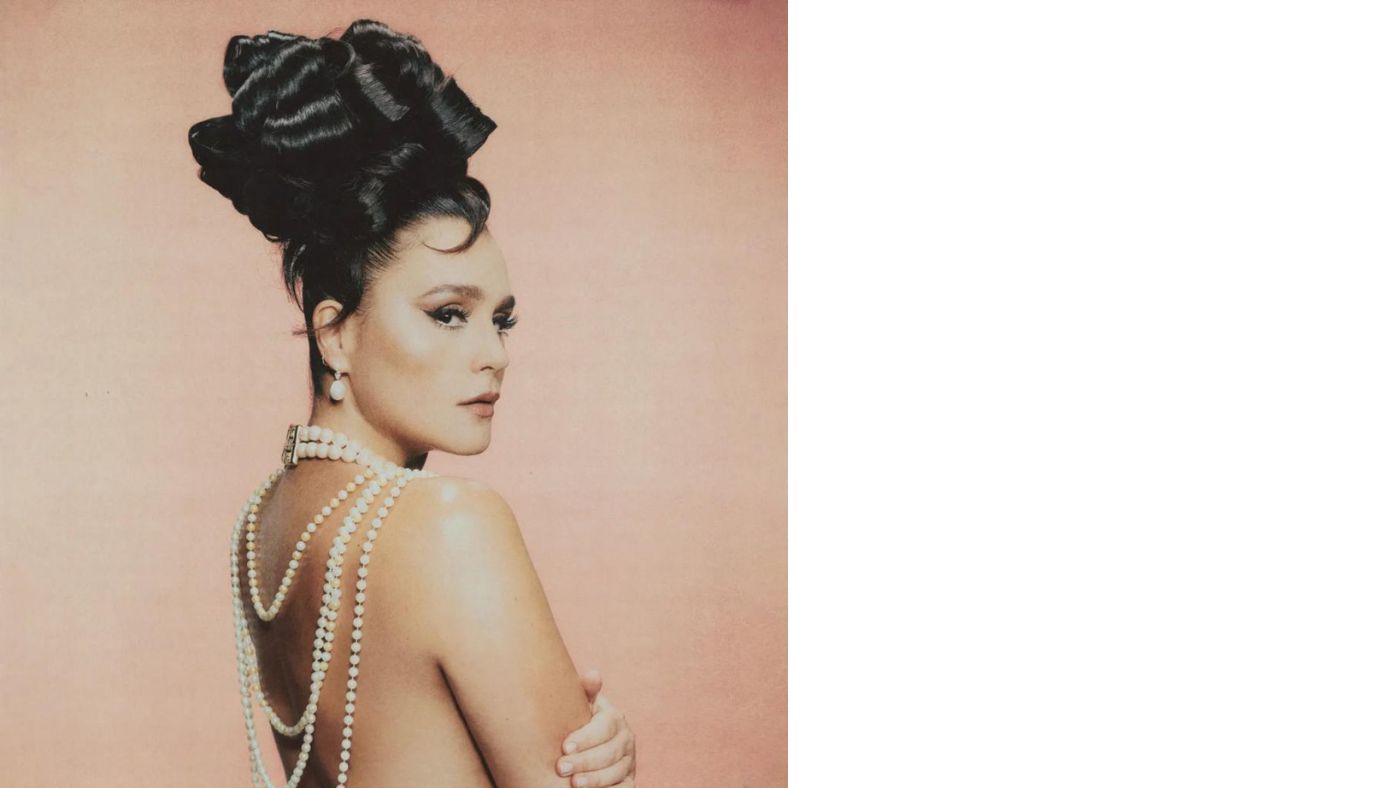
The lockdowns “kitchen-dance floor” year of 2020 saw the release of a cluster of superb pop-dance albums, including Dua Lipa’s Future Nostalgia and Kylie Minogue’s Disco, said Alexis Petridis in The Guardian. But the “classiest” of the lot was Jessie Ware’s What’s Your Pleasure?, which painted “dance-floor euphoria in coolly muted shades”. This follow-up demonstrates that it wasn’t a one-off. That! Feels Good! is similarly packed with bulletproof melodies, killer choruses and snappy lyrics. But it’s more “upfront” – with more “anthemic songs that require Ware, always a strong vocalist, to belt it out”. This album has all the “infectious” exuberance of its predecessor, said Ludovic Hunter-Tilney in the FT. But Ware has shifted the dial to a “more funk-and-soul-based sound”. The title track “nods to the dance-floor manifestos of Funkadelic, while Pearls echoes Chaka Khan’s majestic vocal attack”. And on Beautiful People, Ware embraces early 1980s-style rapping before launching into a bold series of disco chants. A “classy performer”; a fine collection. EMI; £11
Messiaen: Des canyons aux étoiles
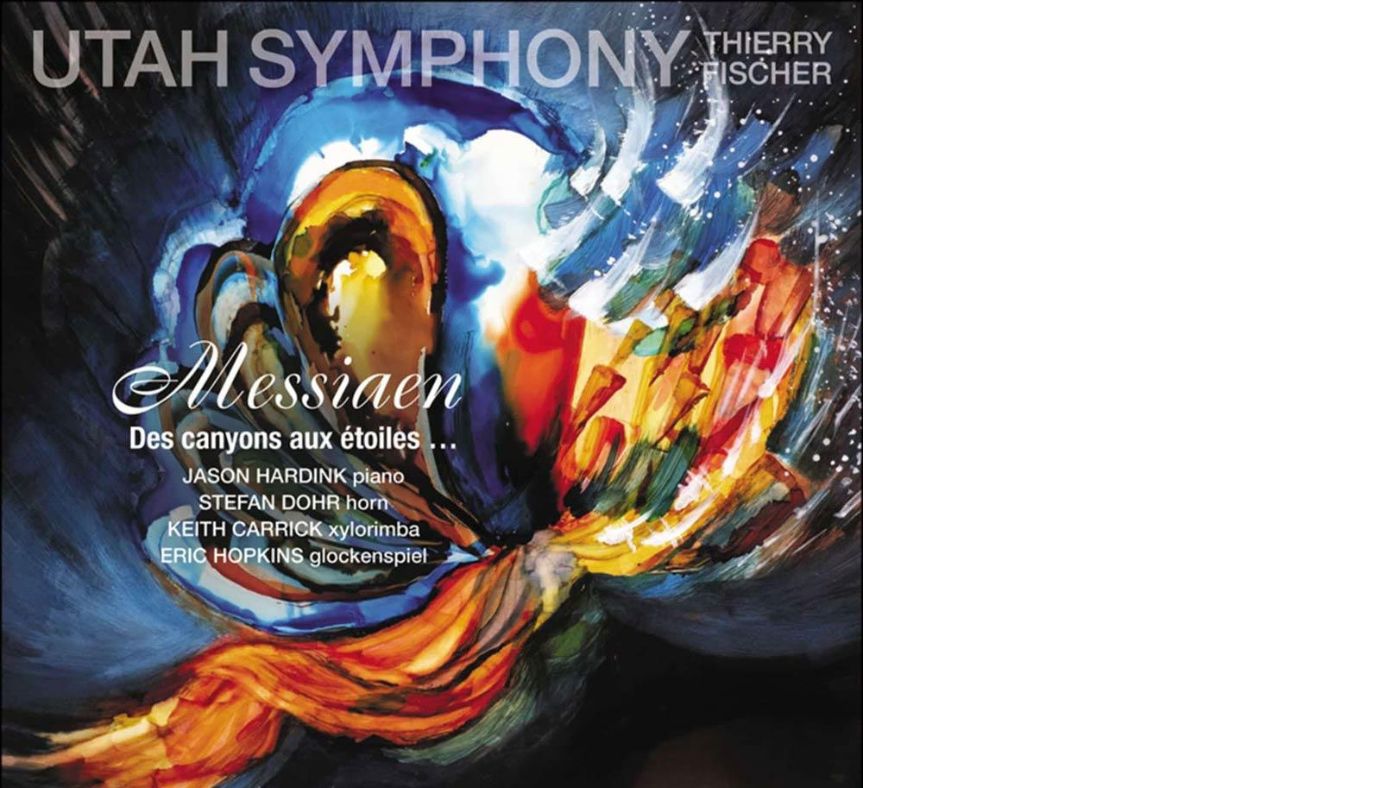
Olivier Messiaen’s Des canyons aux étoiles (From the canyons to the stars) is a “colourful epic” from the early 1970s, said Geoff Brown in The Times. This “awesome” and “sprawling” work was inspired by the composer’s visit to the US state of Utah, and his love of its rugged landscapes and birdsong. On this “bracingly vivid” recording from Hyperion, conductor Thierry Fischer and the excellent Utah Symphony orchestra prove an ideal match for the material. The wind machine solos might pall rather (Messiaen’s fault), but “every note dazzles from the soloists who really matter: the pianist Jason Hardink and the wonderful horn player Stefan Dohr”. Jason Hardink, the Utah Symphony’s principal pianist, “projects Messiaen’s piano writing as vividly and idiomatically as anyone could want”, agreed Andrew Clements in The Guardian. Stefan Dohr, the horn principal of the Berlin Philharmonic, is also “superb”. And Fischer ensures that their contributions fit perfectly into Messiaen’s “vast musical canvas”. This is a first-rate recording of an “epic score”. Hyperion; £10.50
Boygenius: The Record
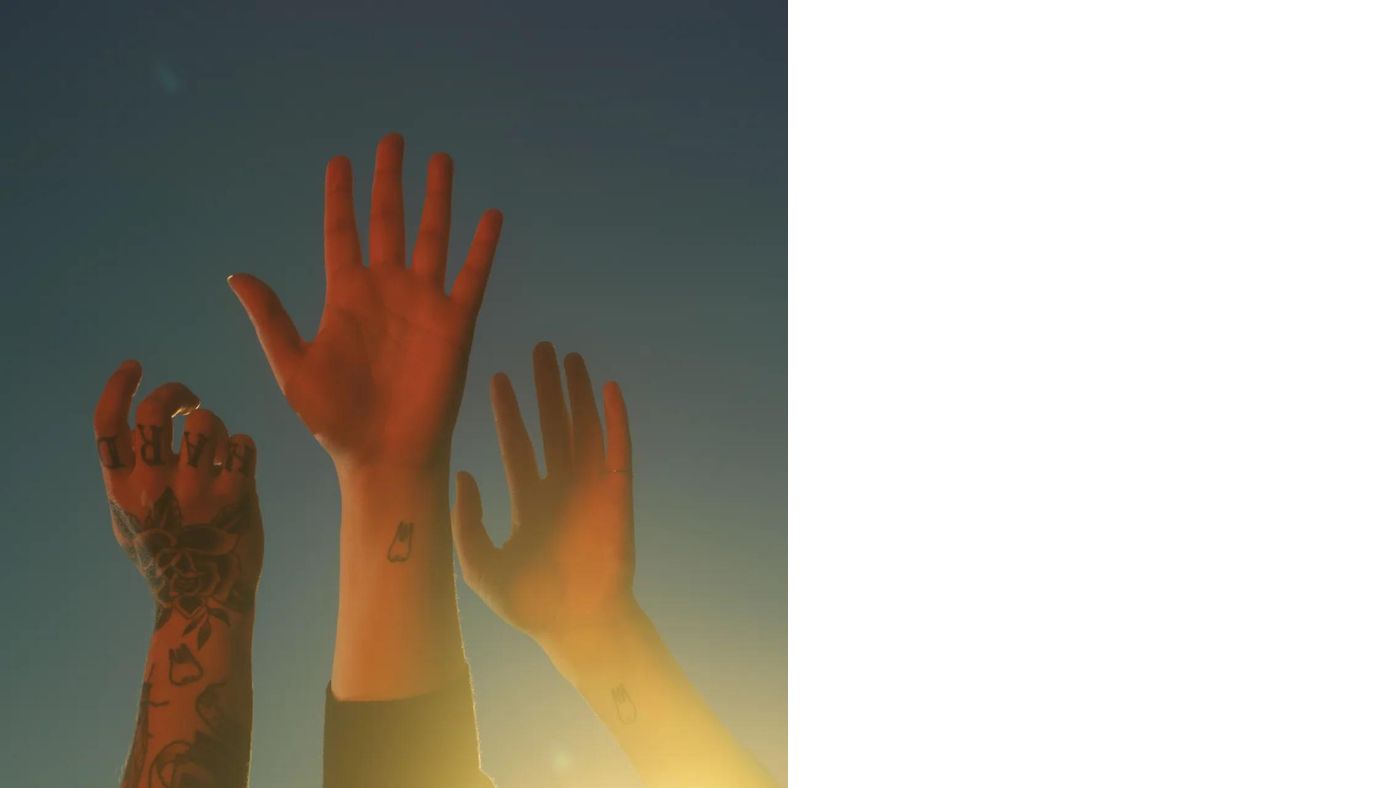
Julien Baker, Phoebe Bridgers and Lucy Dacus are “three of the most thoughtful, wry and quietly powerful indie-rock songwriters of the past decade”, said Tara Joshi in The Observer. Since 2018, the “formidable trio” have intermittently come together under the name Boygenius – and their first album as a supergroup is an “exquisite” triumph. On the “unassumingly titled” The Record, their music “blazes with feeling, and is unabashed about drolly skewering” the male ego. “When their strikingly pure vocals combine in folky, elegiac harmony, they are extraordinary.” Boygenius are like a modern version of Crosby, Stills and Nash, said Will Hodgkinson in The Times – “three talented songwriters coming together to harmonise on folky, intimate songs about environmental concerns, progressive politics, in-jokes and affairs of the heart”. Their sound mixes “fuzzy alternative rock” with CSN-style “winsome acoustic” stylings. It is, by turns, funny, charming and earnest – and firmly within the “lineage of crafted, old-fashioned songwriting”. Interscope; £12
Metallica: 72 Seasons

Metallica might be four decades into their illustrious career, with the founder members now edging into their 60s, but on their high-energy and “thrillingly cohesive” new album they sound “defiantly in their prime”, said Arwa Haider in the FT. Rather than mellowing with age, the Californian hard rockers have “fine-tuned their forcefulness”, and the “rollicking” thrash metal of 72 Seasons shows off their considerable musical prowess: co-founding drummer Lars Ulrich’s “meticulous breakneck beats, Rob Trujillo’s hefty bass grooves and Kirk Hammett’s fiercely eloquent guitar solos”. “Traumatic! Volcanic! Psychotic! Demonic! Hypnotic!” That’s the core rhyming scheme on the title track, said Helen Brown in The Independent. As ever, Metallica are “not going for subtlety”. Instead, the lyrics here offer a “turbocharged fusion of moody nostalgia with present paranoia”, while the band’s thrash metal remains “solidly compelling”. In short, 72 Seasons “may not see Metallica doing anything new – but it does find their old machine firing on all cylinders”. Blackened; £13
Carl Nielsen: Symphonies Nos. 2 and 6
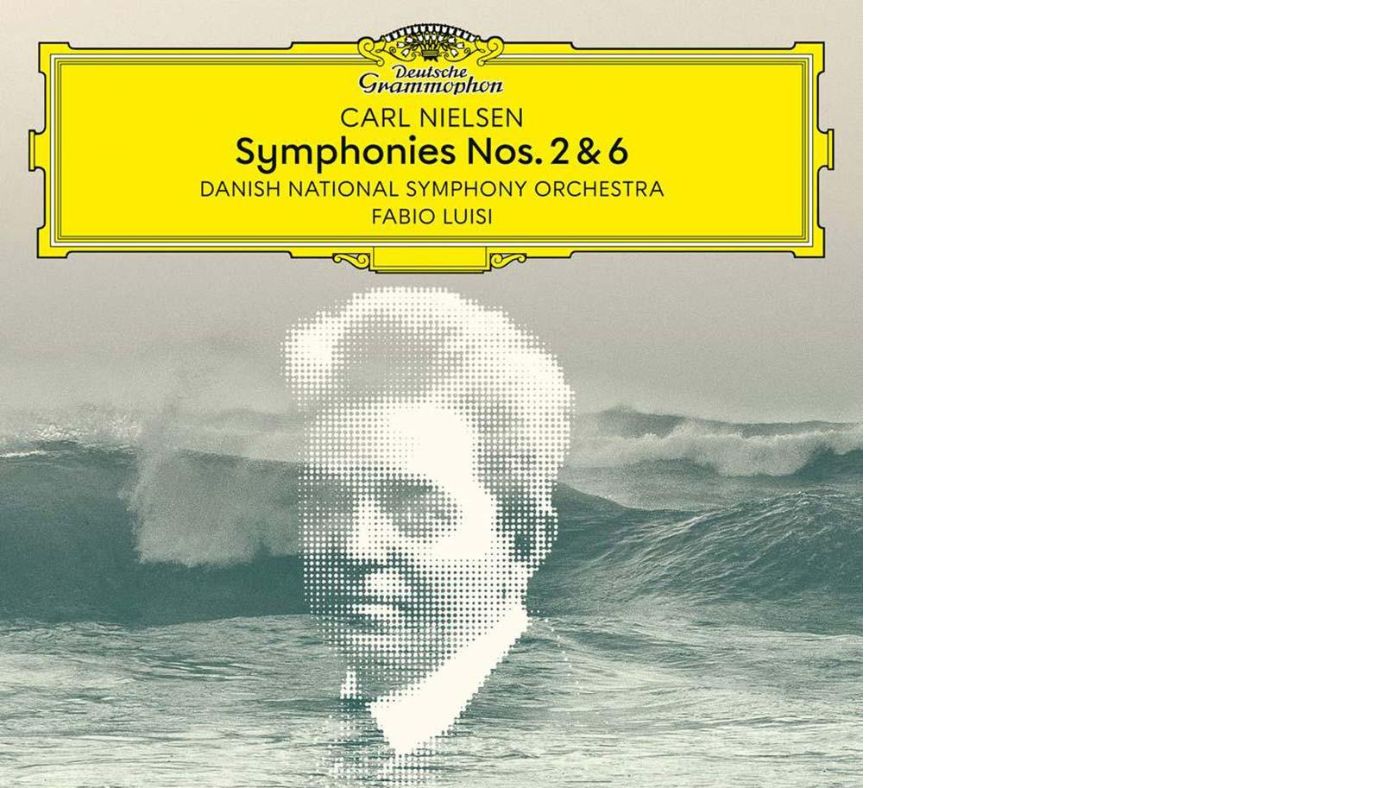
This final instalment of this “marvellous” cycle of the Carl Nielsen symphonies “does not disappoint”, said Edward Seckerson in Gramophone. “The Danish National Symphony Orchestra serve their national hero” with “pride and big-heartedness”, bringing a conviction to the music that feels “personal to the point of possessiveness”. And they are well aided by Fabio Luisi, the Italian at the helm, who seems “instinctively to know where the music goes” and how best to capture its essence. Indeed, in both the symphonies on this album, the “playing and the clarity of the recordings offer fresh revelations”, said Dan Cairns in The Sunday Times. Listening to it, you feel “as if you are discovering the Dane for the first time or being reminded anew of his significance”. Luisi and his orchestra are “skittish but precise” in the Sixth’s Humoreske, with its “martial drums, pocking wind and rasping, flatulent brass”, while in the Second’s shattering andante they are “majestic but nuanced”. The entire “magnificent” six-symphony cycle is being released as a three-CD set in late April. Deutsche Grammophon; £12
Lankum: False Lankum
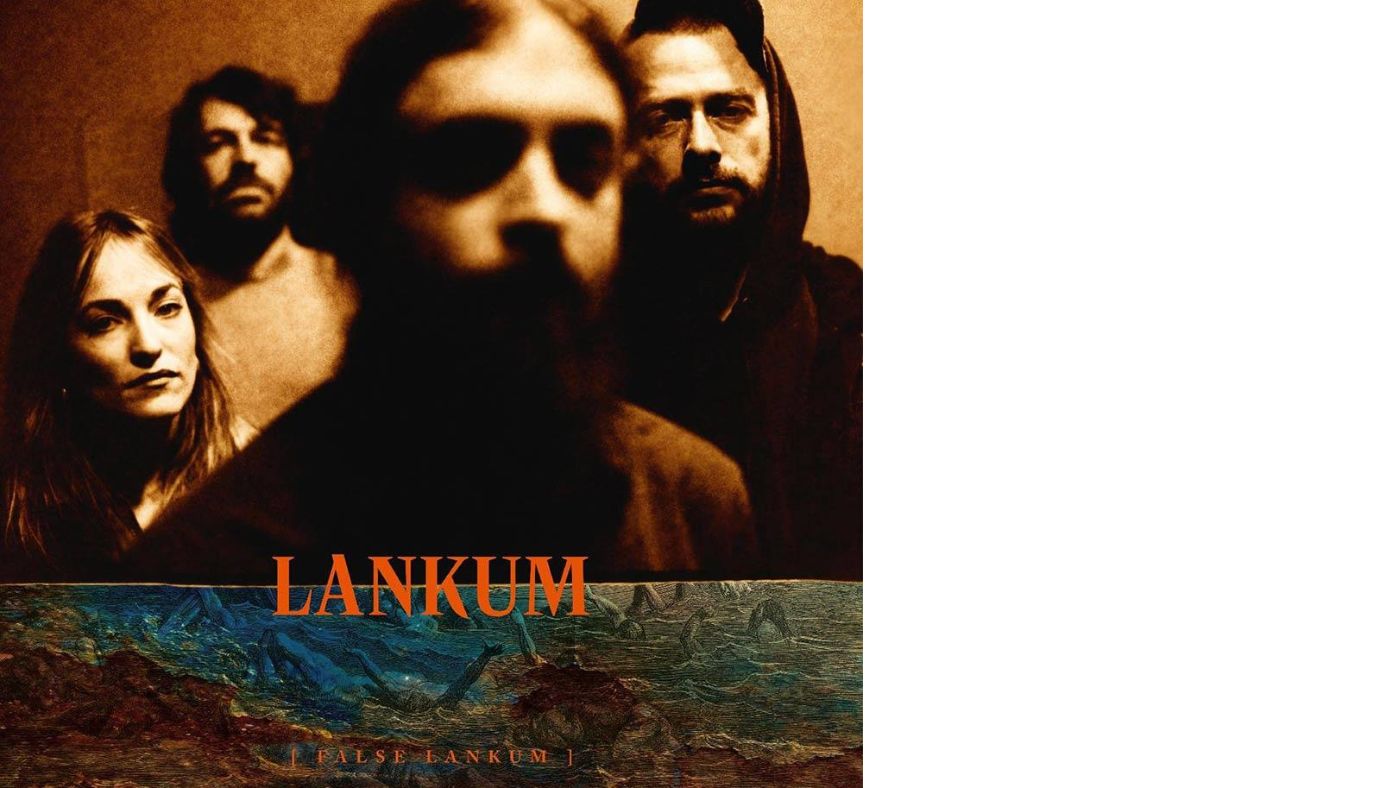
Lankum’s previous album, 2019’s The Livelong Day, married Irish folk with the “most desolate blues” to win the Choice Music Prize, Ireland’s equivalent of the Mercury Prize, said Ludovic Hunter-Tilney in the FT. Now the Dublin band are back with a similarly impressive record, which gives tales of bloodshed and betrayal a “tumultuous intensity reminiscent of Nick Cave and the Bad Seeds”. Yes, there is a “gothic intensity” here, said Jude Rogers in The Guardian – but also songs of “exquisite softness and deeply affecting harmony”. Lead singer Radie Peat is to my mind the “best folk singer of our times”: she sounds “both like an uncompromising everywoman and a mystical instrument of bellows and reeds – a magic she employs to spiritual effect on the 17th century ballad Newcastle”. The band alternately lulls the listener with “iridescent bliss”, then casts them ”into storms of shuddering sounds”. This is a bunch of radicals “reaching out to the mainstream – while giving off the thrilling sense that there is so much more to come”. Rough Trade; £11
Babymetal: The Other One
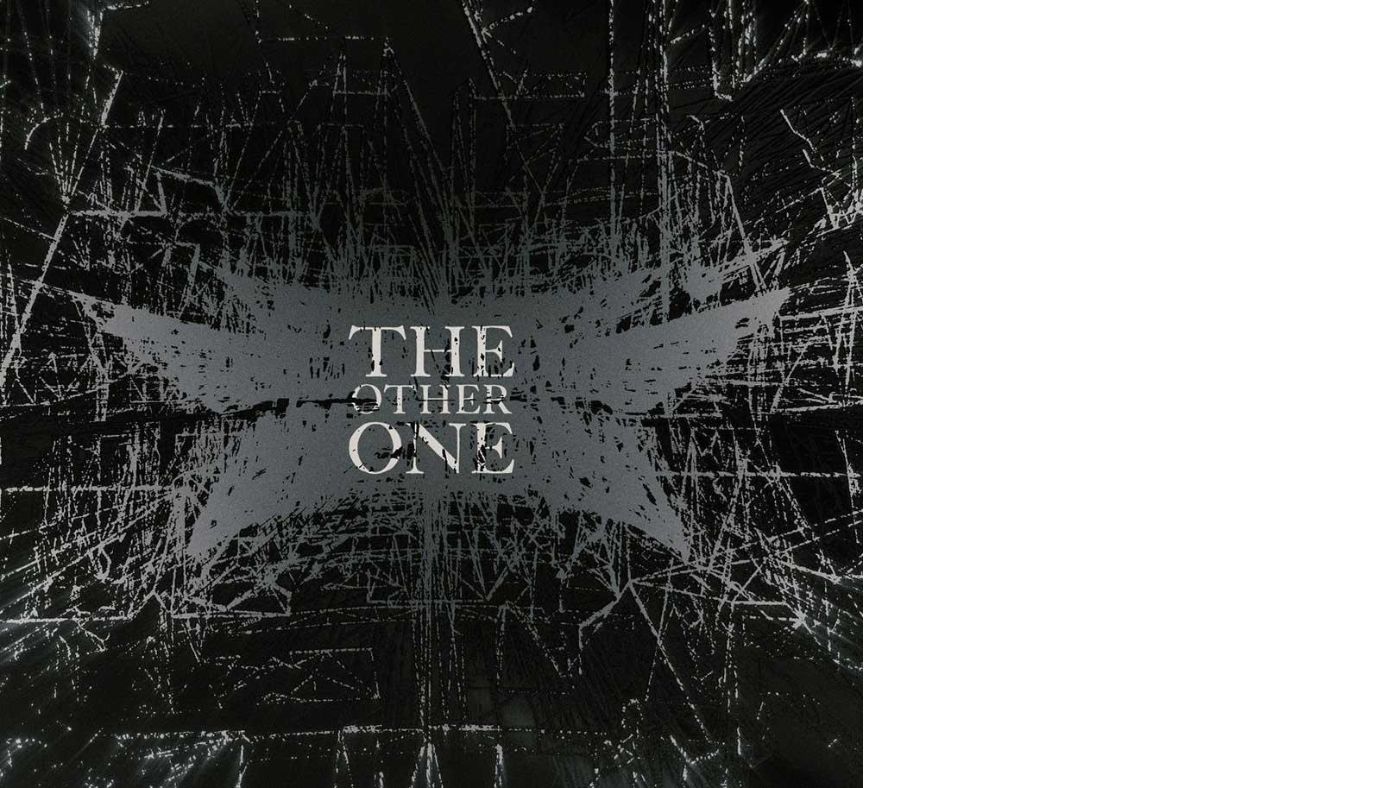
The Japanese band Babymetal started life in 2010 as a “manufactured combination of kawaii (cute) culture and pummelling metal onslaught”, said Will Hodgkinson in The Times. Their latest offering is a “concept album of sorts” about a parallel world (the “Metalverse”) that supposedly spawned the band, now made up of two women who go by the names Su-metal and Moametal. But you don’t need to know the backstory to “enjoy the magic of rock within”. This is ultra-fast thrash, complete with guitar solos that are “fiddly to the point of absurd” and “sort-of sweet, sort-of scary vocals”. Possibly the whole project is an arty joke – but it’s “exciting, brilliantly executed and great fun”. It’s “hard not to have fun” when every track feels like an “adventure”, agreed Emma Wilkes in Kerrang! Time Wave, for example, throws a Technicolour chorus and 1980s synthesised wizardry into the mix, while another track, Light and Darkness, “gleefully mashes together a metallic chug with a glittery pop refrain that could run away with the Eurovision title if Japan were ever to compete” in that contest. Cooking Vinyl; £11
Depeche Mode: Memento Mori
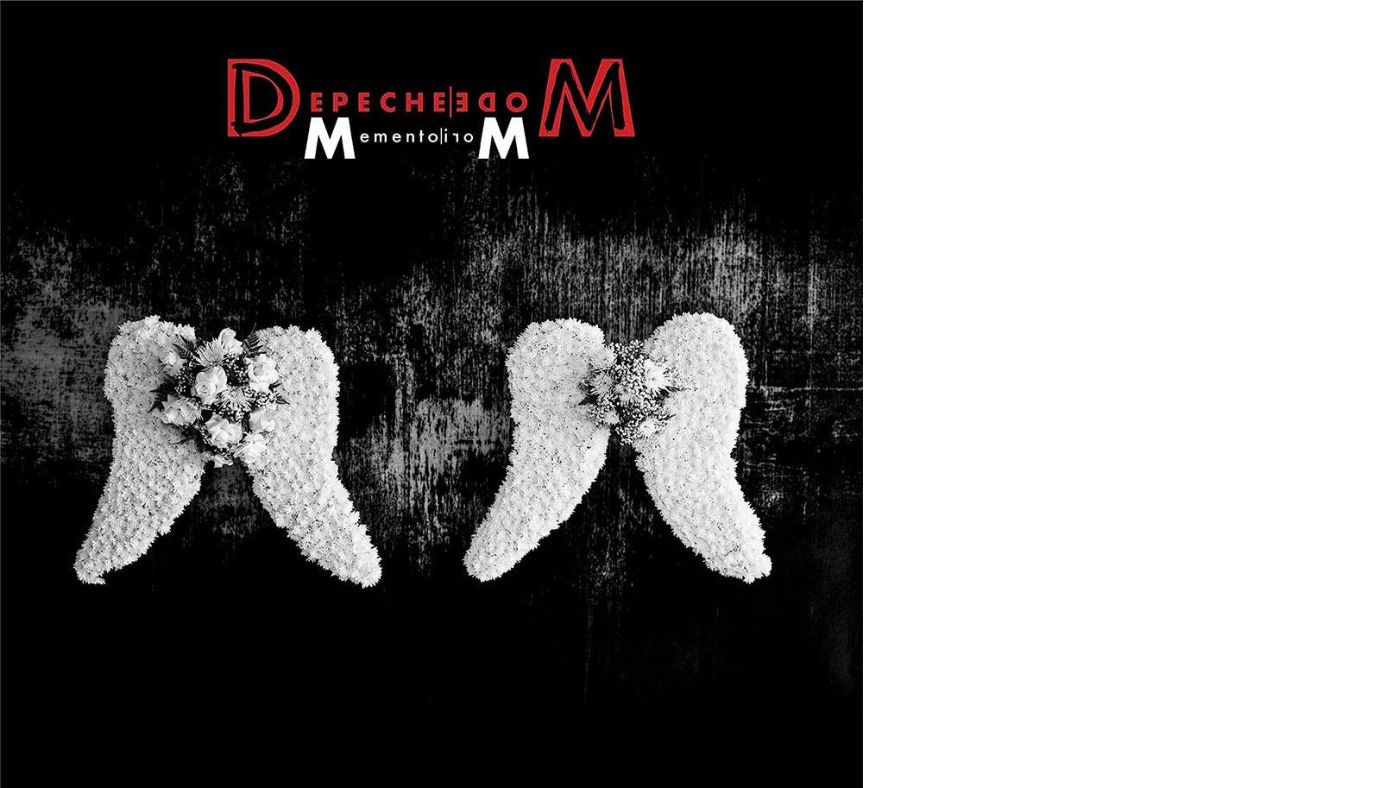
Depeche Mode’s 15th studio album is their first since founder member Andy Fletcher died suddenly last May, said Will Hodgkinson in The Times. Over the band’s turbulent but globally successful 43-year career, he was the calming presence who played the vital role of “peacemaker” between Dave Gahan’s “frontman ego” and Martin Gore’s “sensitive-artist control freakery”. Without him, it “looked like the world’s most dependable stadium-filling weirdos might finally fall apart”. But to the relief of fans, the pair managed to put aside their differences, and this album, Memento Mori, is everything you could want from Depeche Mode – intimate, personal, finely constructed, “elegant, catchy and dark”. “The grief on the record is deeply felt, but perhaps more striking is its sense of resolve,” said Roisin O’Connor in The Independent. Soul With Me is a “magnificent ode to ageing”, with hints of Frank Sinatra’s My Way. And when, on Ghosts Again, Gahan acknowledges that “time is fleeting”, he “doesn’t sound resentful; he sounds comforted”. Mute; £18
Compositrices: New Light on French Romantic Women Composers
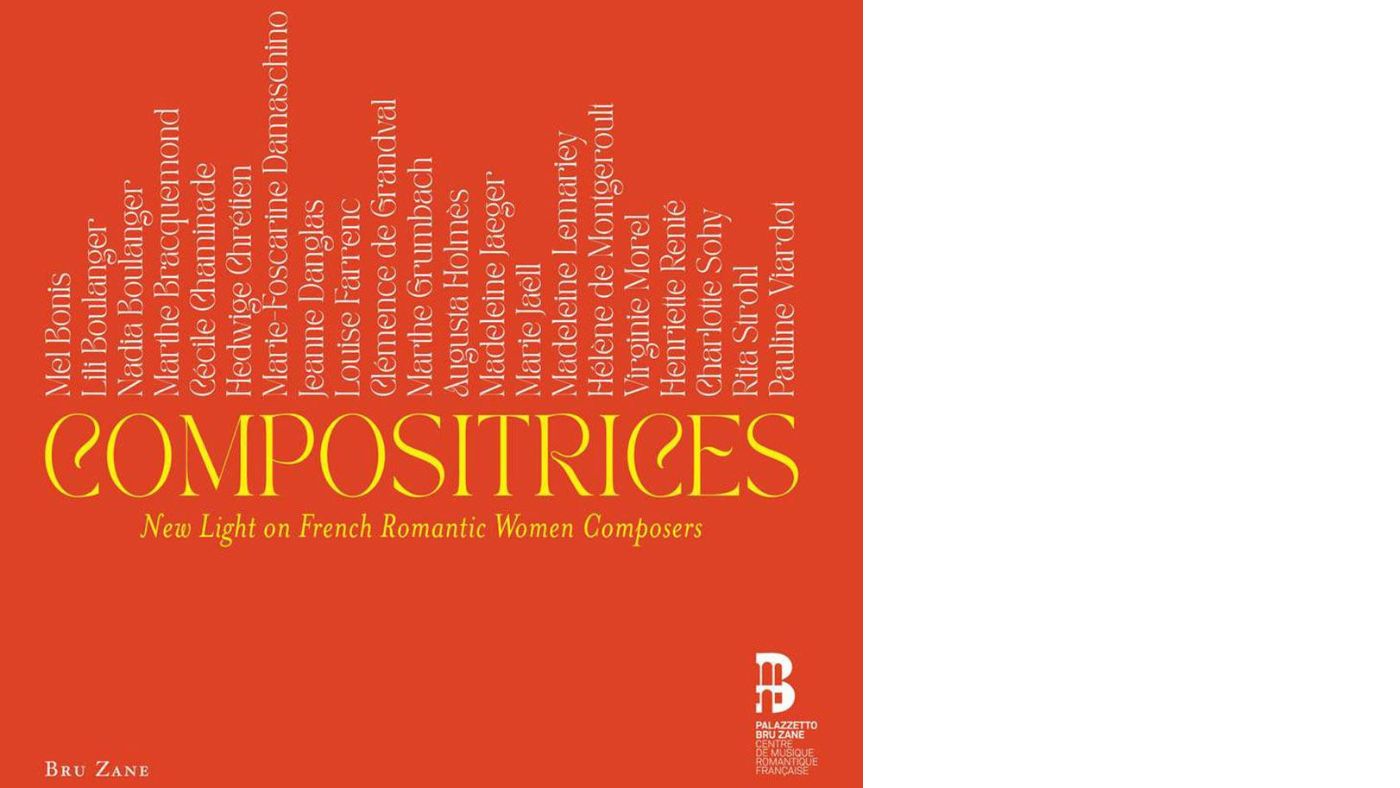
This “illuminating and beautifully” presented collection is a “treasure trove of the overlooked”, said Andrew Clements in The Guardian. Featuring works by 21 French composers – all women, born between 1764 and 1893 – it offers more than 160 pieces of “fascinating and sometimes revelatory” music. Much of the repertoire comprises chamber works, piano music and songs (the quality of the latter is uneven). But each disc includes at least one large-scale orchestral score. For me, the biggest discovery of all was the three-part Femmes de Légende series by Mel Bonis: “wonderfully crafted miniatures clearly indebted to Debussy, but at the same time distinctively individual”. The Bru Zane label has long championed “forgotten French romantic music, but here it has excelled itself”, said Richard Fairman in the FT. My highlights included a fine Piano Trio by Louise Farrenc, and a recital of “delicately sensuous melodies” by Augusta Holmès, Marthe Bracquemond, Madeleine Lemariey and others, exquisitely sung by tenor Cyrille Dubois. Bru Zane, eight CDs; £45
Lana Del Rey: Did You Know That There’s a Tunnel Under Ocean Blvd
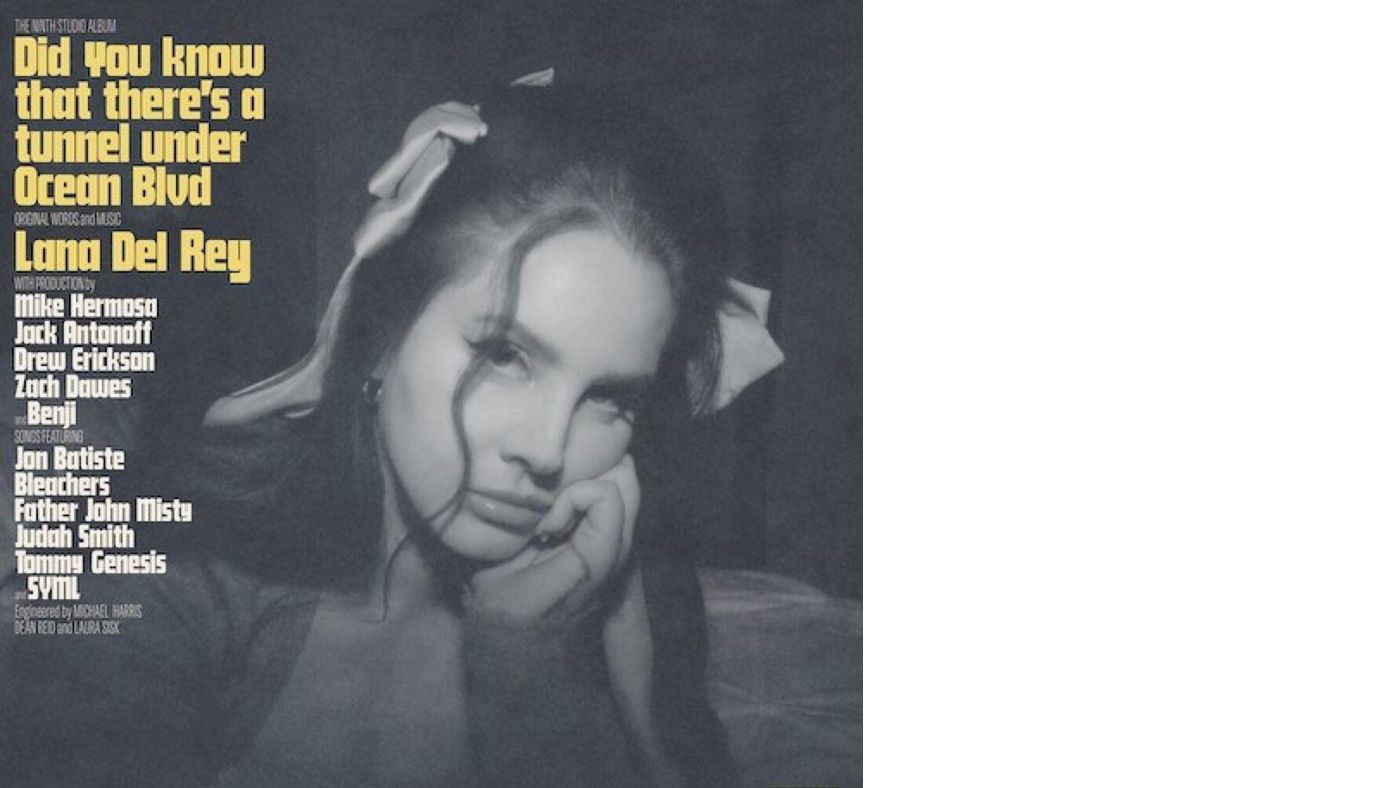
“Lana Del Rey deserves recognition for services to mystique,” said Ludovic Hunter-Tilney in the FT. Over the course of eight albums, the singer (otherwise known as Elizabeth Grant) has created an unknowable, seductive persona – and has “painstakingly assembled” an imaginary world offering multiple perspectives on US culture. But if all this has sometimes seemed “too knowing”, then on this “beautifully performed” ninth album she “strikes an authentic note”. Ocean Blvd follows its own “entrancing logic”, melding the real and the fantastical, the dreamlike and the everyday. Del Rey is a “modern icon” of art pop, said Rhian Daly on NME – and on this “masterful” (if overlong) collection she continues to “expand her artistry”. Thematically, the singer’s preoccupations here are family and legacy; memory and death. Musically, she marries the “soulful, classic, timeless sounds” and techniques of an old-style Hollywood starlet with “trap beats, speaker-wobbling bass and spoken word tracks edited with a sense of Warholian spirit”. It’s an intoxicating mix. Polydor; £12
Miley Cyrus: Endless Summer Vacation
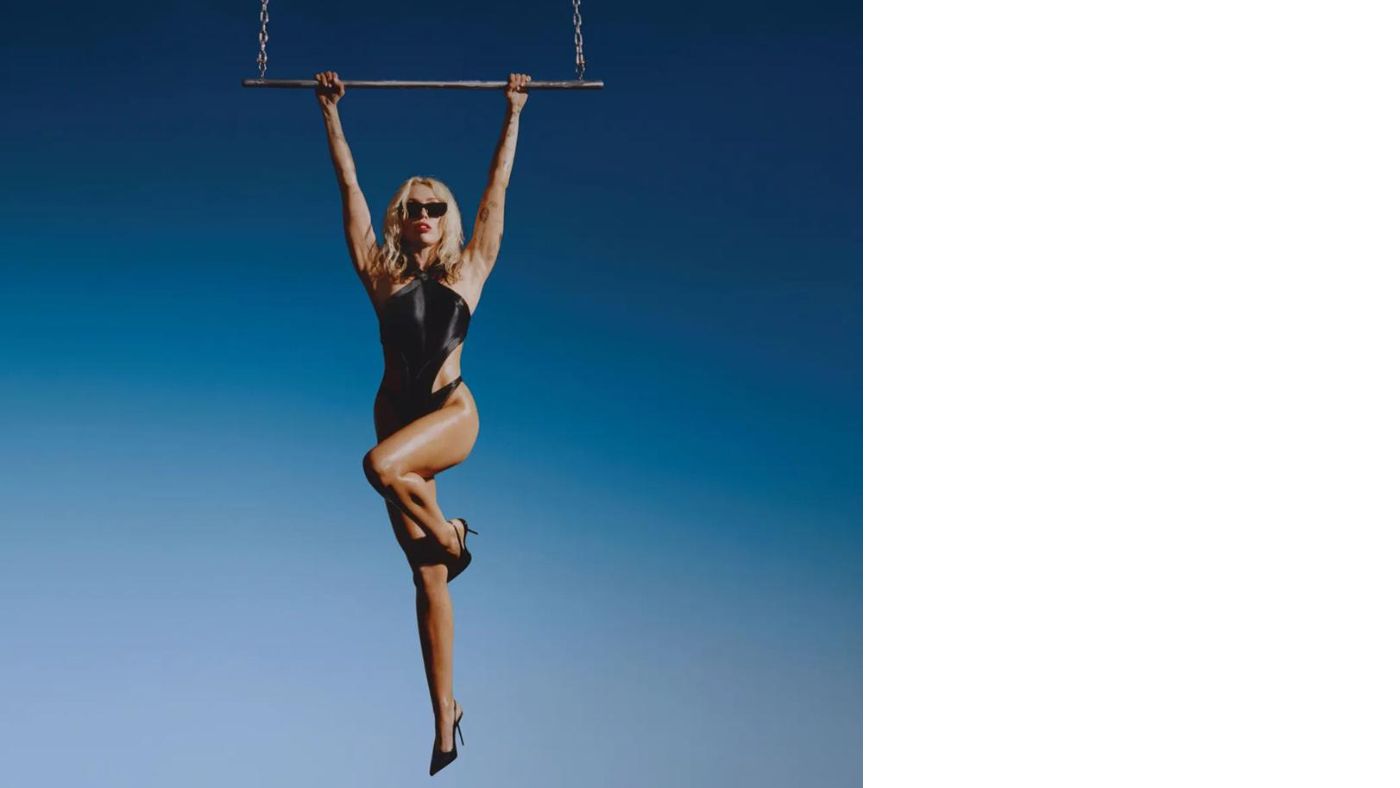
Miley Cyrus has spent years trying to reconcile mainstream chart success with her more leftfield musical instincts, said Alexis Petridis in The Guardian. On this “glorious” eighth album – a “hazily atmospheric” collection that “plays to her provocative strengths” – she has finally got there. Flowers, the album’s lead single, has already hit No. 1 “everywhere from Poland to Paraguay”. The rest of the tracks are similarly “well-written pop songs” with arrangements that “nod in the direction of mid-70s LA without seeming wilfully retro”. The producer (on most of the songs) is Kid Harpoon, the English singer-songwriter who bagged both a Grammy and Brit for Harry Styles’s world-conquering Harry’s House. On Cyrus’s album, said Helen Brown in The Independent, Harpoon’s “shimmering backdrops lay like perfect, sandy beaches for her to stretch her powerful vocals out across”. No longer a “wrecking ball”, she “sounds like a woman doing emotional weightlifting”. This fine album offers an opportunity to “bask” in her maturing talent. RCA; £12
Puccini: Turandot (cond. Antonio Pappano)
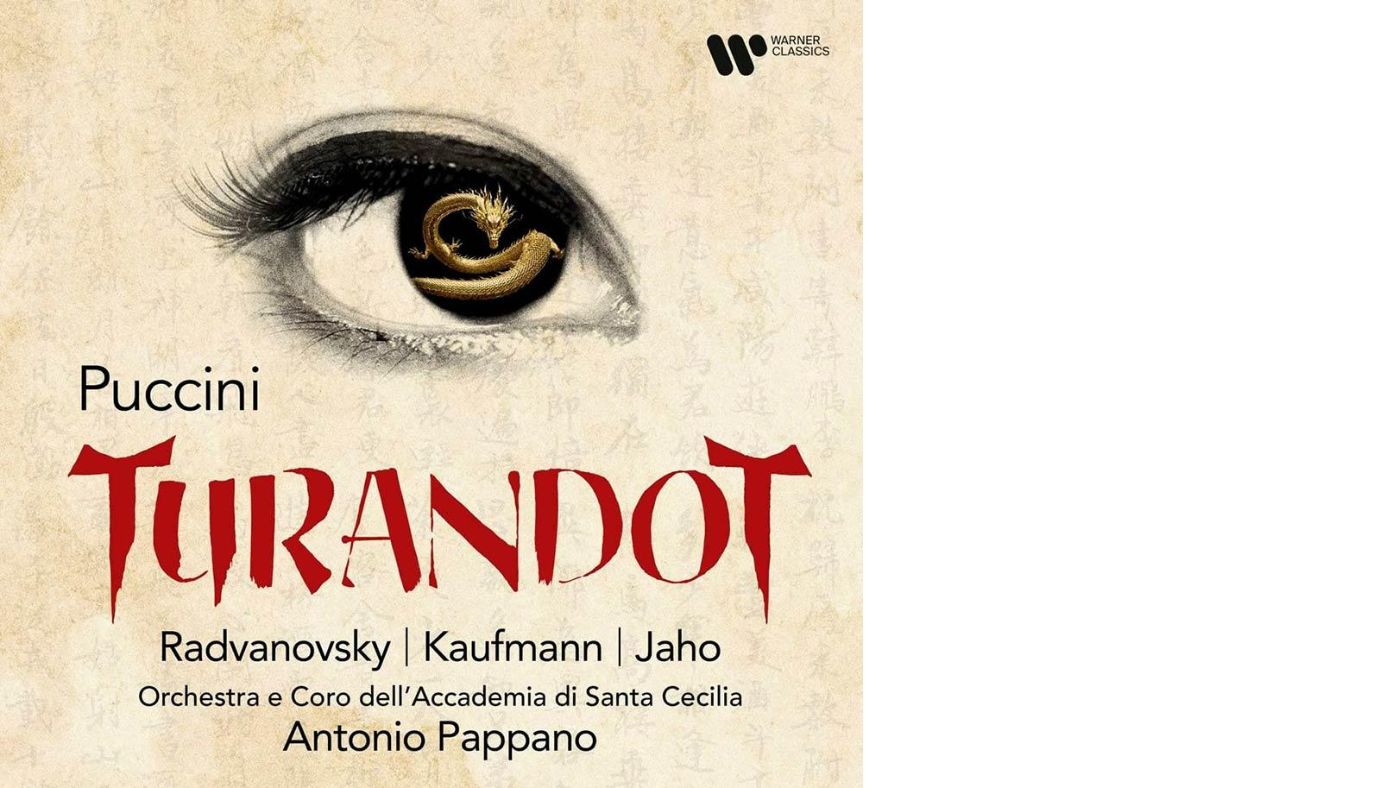
Antonio Pappano and Warner Classics haven’t rushed their cycle of Puccini’s operas, said Richard Fairman in the FT. It’s nearly 30 years since their release of La bohème. But this starrily cast, studio recording of Turandot – with Sondra Radvanovsky and Jonas Kaufmann – has been worth the wait. Radvanovsky “has the big guns vocally for the title role, without the steely edge that can sometimes bedevil it”. And Pappano conducts the Orchestra dell’Accademia Nazionale di Santa Cecilia with “blazing colour and an ear for detail”. Kaufmann, too, is on “heroic form”, said Erica Jeal in The Guardian. “He has a darker voice with a lower centre of gravity than past Calafs, such as Pavarotti and Björling, but it glows where it needs to, notably in a long-breathed Nessun Dorma”. Radvanovsky brings “steel in her soprano” and dramatic nuance to the titular princess. Ermonela Jaho is their equal as Liù, producing an “almost impossible sweetness on the high notes”. And the “palette of orchestral colour is huge and constantly shifting”. What a joy. Warner Classics; £25
Sleaford Mods: UK Grim
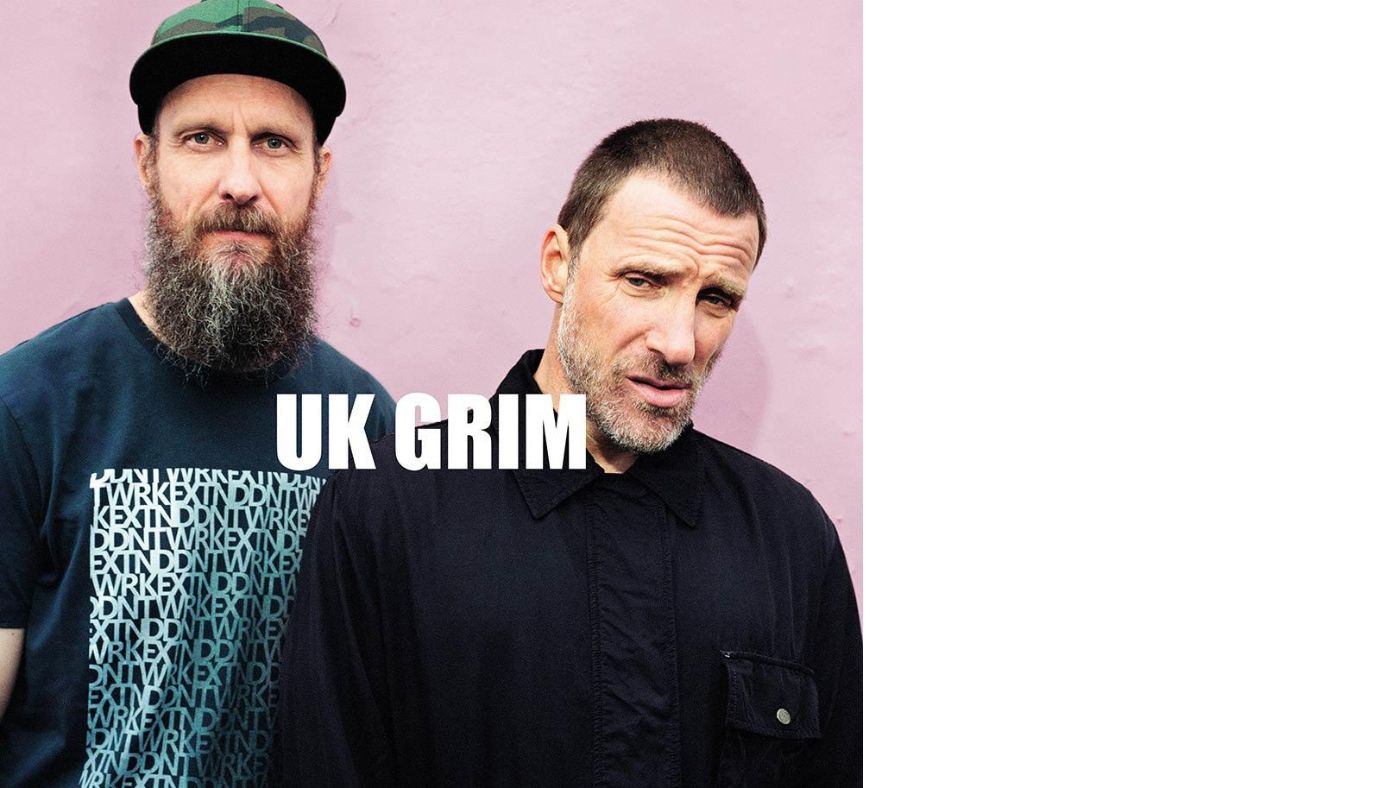
“Few bands have captured the political despair of the last decade as singularly as Nottingham duo Sleaford Mods,” said Elizabeth Aubrey in The Daily Telegraph. Spare Ribs, their widely acclaimed album from 2021, was a brutal dissection of the Government’s handling of the pandemic. This follow up, UK Grim, is another triumph, which “will cement their place as one of Britain’s most influential and successful” bands. This time, their focus is on the cost-of-living crisis: it’s an album full of political bite, humour and “frequently joyous” takedowns. There’s “rage aplenty” on UK Grim, but there is heart, introspection and subtlety too on this “aggy” cruise around 2020s Britain, said Andrew Trendell on NME. “Apart From You has a yearning not often associated with Mods.” Smash Each Other Up is like West Coast hip-hop made in the East Midlands. Right Wing Beast is a “ska-pop attack on the powers that be”. And So Trendy could have been a Gorillaz number, “if it weren’t such a delightfully snarky” critique of internet culture. Rough Trade; £11
Stravinsky: Violin Concerto & Chamber Works (Isabelle Faust/Les Siècles)
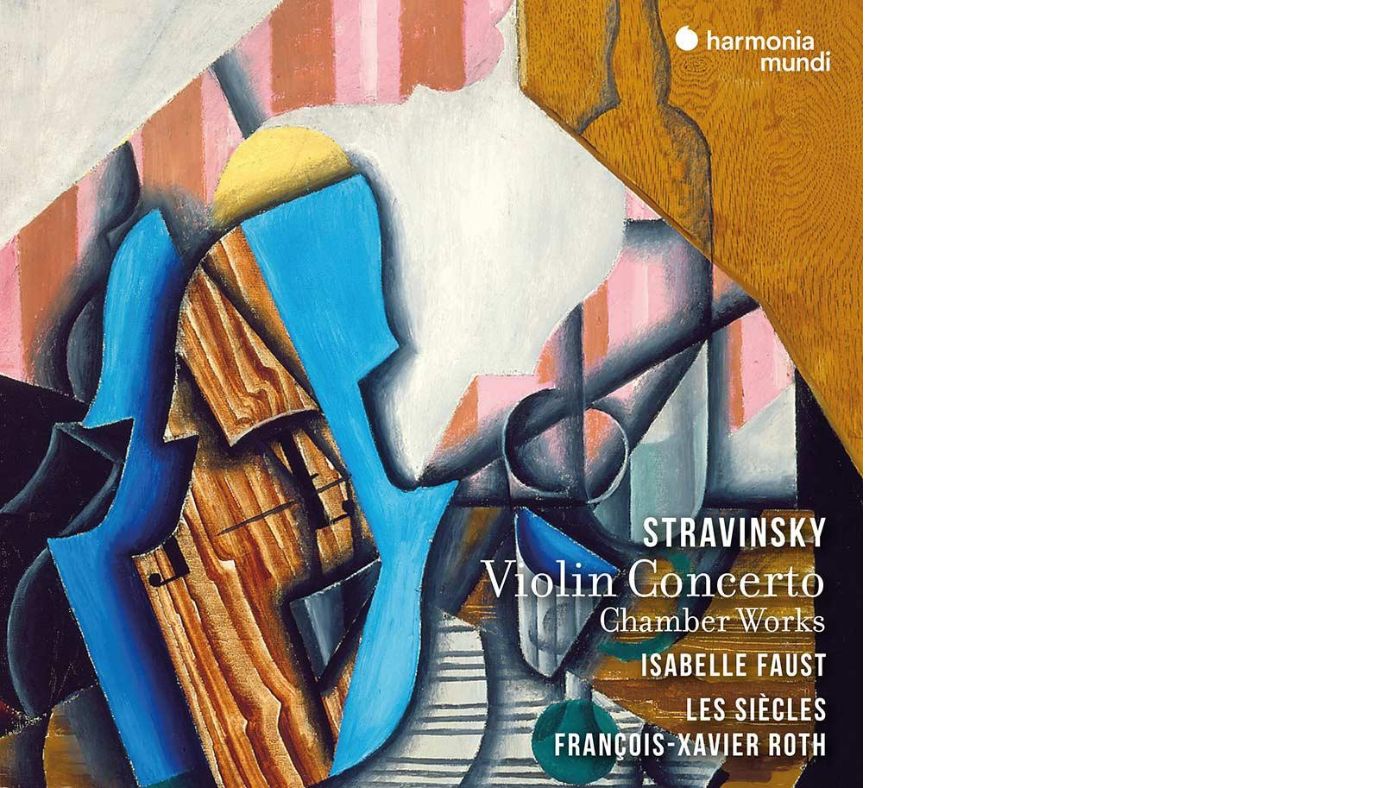
The French symphony orchestra Les Siècles has an august reputation for its recordings using period-specific instruments and practices. “But I can’t recall this lively band delivering acoustical pleasures quite so satisfying as those that roll up, bar after bar, in their account of Stravinsky’s Violin Concerto,” said Geoff Brown in The Times. Isabelle Faust’s violin playing is sprightly and lean – and with “the brass’s rasp, the strings’ pizzicato thwack and the strong personalities of turn-of-the-century woodwinds”, it adds up to a “stunningly taut and stimulating performance”. The gains from using gut strings and period woodwinds become obvious within minutes, agreed Andrew Clements in The Guardian. Faust’s playing has “gutsy depth”, and the orchestra creates a “kaleidoscope” of colours around her, from the “chattering flutes” to the “chuntering bassoons. It’s a real ear-opener, bringing the concerto into a sharper focus than I’ve ever encountered.” As a bonus, there are various shorter Stravinsky works. It’s a slightly odd mix, but they’re all “superbly played”. Harmonia Mundi; £13
Kali Uchis: Red Moon in Venus
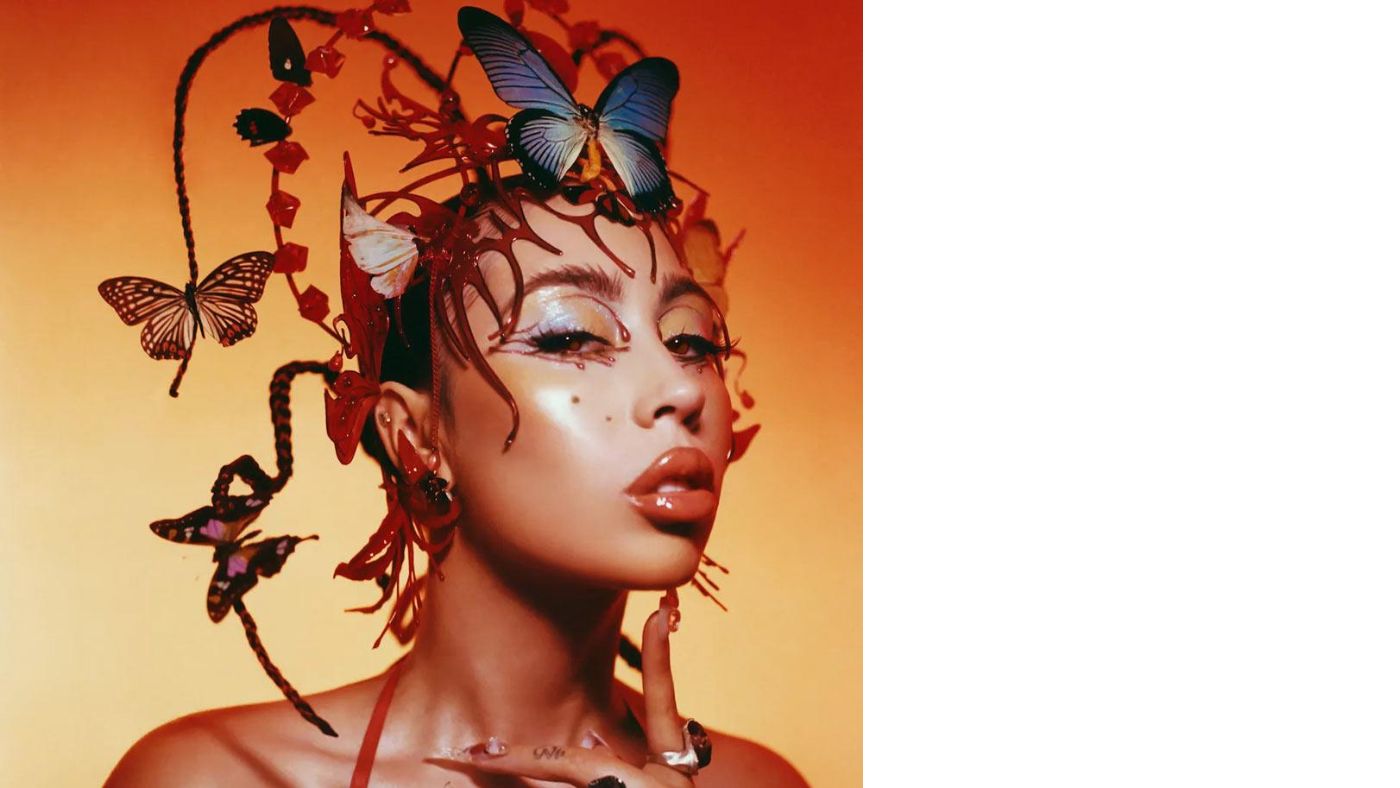
From the opening chimes and birdsong, this pleasure-filled album “cocoons you entirely in its plush, sensuous world”, said Kate French-Morris in The Daily Telegraph. Kali Uchis deals mostly in “R&B slow jams”, but the Colombian-American singer (who has been likened to Billie Holiday) “also channels the moodiness of Lykke Li, the stoned bliss of Mac DeMarco, and the ultra-luxe camp of Lana Del Rey”. At points it all becomes somewhat “soporific” – like a “fuzzy pastel” soundtrack to a “long, scented bubble bath”. But if you’re in the right mood, you will relish being “taken in by its embrace”. The album’s title comes from astrology, said Michael Cragg in The Guardian – the idea being that a “red moon” can trigger an emotional tailspin. Uchis “embraces these upheavals”, with songs about her love life, heartache and “sexual gymnastics”. Whereas her 2018 debut, Isolation, skipped between reggaeton, funk and pop, here Uchis “couches her velveteen mood pieces in pillow-soft” R&B. “Astrological guff never sounded so lush.” Geffen/EMI; £12
Slowthai: Ugly
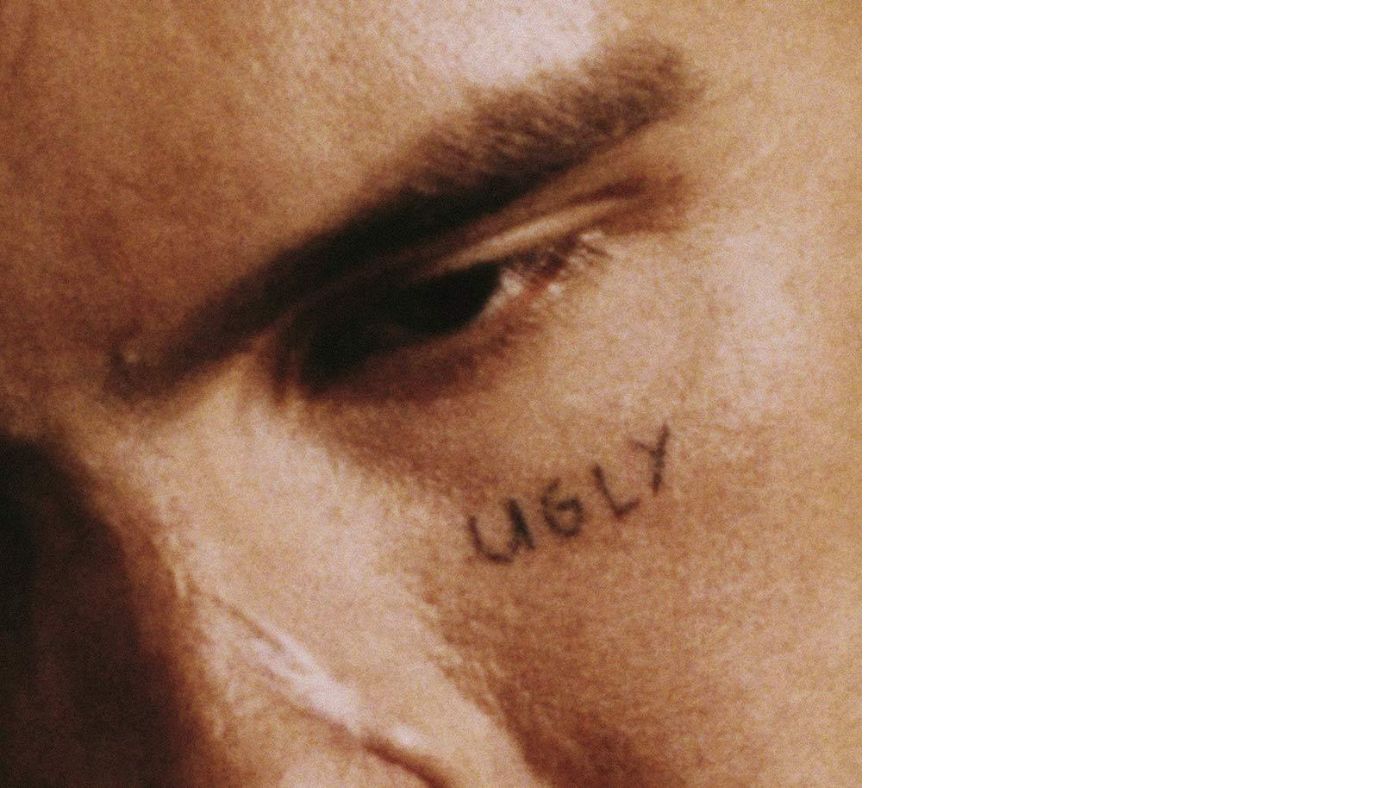
Northampton rapper Slowthai (aka Tyron Frampton) brings a “lorry load of issues” to this superb third album, said Dan Cairns in The Sunday Times – such as parenthood, therapy, the breakdown of his relationship, and a “sense that he was in danger of becoming a cartoonish parody of himself”. It’s a “brilliant” and diverse collection, clearly influenced by Frampton’s love of rock music. Yum is a “hurtling, motorik track about destructive appetites... that oozes menace and self-disgust”. The plangent, piano-led Never Again evokes early Bowie. And the “magnificent” Sooner is like Big Audio Dynamite doing northern soul. This is a blistering return to form following Slowthai’s sub-par second album, said Helen Brown in The Independent. Ugly (the title is an acronym for “U gotta love yourself”) closes with 25% Club, a “lovely lullaby” about the idea that none of us is ever fully ourselves, and that “the missing quarter needs love”. I am guessing that Slowthai “will get all that love back from fans now. Ugly is a powerful and direct transmission from a brilliant, beleaguered brain.” Method; £10
Clara and Robert Schumann: Piano Concertos
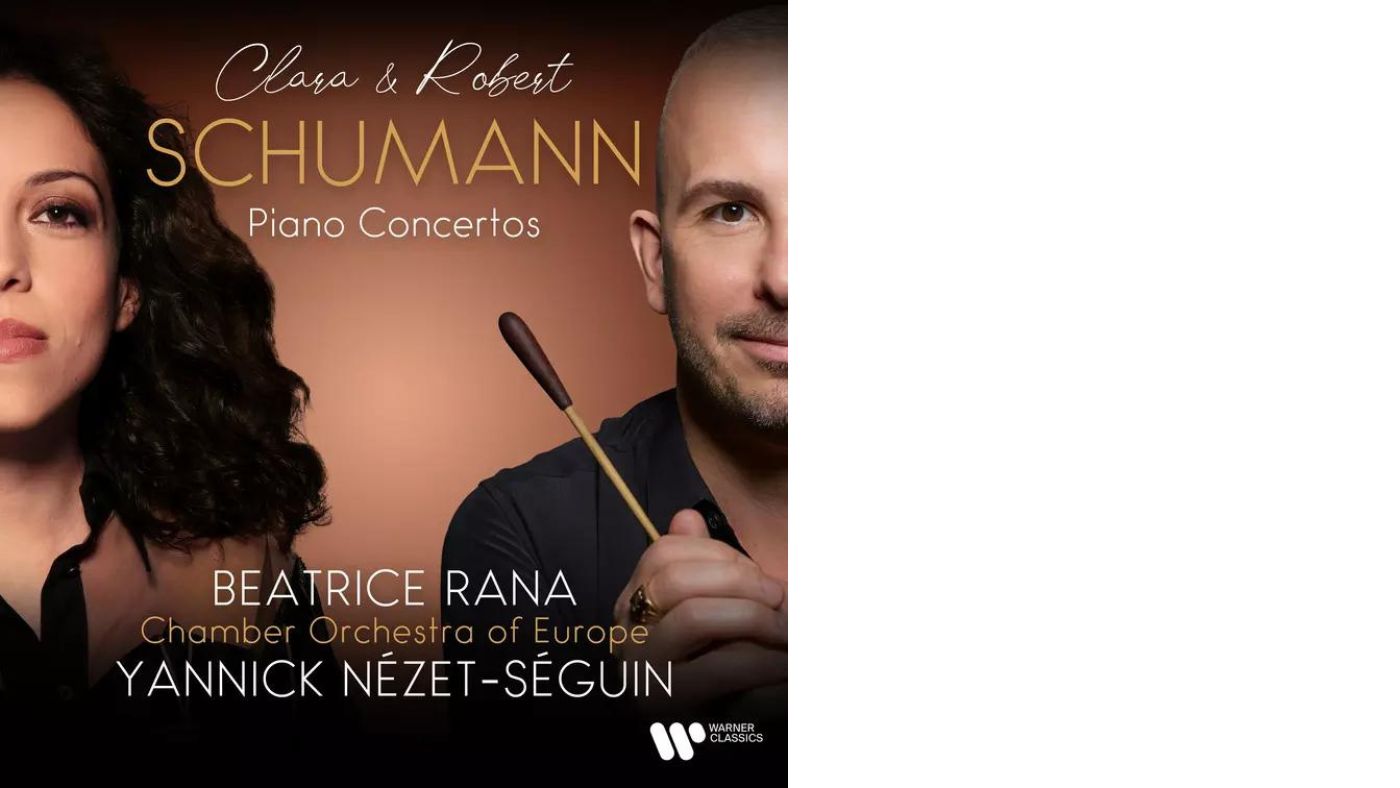
This “high-class” recording by the Italian pianist Beatrice Rana pairs Robert Schumann’s A-minor concerto with his wife Clara’s concerto in the same key, said Richard Fairman in the FT. A child prodigy, Clara had written it aged just 14, and was 16 when she performed it at the premiere with Felix Mendelssohn conducting. As in many youthful works, there are “clumsy moments”, but there’s also “an aura to much of the music that is Clara’s own — dreamy, lyrical, even with unexpected echoes of Chopin”. Rana brings “strength and delicacy” in equal measure, and as a bonus, she adds Robert’s song Widmung, a “heartfelt and warmly lyrical” declaration of love to Clara in the year of their marriage. Rana is “poetic and sprightly”, said Geoff Brown in The Times, and interacts nimbly with conductor Yannick Nézet-Séguin and the Chamber Orchestra of Europe. They highlight the “impulsive force” of Clara’s work; “but it’s the heartfelt performance of Robert’s grander, more mature concerto that remains the star attraction of this attractive, warm-hearted album”. Warner Classics; £14
Kelela: Raven
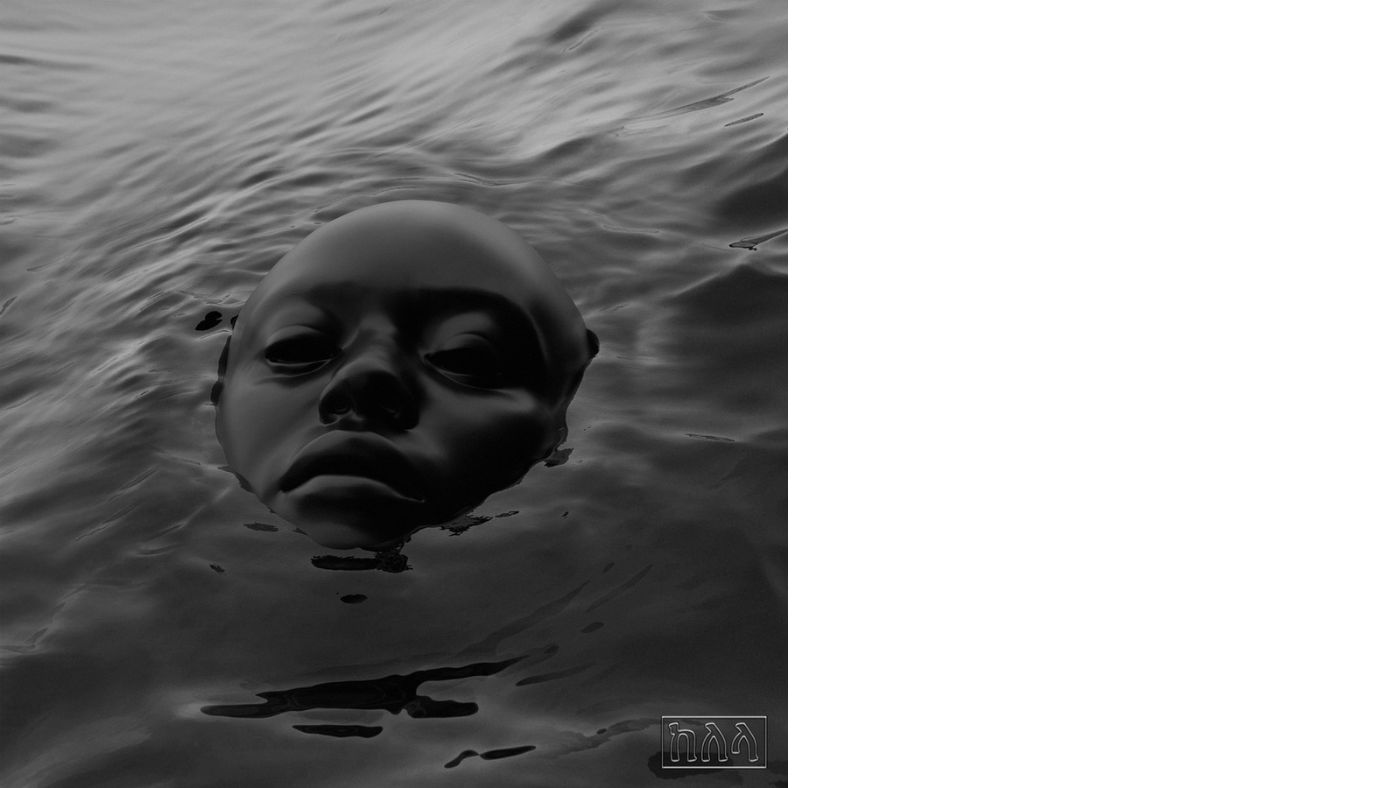
Following a five-year hiatus after her acclaimed debut Take Me Apart, Ethiopian-American artist Kelela Mizanekristos has returned with a flat-out triumph, said Cat Woods in The Daily Telegraph. Raven is a “sexy, sultry masterclass in R’n’B” that’s in the same league as SZA’s SOS and Beyoncé’s Renaissance. Kelela is the “real deal” – and her album is a “whip-sharp” collection in which a “world of glitchy, lovelorn, tremulous beauty” is revealed over 15 “epic” tracks. In the liner notes, said Ludovic Hunter-Tilney in the FT, Kelela explains that her new songs stem from “the feeling of isolation and alienation I’ve always had as a Black femme in dance music, despite its black origins”. Collaborators were sent a reading list of texts about Afrofuturism, racial identities and forms of oppression such as “misogynoir” (misogyny plus racism). But if this all sounds rather “knotty and theoretical”, the results aren’t: Kelela’s music is romantic, melodic, immersive and bubbling with “rhythmic energy”. Welcome back: it’s been worth the wait. Warp; £12
Yo La Tengo: This Stupid World
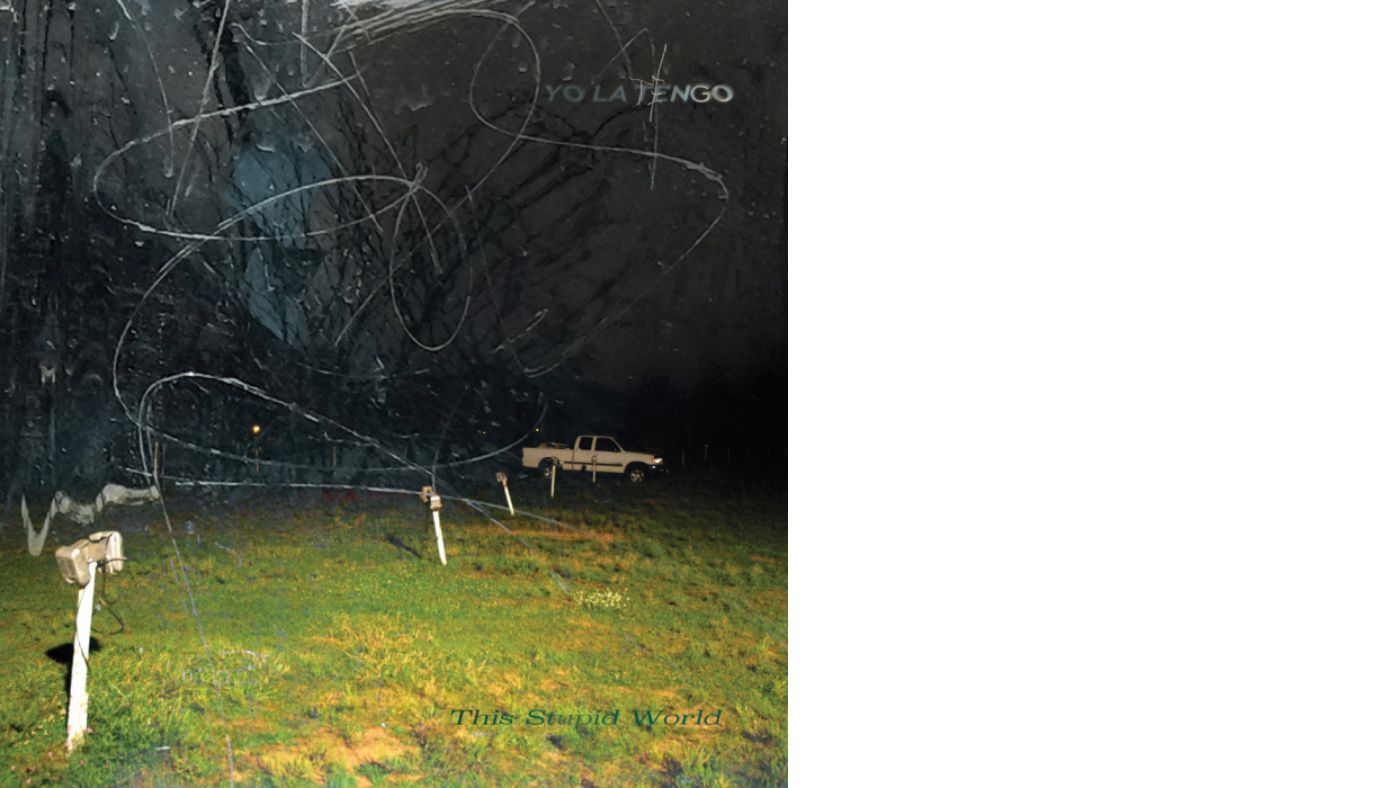
Yo La Tengo, US “indie rock’s most unassuming institution”, have been serving a dedicated fanbase since 1984, said Grayson Haver Currin on Pitchfork. Their latest album is their best in at least a decade, and boasts their “most compelling rock songs” in years. As the title suggests, it’s not a cheery listen. This Stupid World is infused with feelings of resignation: “maybe the abyss isn’t yet in plain view, but reports from its depths are coming up more quickly now”. Yet at the same time, the album “exudes a lovable lightness” and sense of playful camaraderie. It represents a “new triumph of indie rock’s old guard”. I would rate This Stupid World as the New Jersey trio’s most engaging album since And Then Nothing Turned Itself Inside-Out, released back in 2000, said Phil Mongredien in The Observer. The collection has the “gentler, increasingly meditative” sound of their recent work. But it also, in something of a “handbrake turn”, sees the band regain “their edge of unpredictability”, with the use of “fuzzed delivery” and “ominous distortion”. Matador; £11
S.G. Lewis: AudioLust & HigherLove
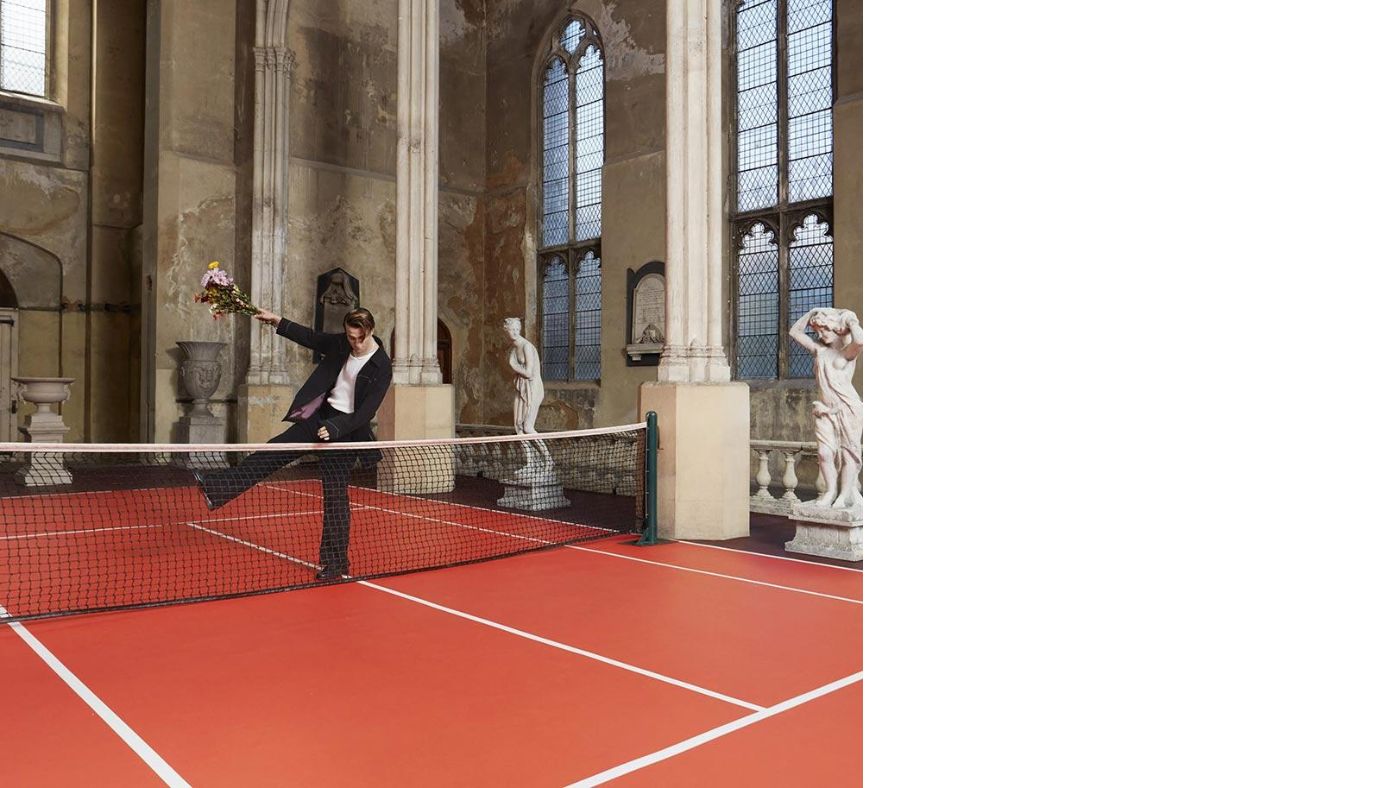
The singer, songwriter and multi-instrumentalist S.G. Lewis is “one of the most influential British musicians of his generation”, said Kathleen Johnston in The Daily Telegraph. He has worked his “behind-the-scenes wizardry” as a producer for the likes of Dua Lipa, Mabel and Dave, and on his own debut album, Times, he proved himself a “pied piper capable of enticing everyone to the dancefloor with his slick, retro-tinged future-disco”. This terrific follow-up makes you think he could soon be selling out stadiums. Stand-out tracks include the “sublime” Holding On, the “deliciously infectious” Missing You and the “trippy, near-nine minute” Epiphany. The album marks a “sonic evolution” for Lewis, said Ben Jolley on NME – the range of genres and influences wider than before. Infatuation, for example, takes in rock-leaning guitar riffs and psychedelic flourishes. Oh Laura strips things back to crashing drums. “The kaleidoscopic synths, disco tinges and singalong dance-pop choruses of his uplifting first record remain, but with extra layers to elevate everything.” PMR/EMI, £10.99, CD
Raye: My 21st Century Blues
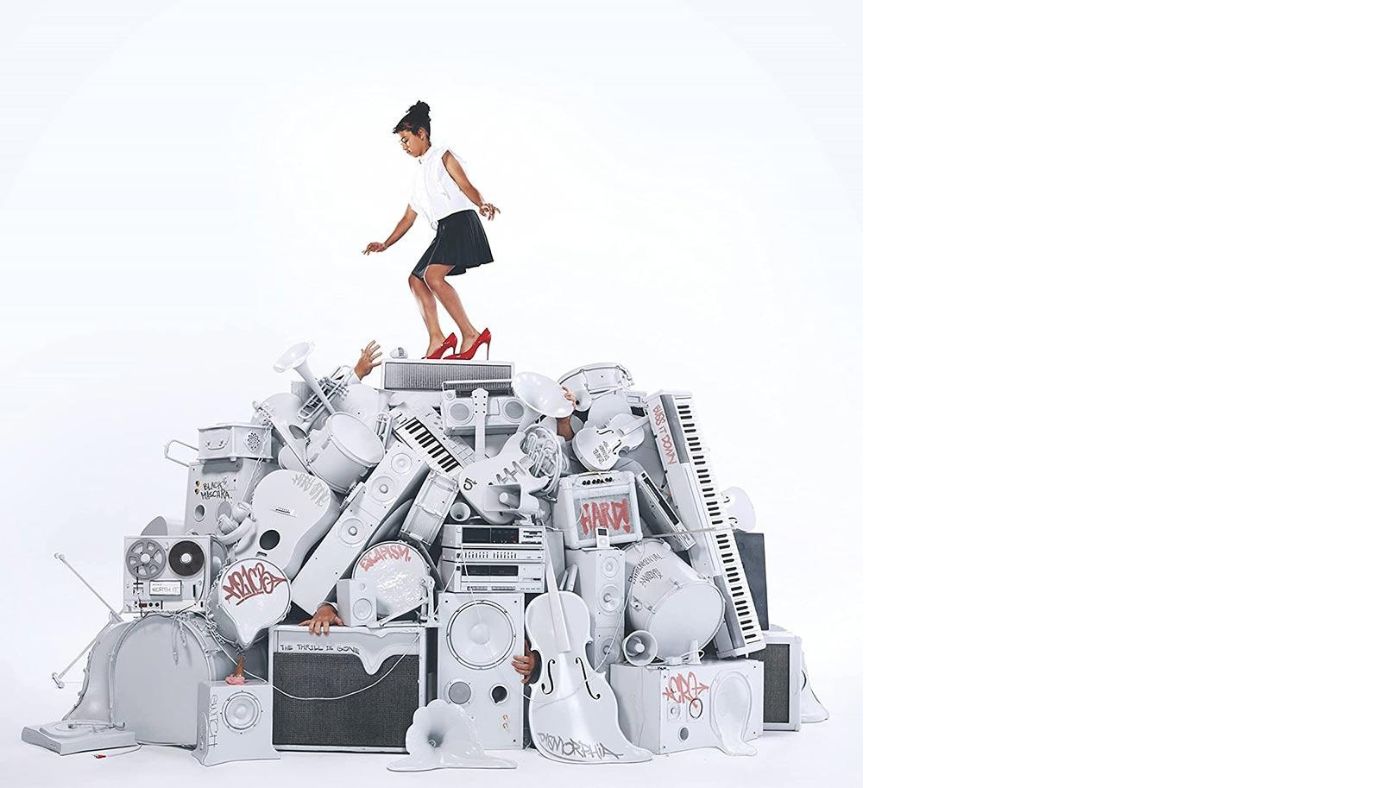
This triumphant self-released debut album from Raye – aka 25-year-old Londoner Rachel Keen – is a “powerhouse collection of vulnerable, witty, provocative songs that refract vintage R’n’B through the poppy prism of digital hip-hop”, said Neil McCormick in The Daily Telegraph. It’s a “dazzling” record with an “astonishing” backstory: Raye has been around for years, but parted company with her major label last year, claiming that they didn’t want her to release an album, only singles. More fool them. Raye has a “voice as soulful as Amy Winehouse’s and an attitude as bold as Beyoncé’s” – and has made the “first great album of 2023”. My 21st Century Blues arrives on the back of Escapism, Raye’s superbly catchy No. 1 single, said Alexis Petridis in The Guardian. And it “roars into life, hitting you with one fantastic song after another”. Admittedly, there is not “quite enough killer material” here to fill the entire 40-minute album: some of the pop-focused second half is a bit “boilerplate”. Yet there is plenty here to suggest that Raye has a rosy future. Human Re Sources, £10, CD
Janácek – Brahms – Bartók: Patricia Kopatchinskaja (violin), Fazıl Say (piano)
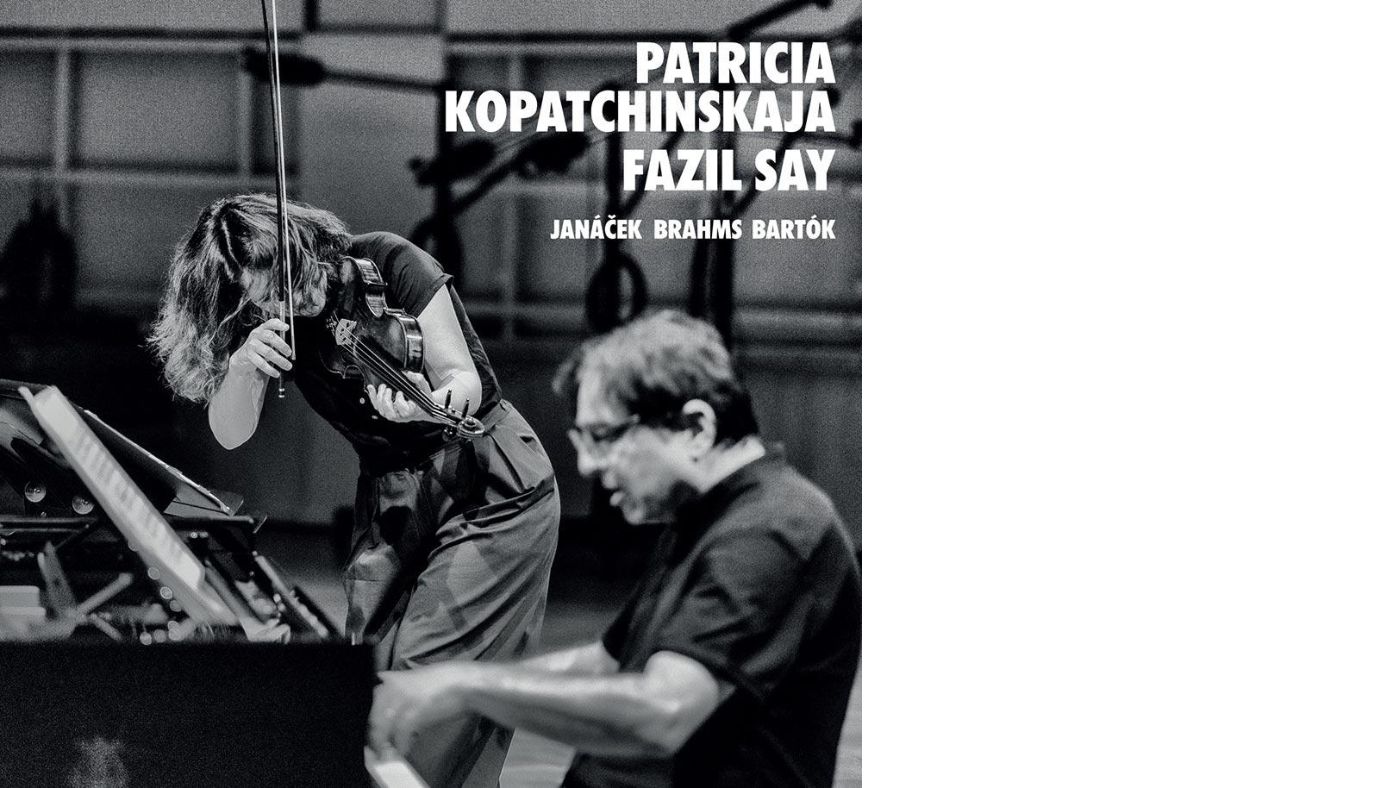
The Moldovan-born, Swiss-based violin virtuoso Patricia Kopatchinskaja is known for her “enquiring mind” and sometimes “controversial” interpretations, said Richard Fairman in the FT. On her latest recording, in collaboration with pianist Fazıl Say, I found her approach to Brahms’s Violin Sonata No. 3 in D Minor somewhat too delicate. By contrast, the “fleeting emotions” of Janácek’s Violin Sonata might have been made for her “lightning responses” and startling intensity. And in Bartók’s Violin Sonata No. 1, Kopatchinskaja “plays with nerve endings on edge”; the almost ferocious folk-like realism of her performance “provides a compelling climax” to the collection. They take some liberties in the Janácek (for example on tempi), said Andrew Farach-Colton in Gramophone. But the duo uncover “so much marvellous detail, and evoke such powerful emotion” that I was ultimately won over. The interpretations of the Brahms and Bartók sonatas are “similarly searching and intense” – and complete a recital that is destined to be among “2023’s best”. Alpha Classics, £14
Stile Antico: William Byrd
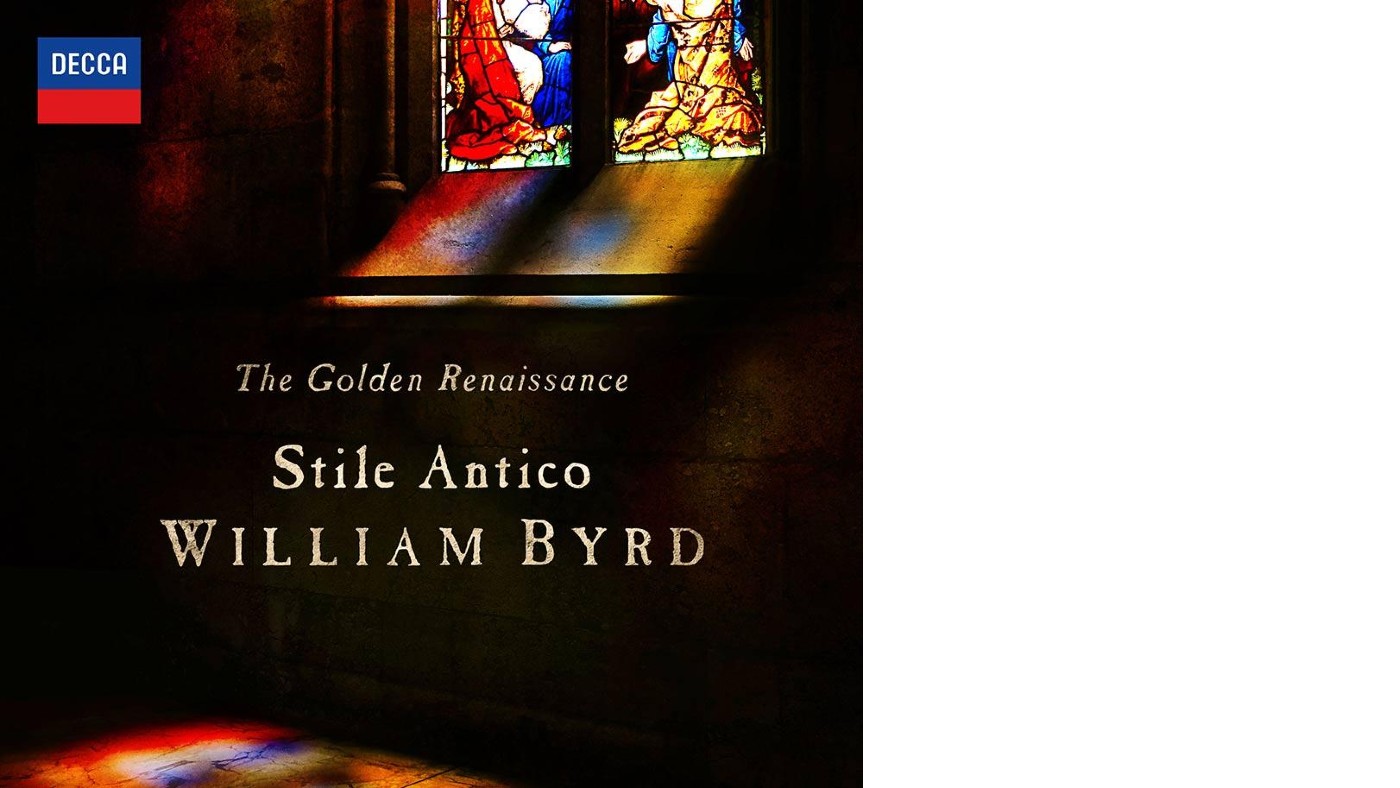
William Byrd (c.1540-1623) could be considered England’s greatest composer, owing to his “expressive range” and Mozartian versatility, said Ivan Hewett in The Daily Telegraph. This year marks the 400th anniversary of his death, and kicking off a series of Byrd releases is this disc of his later, sacred works. The “beautiful” performances by the 12-strong Stile Antico choir are undeniably “immaculate”. But I wanted more “expressivity” and the “barely suppressed heat” one hears, for example, in the Tallis Scholars’ recording of the Sanctus of Byrd’s Mass. Only intermittently does this disc “touch the heart as well as ravishing the ear”. My ears heard things the other way round, said Richard Fairman in the FT. I found the performances “scrupulously well balanced”, but also “more generously expressive than some – a valid alternative to the pure approach of an ensemble like the Tallis Scholars”. This is a “wide-ranging introduction to one of the greatest of English composers”, and starts Byrd’s anniversary year “in some style”. Decca Classics; £11.99
Billy Nomates: Cacti
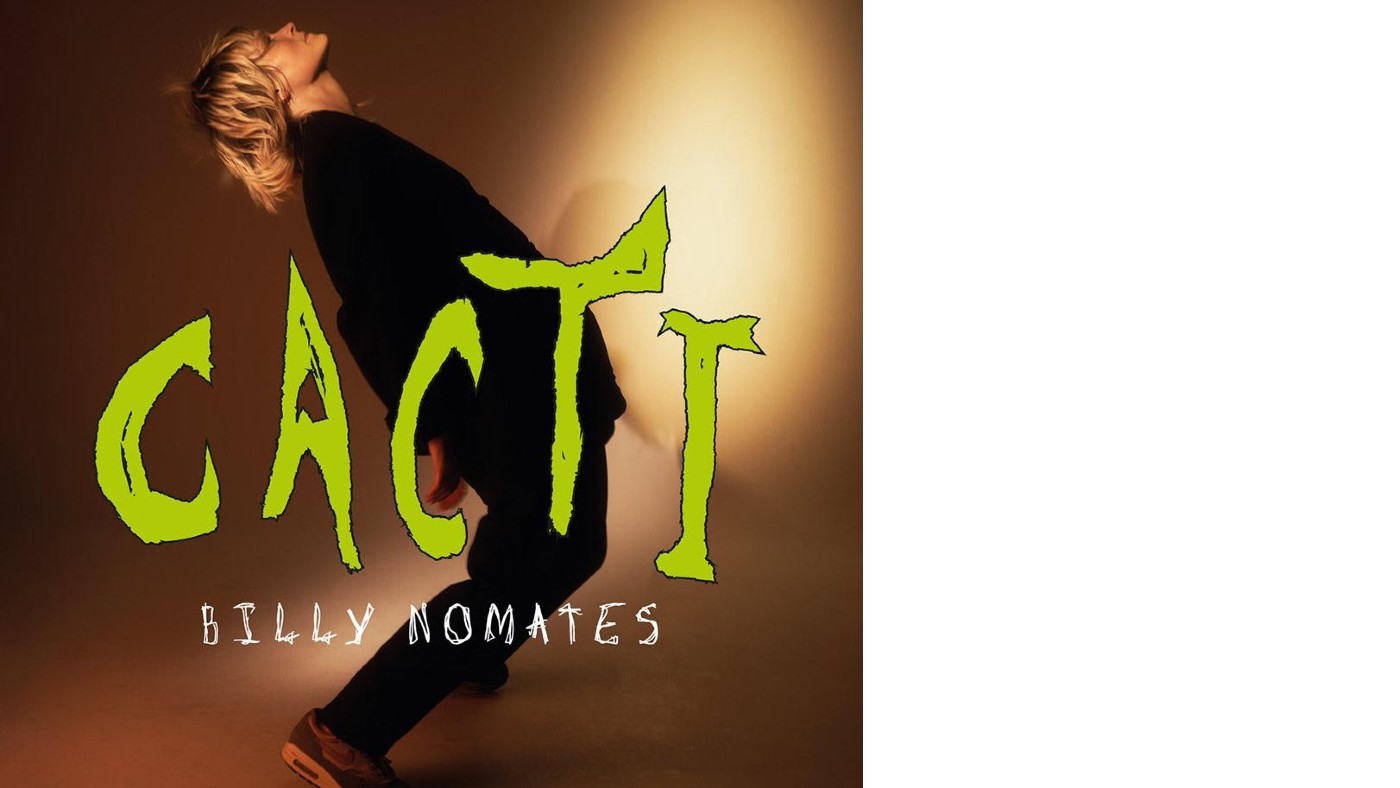
Almost two and a half years on from her “barnstorming” eponymous debut, the Bristol-based singer-songwriter Billy Nomates (real name Tor Maries) has returned with this “humorous and heartbreaking second album”, said Emma Harrison in The Daily Telegraph. Nomates is a serious talent: a multi-instrumentalist as well as a singular vocalist who mixes sung and spoken delivery on tracks that offer “candid” observations about relationships and mental health. Her second collection is “softer” and “more introspective” than her first – yet it has the same “punch and bite” and alluring “post-punk new wave vibe”. Invada; £10.99
Ryuichi Sakamoto: 12
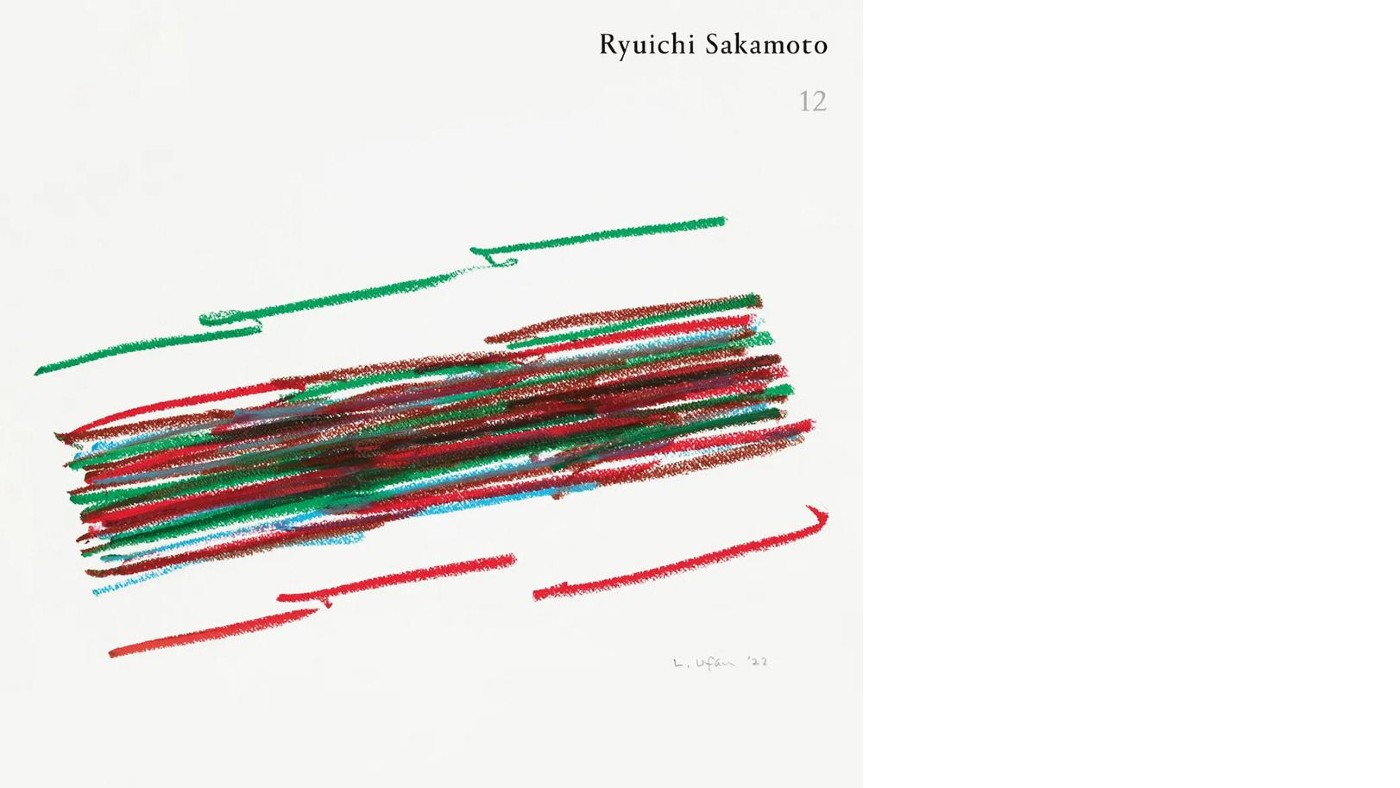
Ryuichi Sakamoto – the Japanese musician known for his pioneering synth-pop, beautiful piano-based electronica and Oscar- and Bafta-winning film scores – recovered from cancer in the 2010s. Sadly, he learnt in 2021 that the disease had returned, and a sense of mortality suffuses the 12 unhurried instrumental tracks on this extraordinary album, said Ludovic Hunter-Tilney in FT. The music ranges from ambient soundscapes to shorter, melodic piano compositions paying homage to Claude Debussy. In some pieces, Sakamoto’s slow breathing is used to keep time: the effect is “mesmerising”. Much like his friend David Bowie did with Blackstar, and Leonard Cohen did with You Want It Darker, Sakamoto is “staring down the prospect of his own death, meditating on the legacy that he will leave behind”, said Rob Arcand on Pitchfork. “But rather than mythologise his life in narrative songwriting or theatrical instrumental fireworks”, he has “chosen a quiet grace, one more subtle and restrained than even his softest prior work. Rarely does an album this understated say so much.” Milan Records; £13.99
Margo Price: Strays
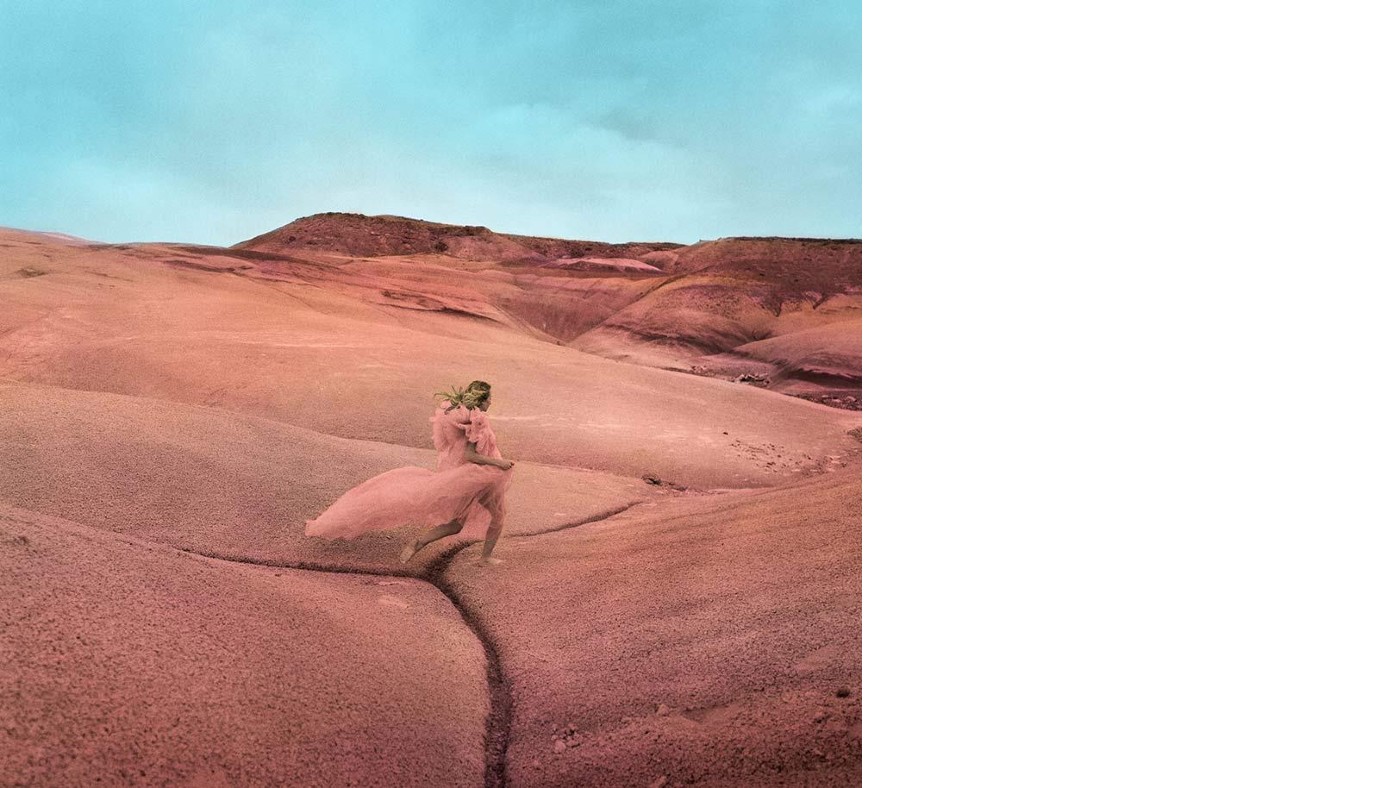
“Margo Price couldn’t be more country,” said Kitty Empire in The Observer. “Her family lost the farm, she pawned her wedding ring and spent time in jail.” But after years of trying to break through in Nashville, the singer-songwriter – originally from Illinois – finally found commercial success by edging towards a more mainstream rock sound, and with every album she “continues to expand her brief”. While her last one “nodded to Fleetwood Mac”, this terrific new one “adds heady organ grooves and hypnotic southern rock to her band’s considerable chops”. Concord; £12
Gaz Coombes: Turn the Car Around
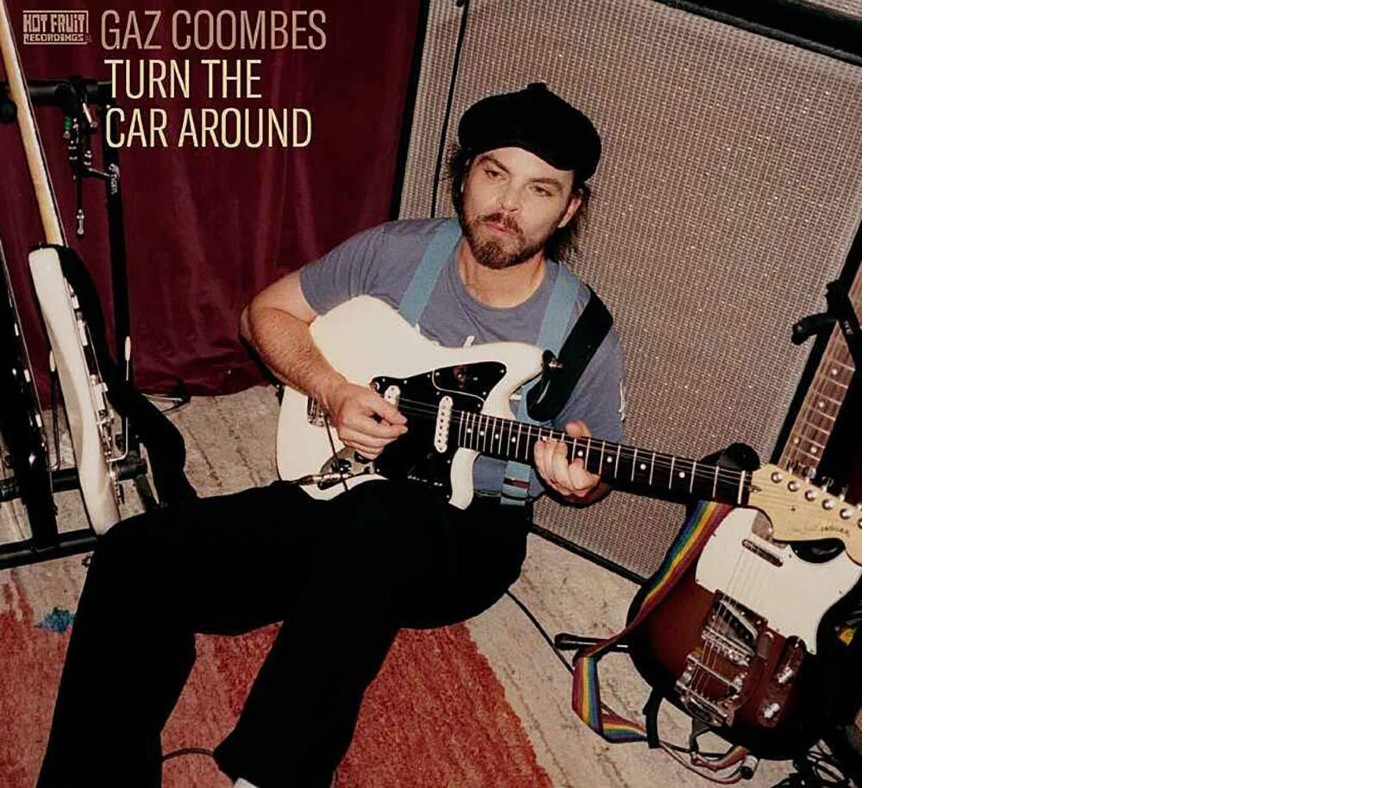
Gaz Coombes was only 19 when Supergrass – the band he formed with his Oxford school friends – “became the naughty boys of Britpop” with their smash hit ode to youthful misadventure, Alright. In reality, said Will Hodgkinson in The Times, he was always a “more interior soul” than Supergrass’s good-time image suggested. This, his fourth solo album, combines “touches of Scott Walker’s tortured balladry, David Bowie’s theatrical melodrama and Neil Young’s truculent sensitivity”. It’s a long way from Supergrass’s “carefree” sound, but “equally appealing in its own quiet way”. Hot Fruit/Virgin; £10
Emanuel Ax, Leonidas Kavakos and Yo-Yo Ma: Beethoven for Three
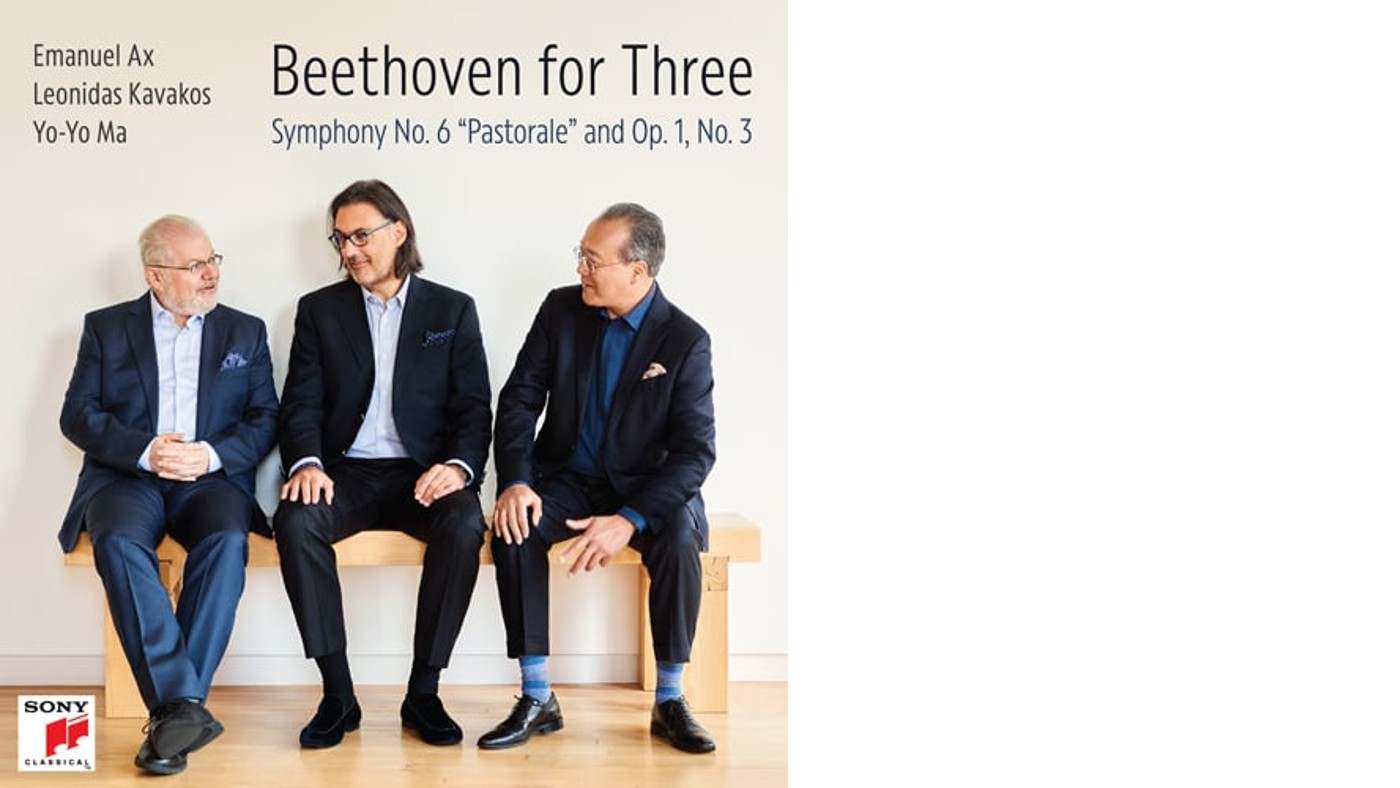
“Bringing three bankable stars together to make a recording is always a risk,” said Ivan Hewett in The Daily Telegraph. Often, the “sound of clashing egos” overwhelms the music. But not on this first-rate album, the second of a series in which pianist Emanuel Ax, cellist Yo-Yo Ma and violinist Leonidas Kavakos perform symphonies by Beethoven. The arrangement for trio of Symphony No. 6, the Pastoral, by pianist and composer Shai Wosner, is “a marvel of intelligence and tact, which at times sheds a new light on this much-loved piece”. And the three musicians’ playing, too, is “beautifully tactful and sensitive, each player super-alert to what the others are doing and responding to it”. The trio’s evident camaraderie is on ample display in the “easy flow, joint attack and emotional rapport in their playing”, said Geoff Brown in The Times. And, if anything, their “togetherness” is even more striking in the accompanying C minor Trio from Beethoven’s Op. 1, a “chamber piece with a symphony’s texture and breadth”. It’s a wonderful collection. Sony Classical; £14
Iggy Pop: Every Loser
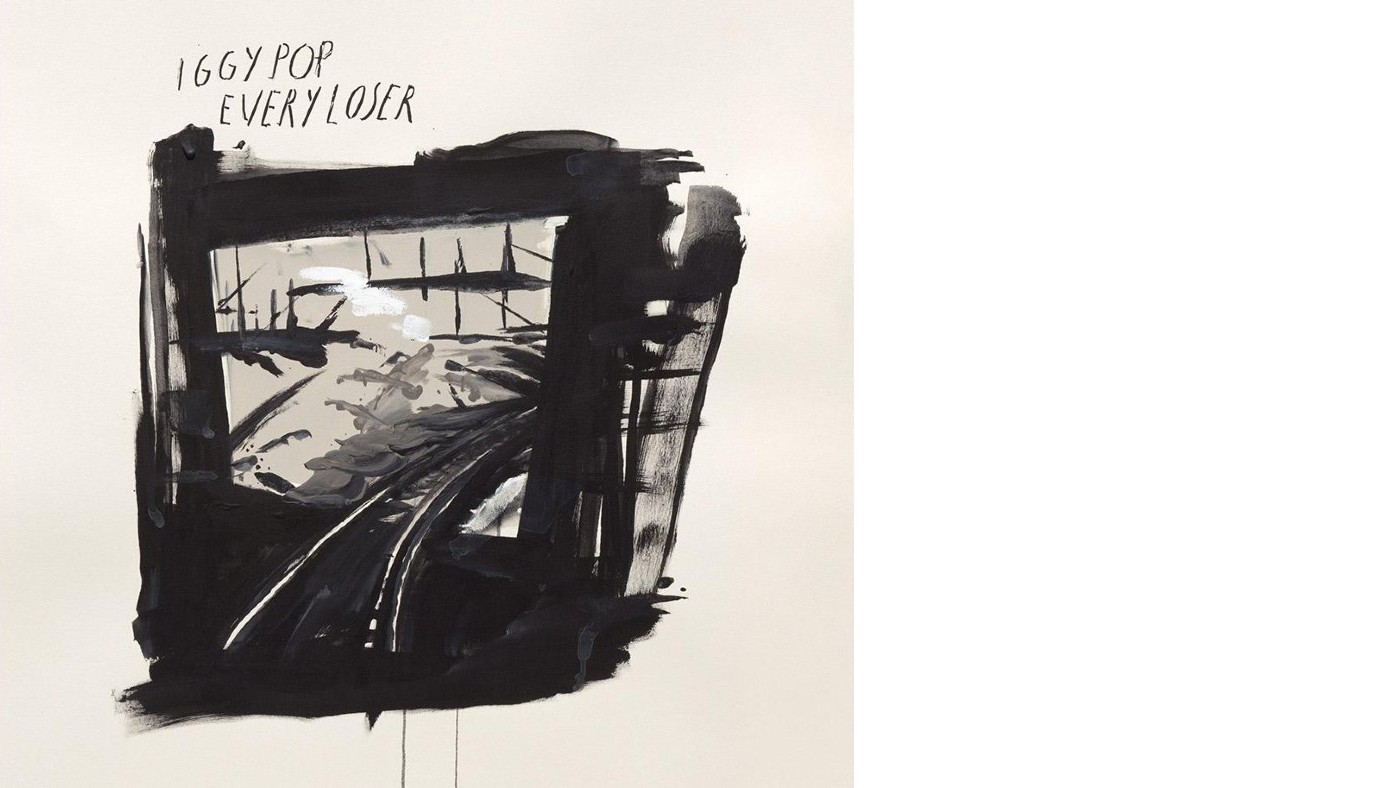
“What a magnificent rock star Iggy Pop is,” said Neil McCormick in The Daily Telegraph. On this terrific 25th album – backed by a “fantastic” band featuring members of Guns N’ Roses, Red Hot Chili Peppers, Pearl Jam and the Foo Fighters – the 75-year-old “wild man” is still “rocking harder, with more mad commitment, primal energy and imaginative flourish than any punk on the planet”. This is a “great, energising opening blast for 2023”: a “loud and lairy” album packed with his trademark “lust for life”. Iggy Pop’s recent output has tended towards the experimental, said Will Hodgkinson in The Times. But this sees him returning to more familiar territory: he “goes straight for the rock jugular, throwing in a lot of humour, fun and a big middle finger to modern life along the way”. Produced by Andrew Watt, a 32-year-old New Yorker noted for his work with Justin Bieber and Miley Cyrus, Every Loser features all of the musician’s trademark frenzy and rage, but with “radio-friendly craftsmanship and immediacy” thrown in. It’s Iggy Pop’s “best album in decades”. Atlantic/Gold Tooth; £11
Renaud Capuçon & Martha Argerich: Violin Sonatas
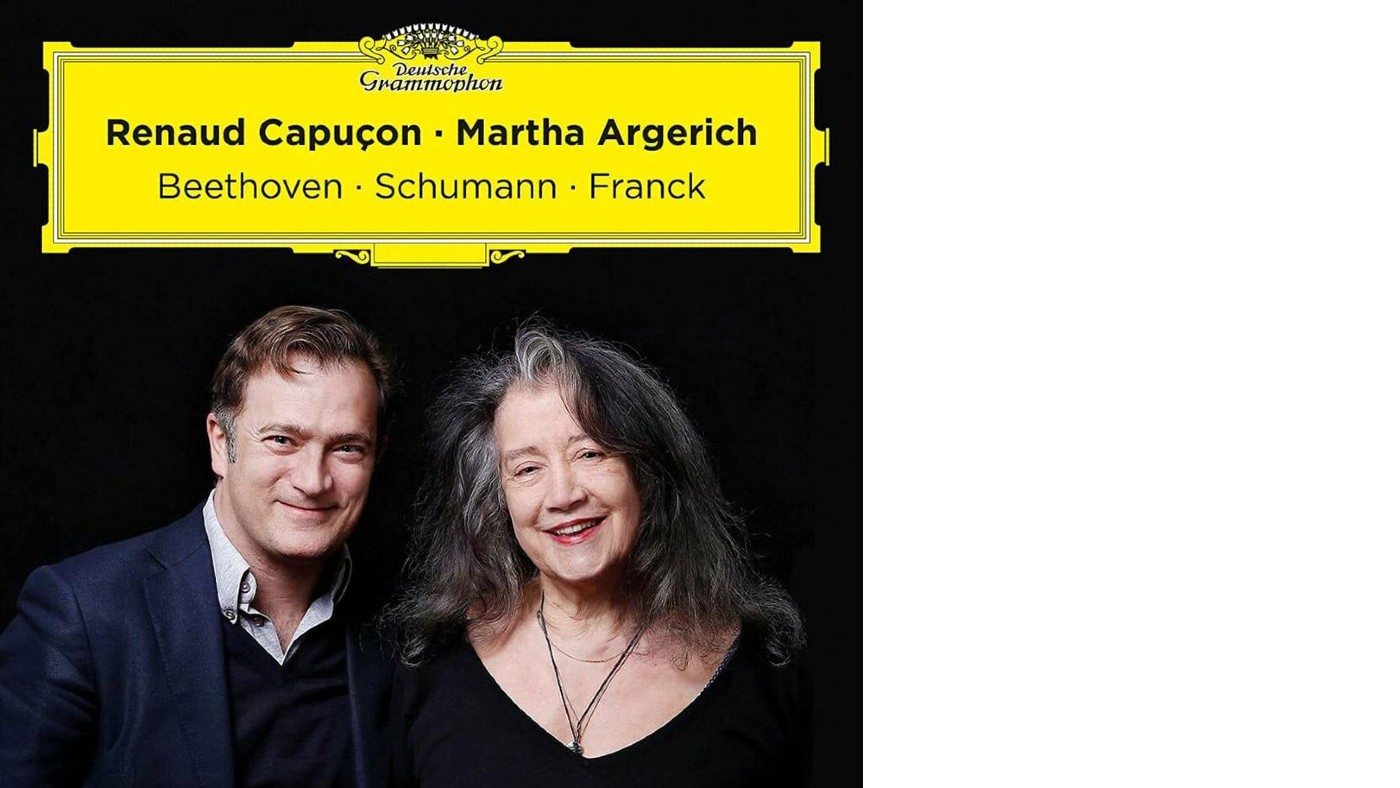
“Crisp attack, powerful momentum, lyrical delicacy, improvisatory élan.” These are the hallmarks of the great Argentinian pianist Martha Argerich, said Geoff Brown in The Times. And on this “thrilling” album – recorded last April at a concert in Aix-en-Provence with the violinist Renaud Capuçon – all those qualities are on display. Now in her early 80s, Argerich remains a dextrous, forceful musician, and from the first piece, Schumann’s Sonata in A minor, you sense her “driving forward, encouraging Capuçon to match spark with spark”. Schumann was apparently never happy with his first violin sonata, “but then he hadn’t heard Capuçon and Argerich play it”, said David Threasher in Gramophone. “Over Argerich’s molten accompaniment, Capuçon drapes his velvety, sweet tone, never feeling the need to dig in or to uglify his sound for rhetorical effect.” Their rendition of Beethoven’s Kreutzer Sonata is a “breathtaking display of untiring virtuosity and pinpoint coordination”. To complete a “magical” album, Franck’s Sonata in A “grips the listener from beginning to end”. Deutsche Grammophon; £12
Monteverdi: Seventh Book of Madrigals
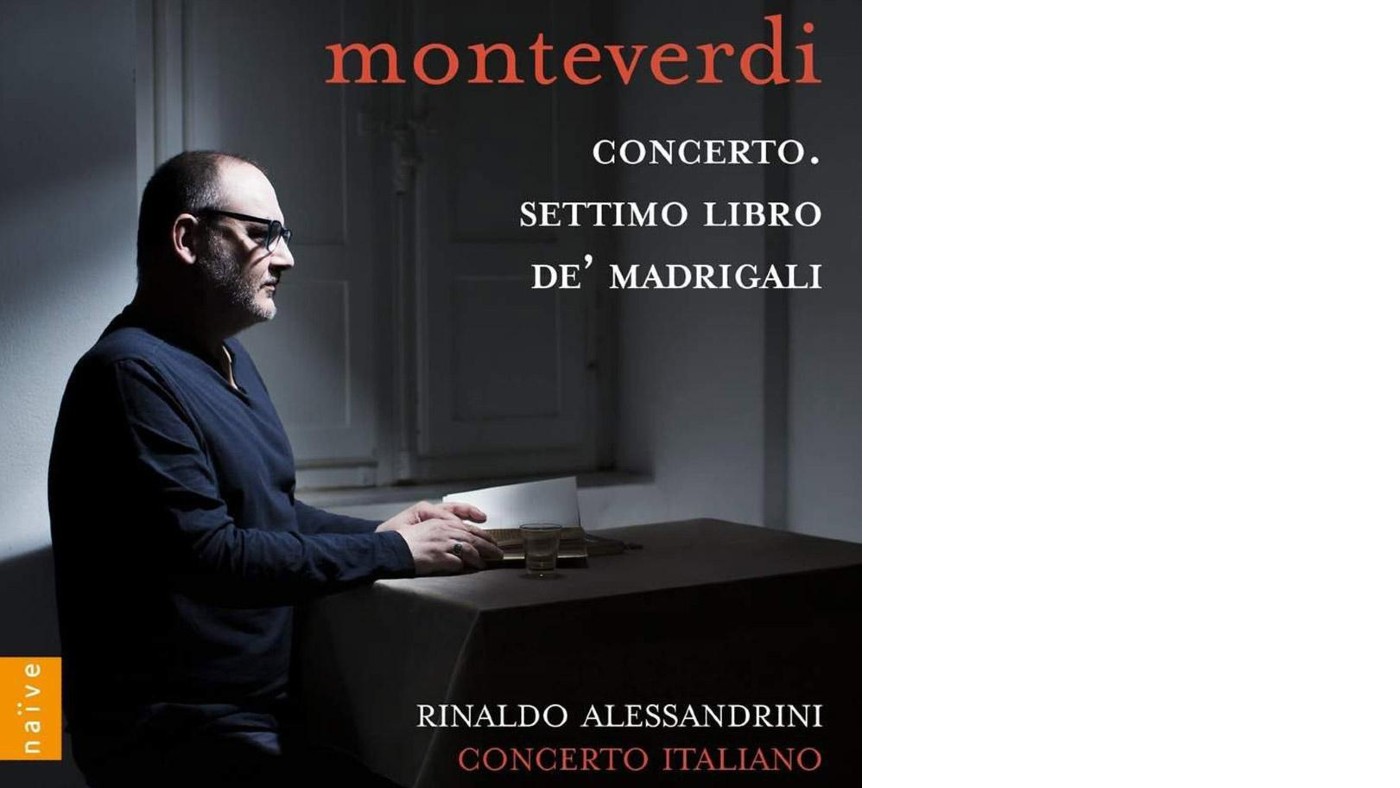
Rinaldo Alessandrini and his ensemble Concerto Italiano are among the leaders in the field of period-authentic performance style, said Richard Fairman in the FT – excelling in everything from Renaissance Italian composers to Bach and Handel. Their award-winning recordings of Monteverdi’s madrigals have been central to their success, and this outstanding account of the composer’s Seventh Book (1619), which saw him move away from polyphonic madrigals to a more declamatory and dramatic singing style, is a fine addition to the set. The most striking thing is “just how vivid and foreground it all sounds”, said Alexandra Coghlan in Gramophone – as if “the whole drama has stepped beyond the proscenium and into the room”. Seven singers join a generous ensemble to produce an engaging, highly energised sound in which “moods are boldly drawn”; yet it also encompasses playing and singing of sometimes “insect-like delicacy”. This is “opera without the stage – a riveting and incredibly stylish account of this vast and varied book of music”. Naïve; £20
Sophie Jamieson: Choosing
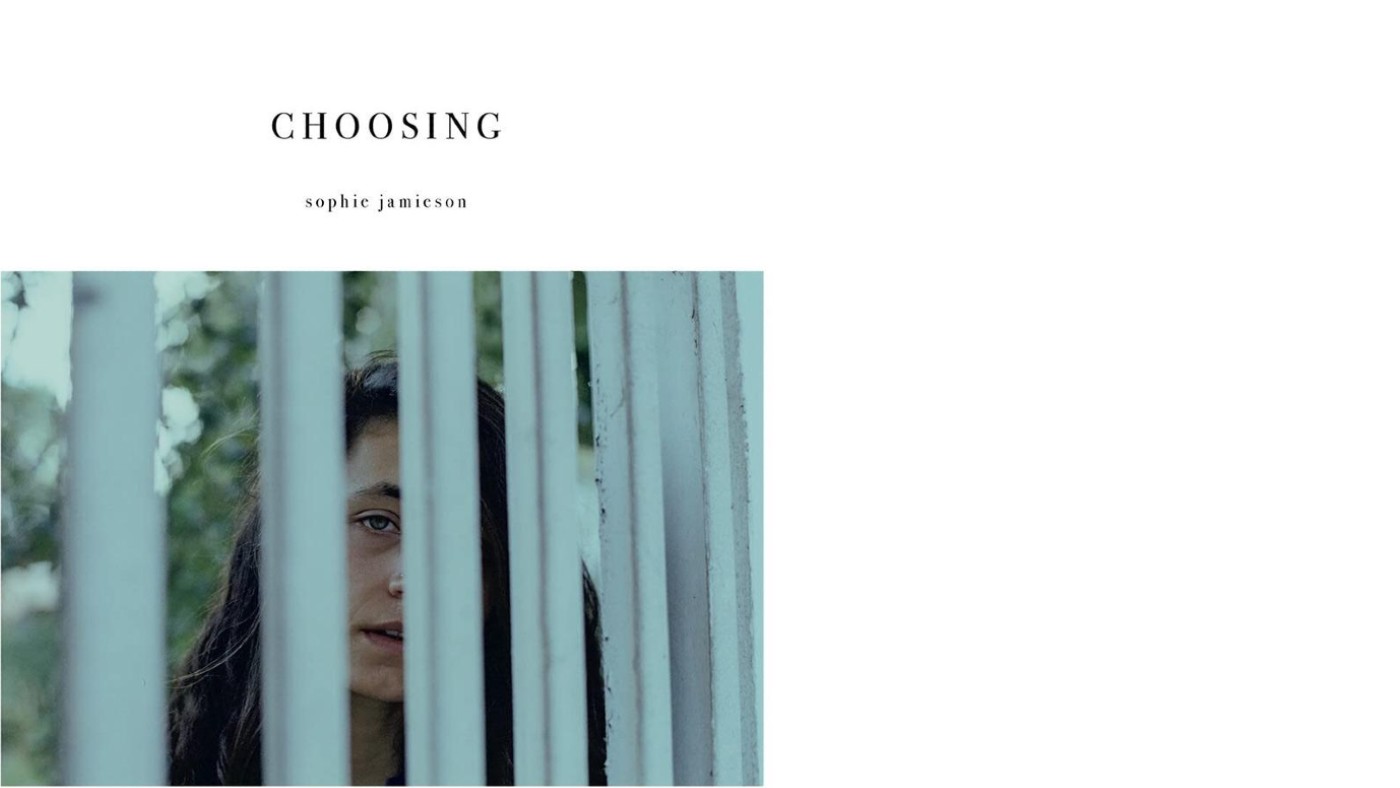
London-based singer-songwriter Sophie Jamieson released her first EP back in 2013, when she was in her early 20s; it was well received, but she then had a breakdown that contributed to her withdrawal from music. Now, the release of her debut album cements the impressive resumption of a “mislaid” career, said Ludovic Hunter-Tilney in the FT. The first song is Addition, which is just “a musical note, a C, from addiction”. She sings in a “deliberately thickened” voice; the arrangements give the songs a woozy and intense feel; and whisky crops up often in her lyrics. But the songs are cryptic; this is not “straightforward memoir”. Jamieson’s two comeback EPs in 2020 won deserved praise, said Dan Cairns in The Sunday Times. Now, she has fully turned the page on a period of unfulfilled promise with this “stunning” collection, in which “the EPs’ parched and glacial electronica gives way to an equally stark yet enveloping soundscape of guitar and piano”. The subject matter is heavy, but the record’s lasting impression is “one of beauty, warmth and redemption”. Bella Union; £9.99
Rebecca Saunders: Skin; Void; Unbreathed

The British composer Rebecca Saunders is a leading figure in European music, said Andrew Clements in The Guardian. But perhaps because she mainly lives and works in Germany, she gets relatively little attention in the UK. This “superb disc ought to gain Saunders many more admirers, for it includes one of her finest achievements: Skin for soprano and ensemble, which was composed in 2016 for Juliet Fraser, who is the outstanding singer here with Klangforum Wien”. This is “important music, superbly delivered”. Saunders is a “wizard” at “conjuring amazing sounds from any instrument or vocal force”, said Geoff Brown in The Times. She has an unconventional approach to structure and melody, but “once your head’s in the right zone, it’s hard not to be transfixed by the buzzing, colliding, exploding, swooping, whispered, squashed and liberated sounds”. The works on this excellent album are vividly performed, with all those involved clearly “fully alert to the excitement, strength and beauty” of this bold, adventurous music. NMC Recordings; £12.99
Little Simz: No Thank You

The 28-year-old Londoner Simbiatu Ajikawo (Little Simz) is an “imperious talent with nimble rhythmic flow and a dazzling vocabulary”, said Neil McCormick in The Daily Telegraph. Her previous album, 2021’s Sometimes I Might Be Introvert, won her the Mercury Prize and a (belated) Brit Award for best new artist. Then in December – a month that is normally a “dead zone” for new releases – she quietly dropped this sensational follow-up. The “best UK rap album of the year”, No Thank You is a fierce attack on “corrupt music industry practice” and institutional racism – and links them to contemporary mental health crises. “Right now, she may be the best in the business, but as for the nature of that business, the album title tells you exactly what she feels.” Simz’s “secret weapon” is emotion, said Will Dukes in Rolling Stone. She’s a great technical rapper, but also boasts a “natural ability to craft poignant songs that make you laugh, cry and silently rage”. The ten “choice cuts” on this collection showcase her “brilliance and breadth”, with humour, charisma, and “bold originality”. Forever Living Originals/AWAL